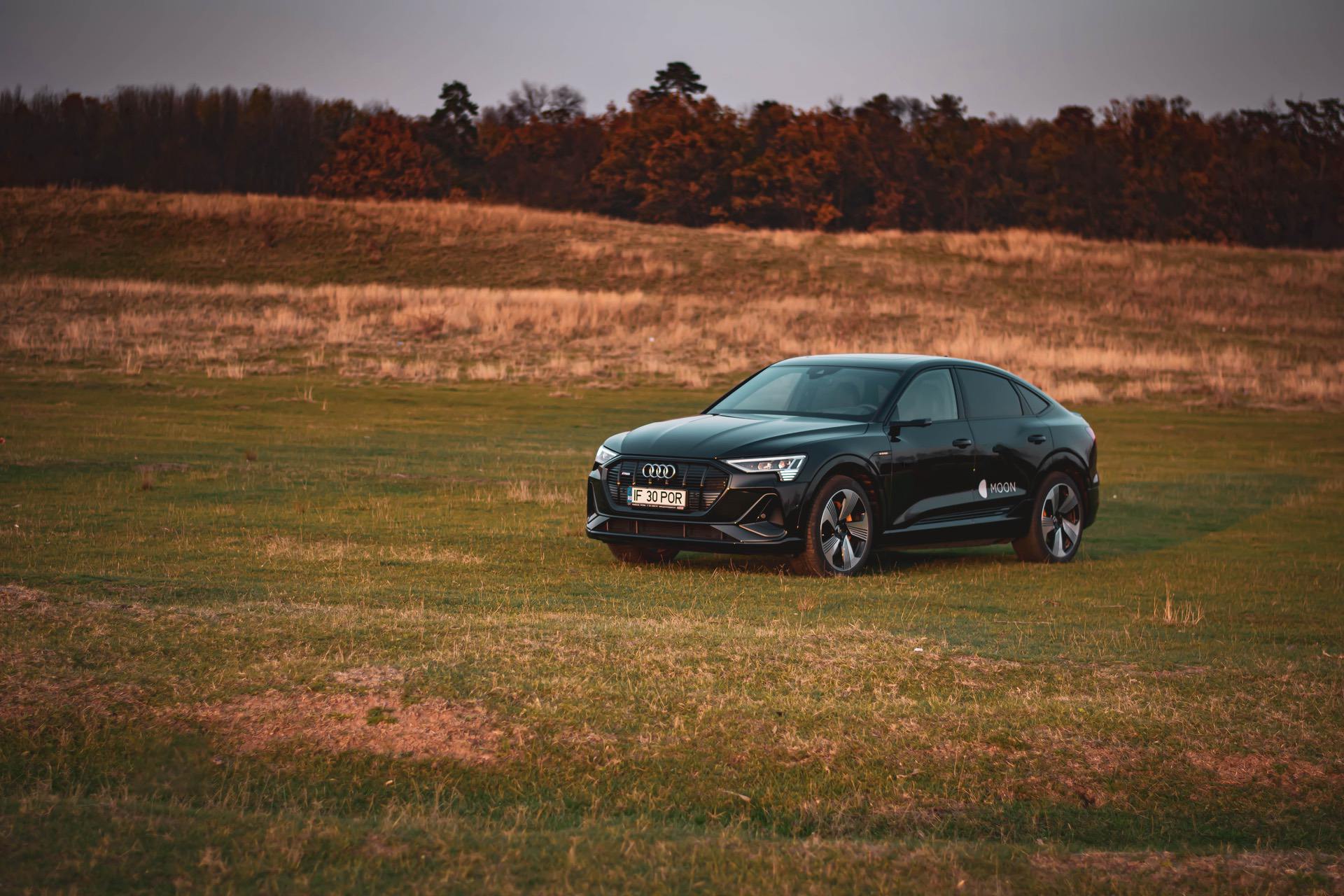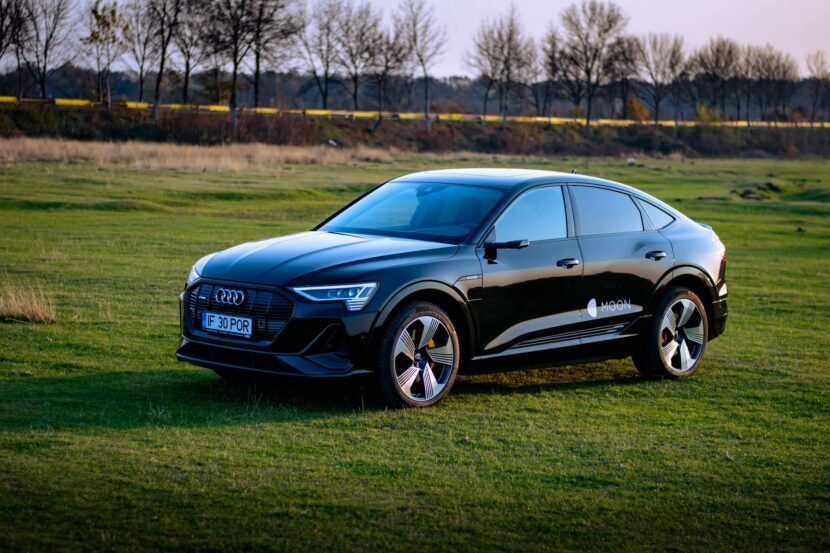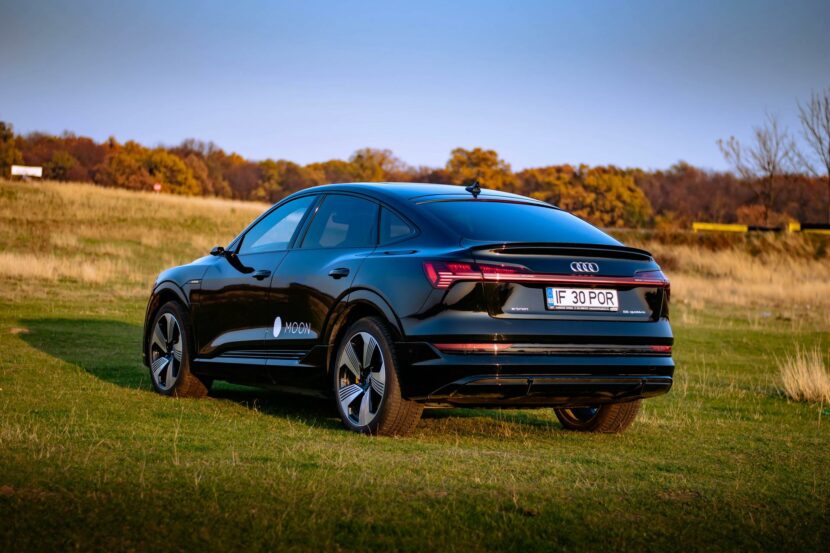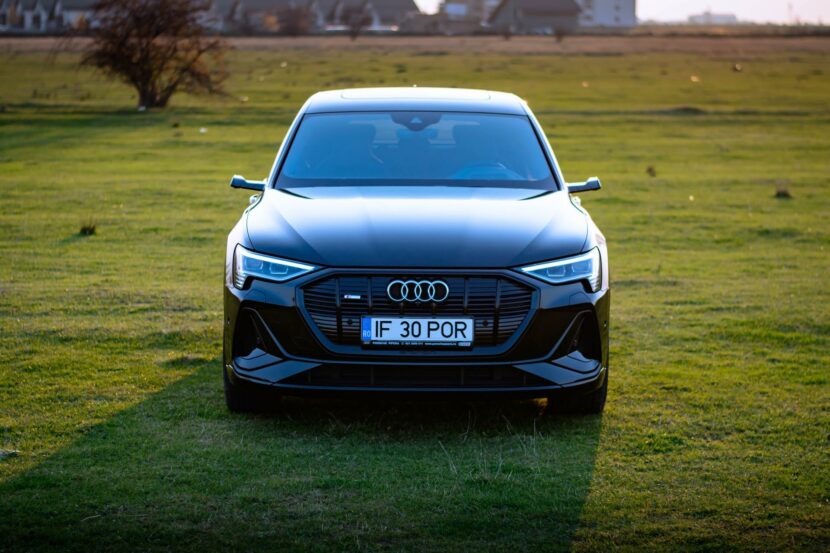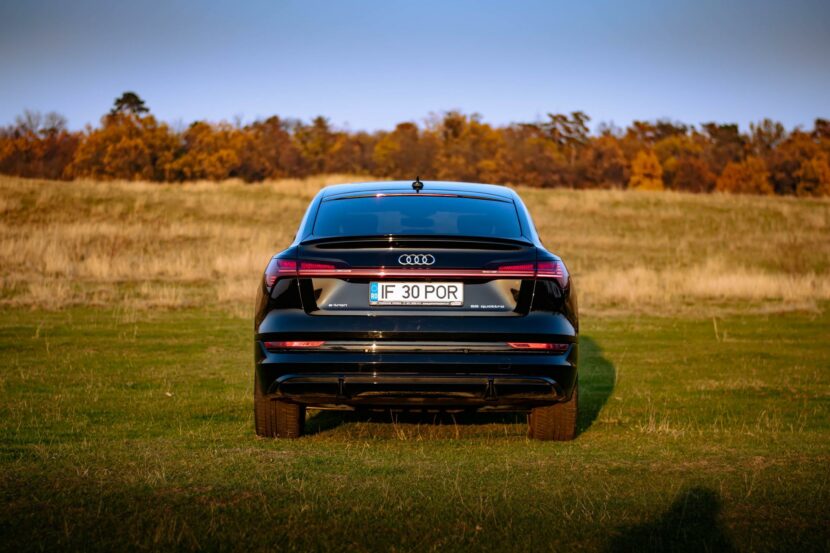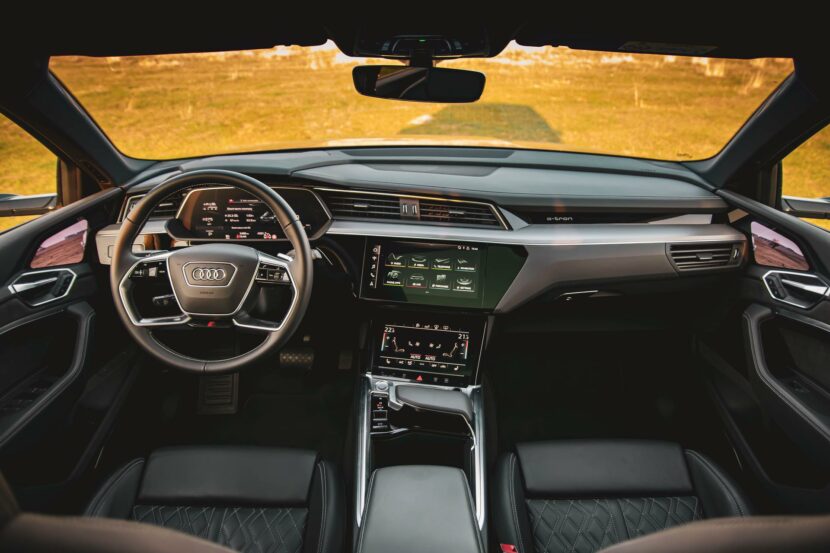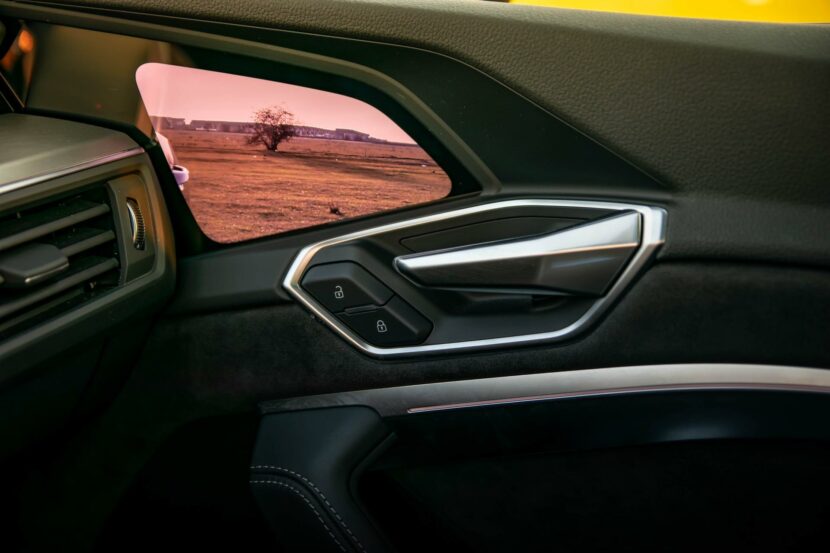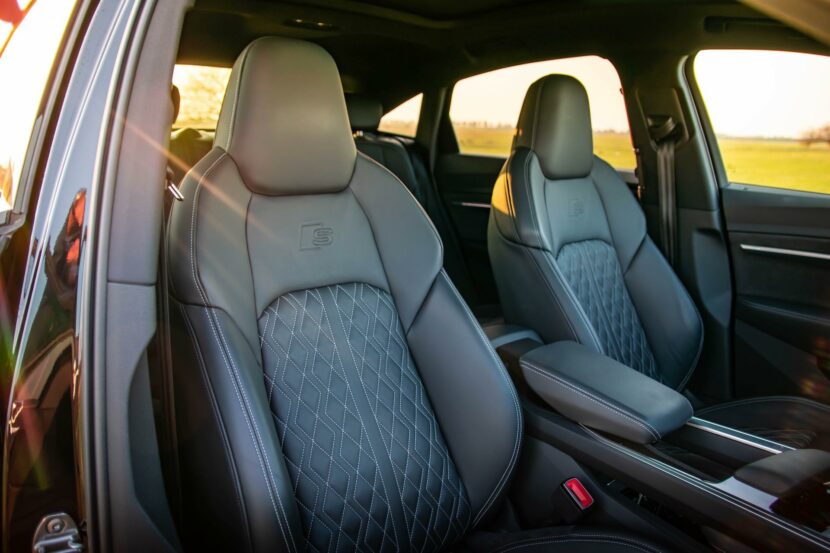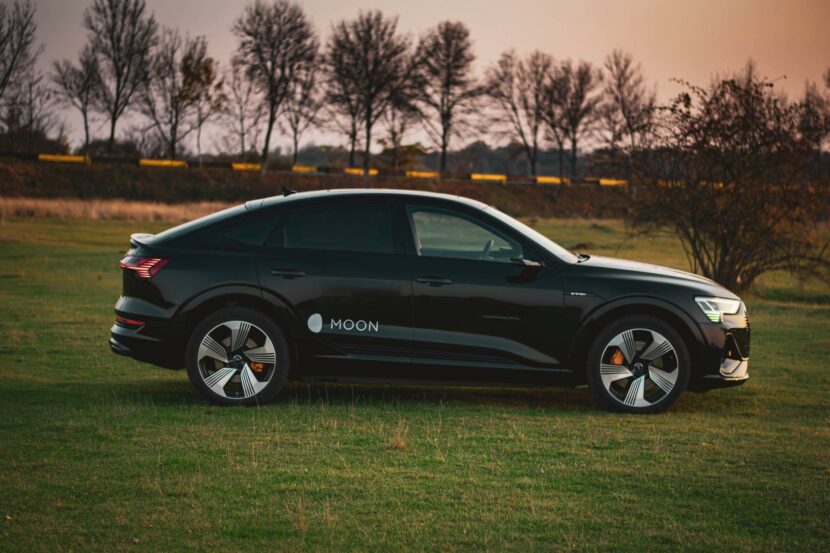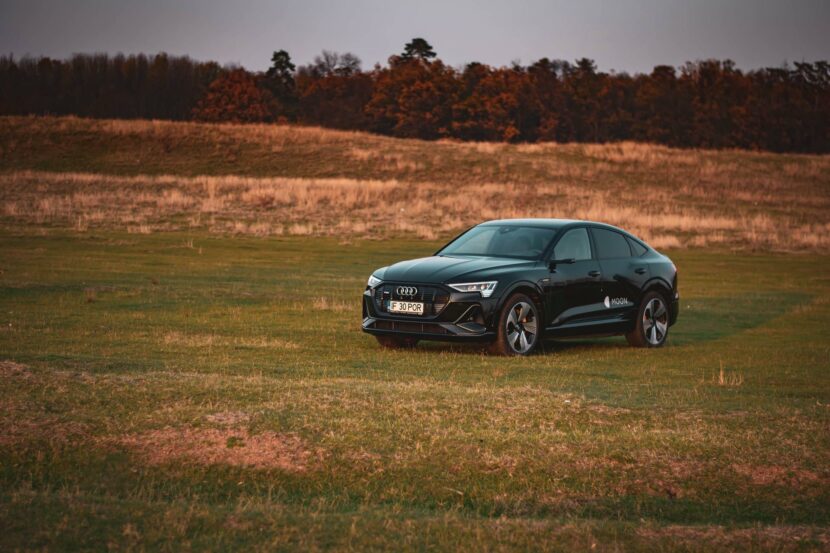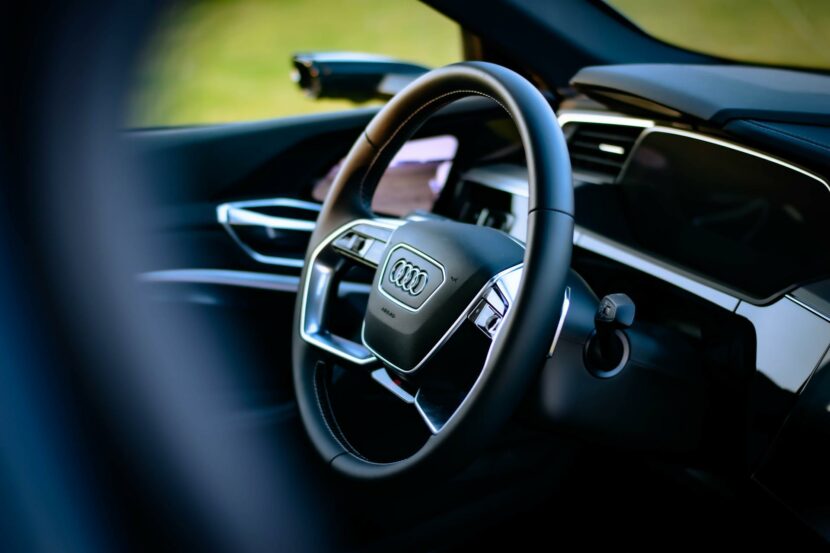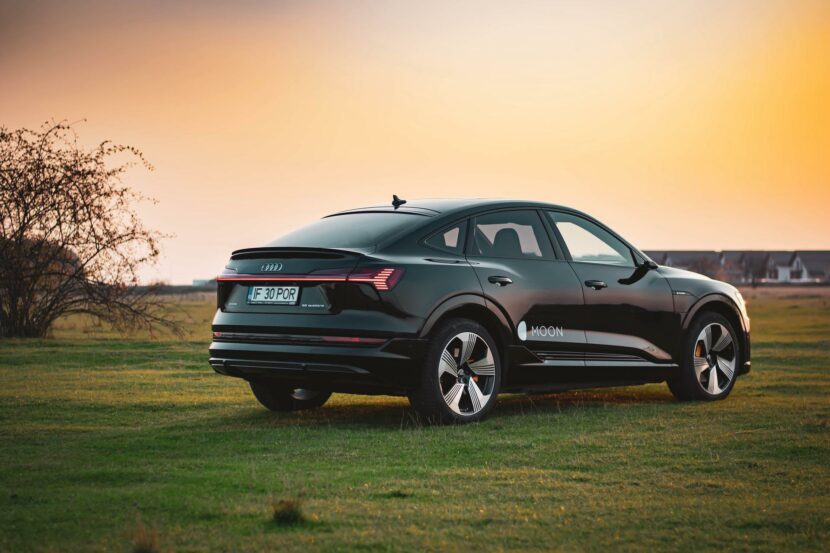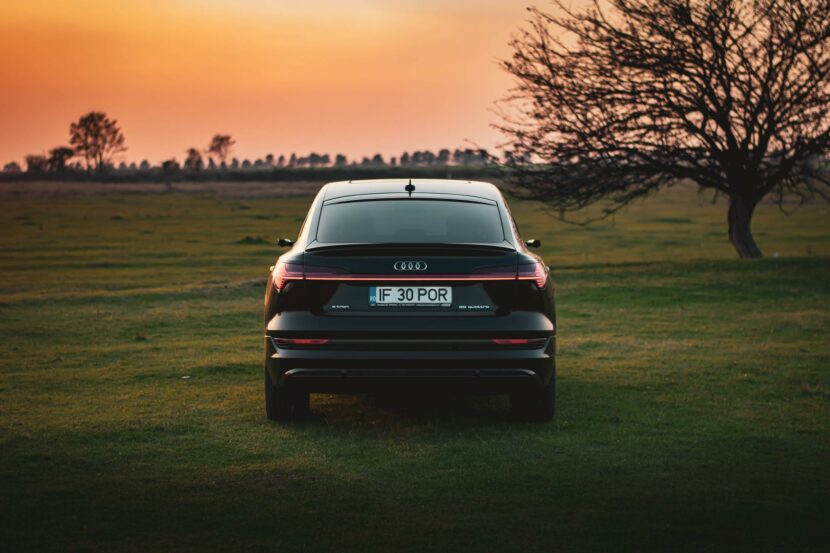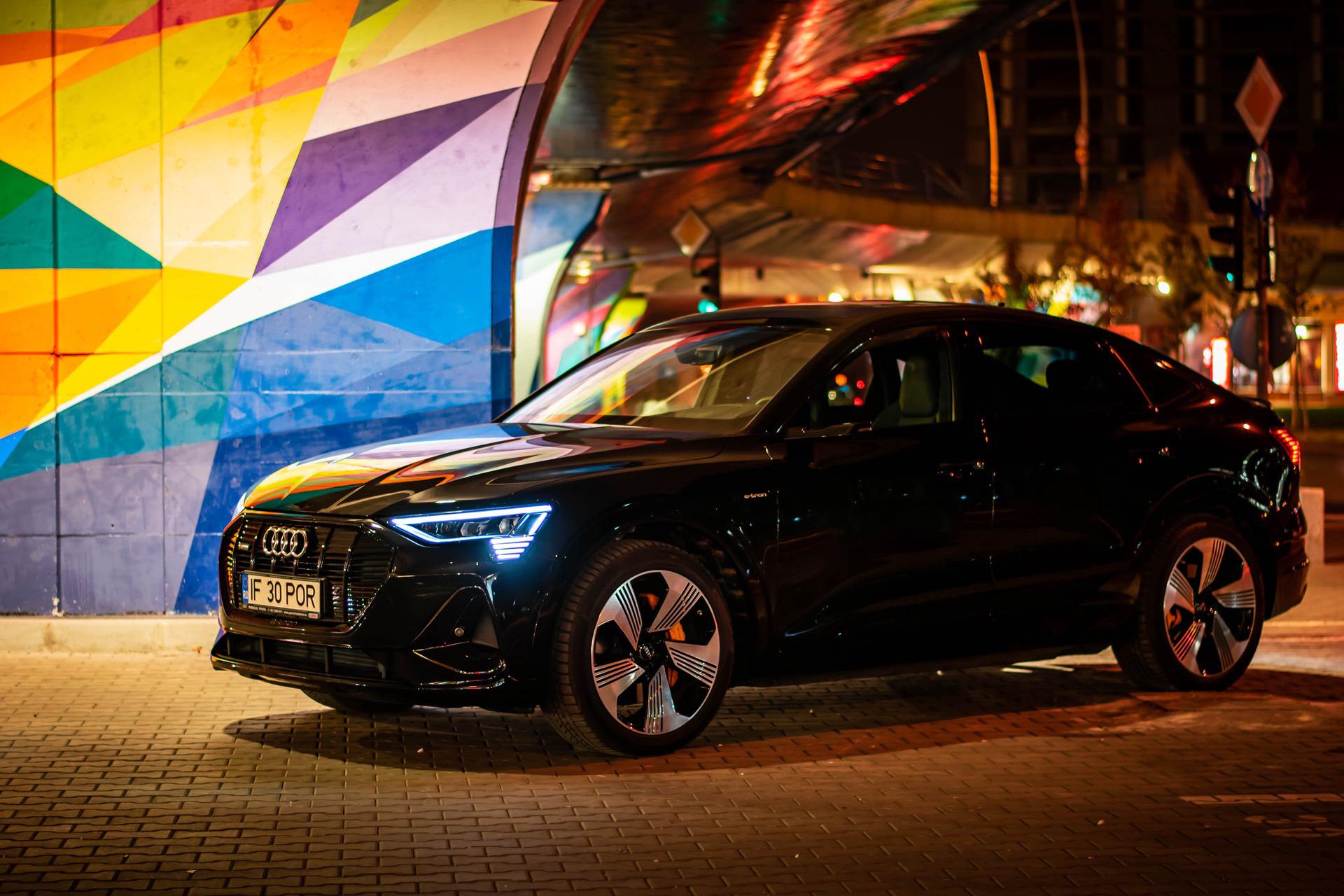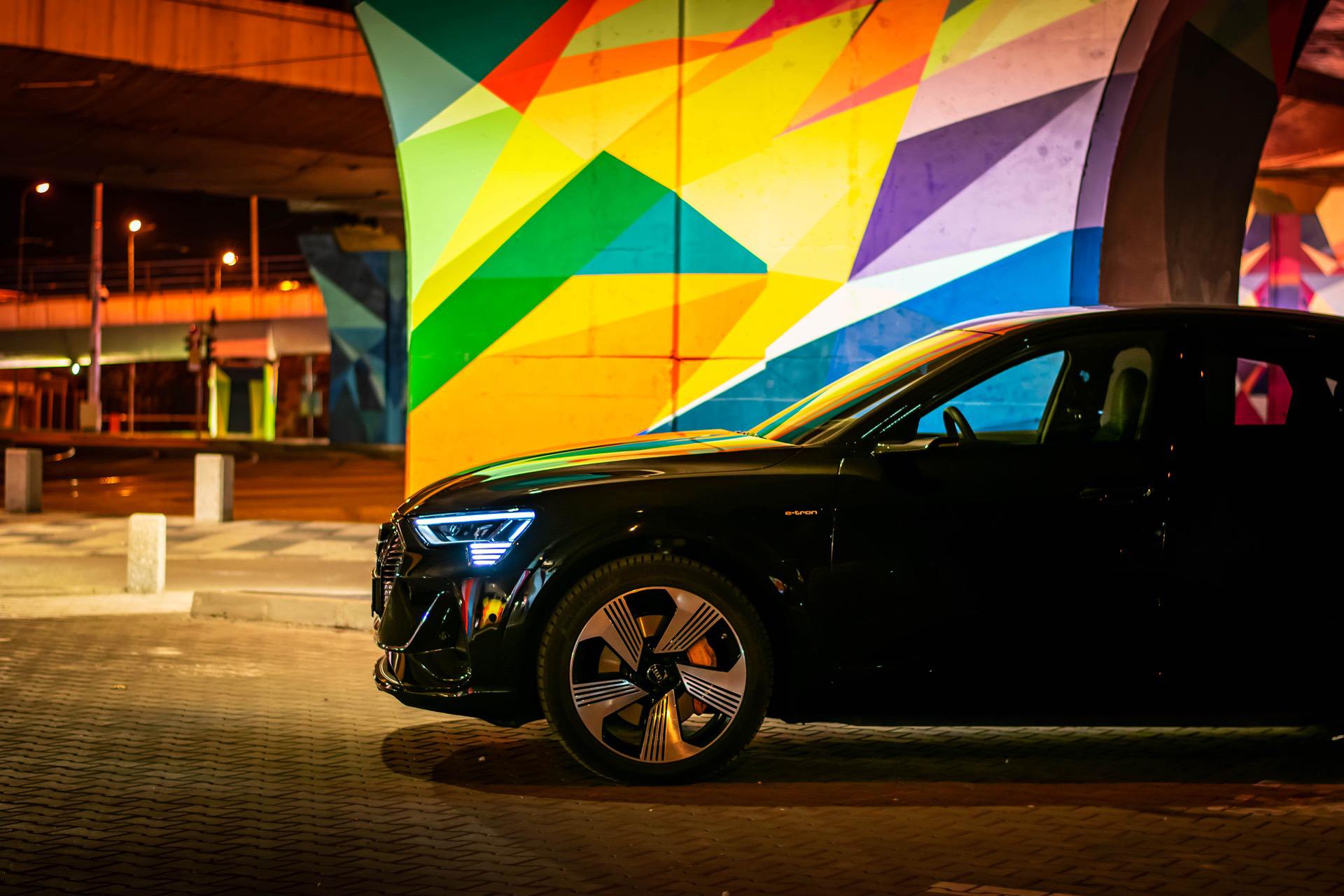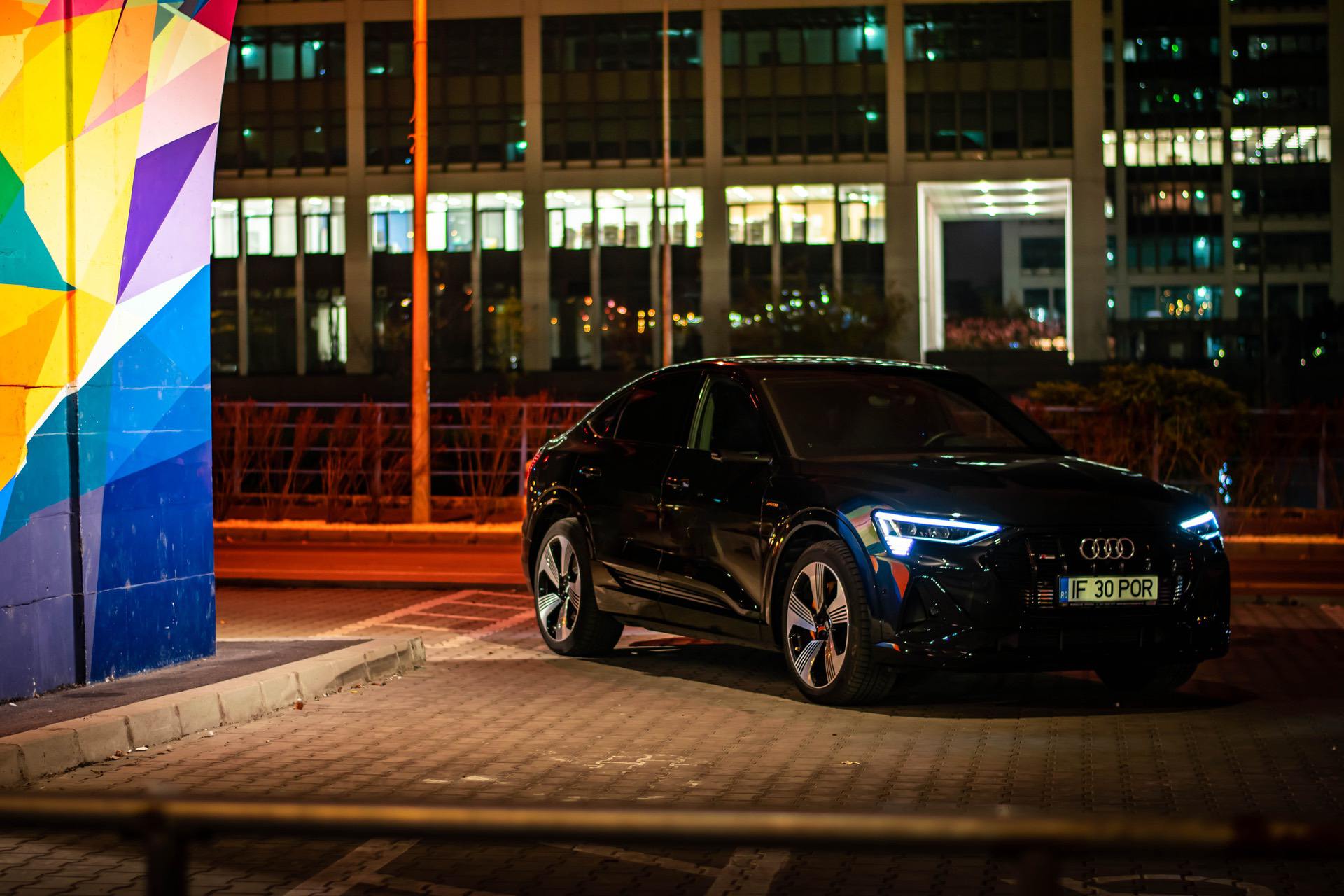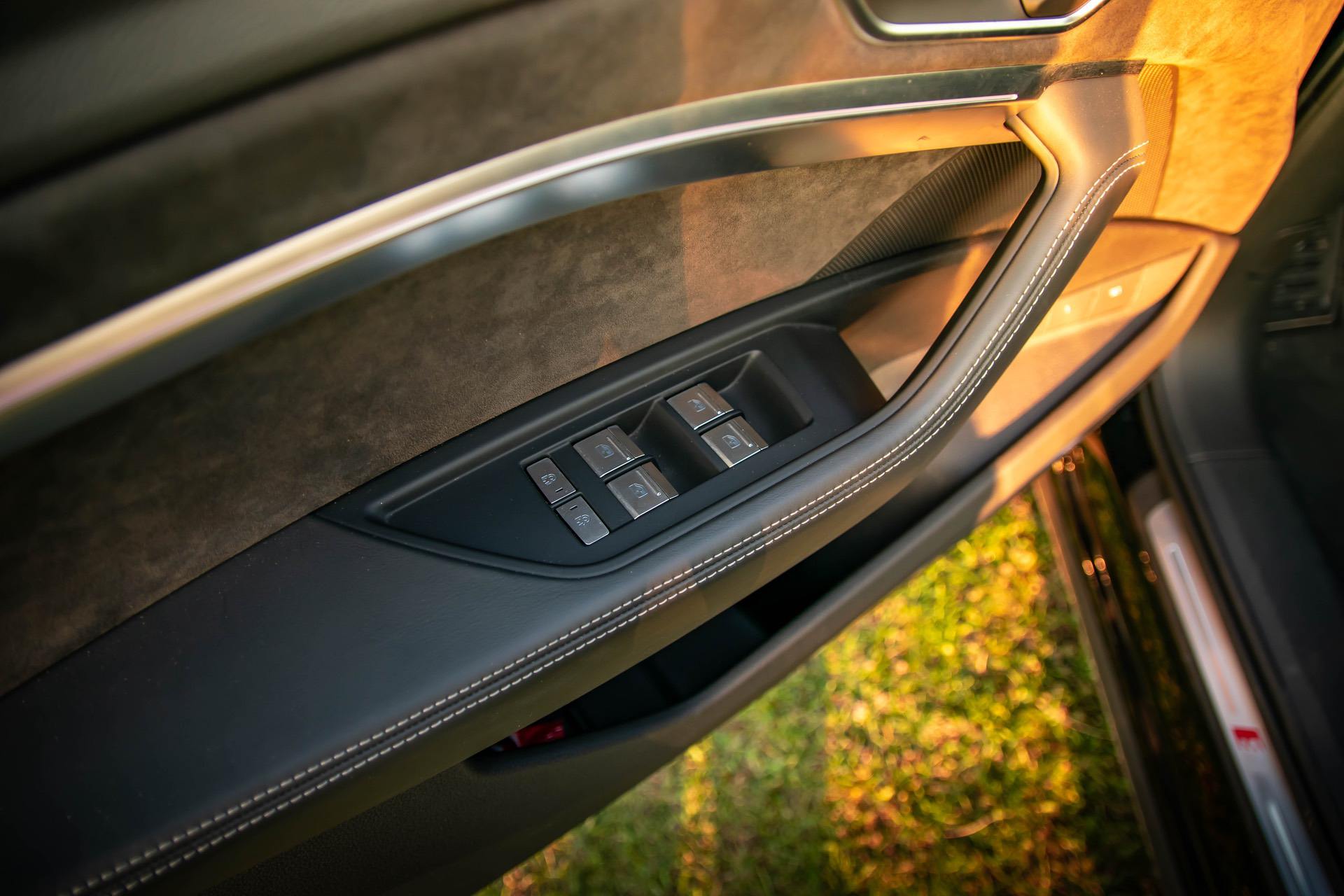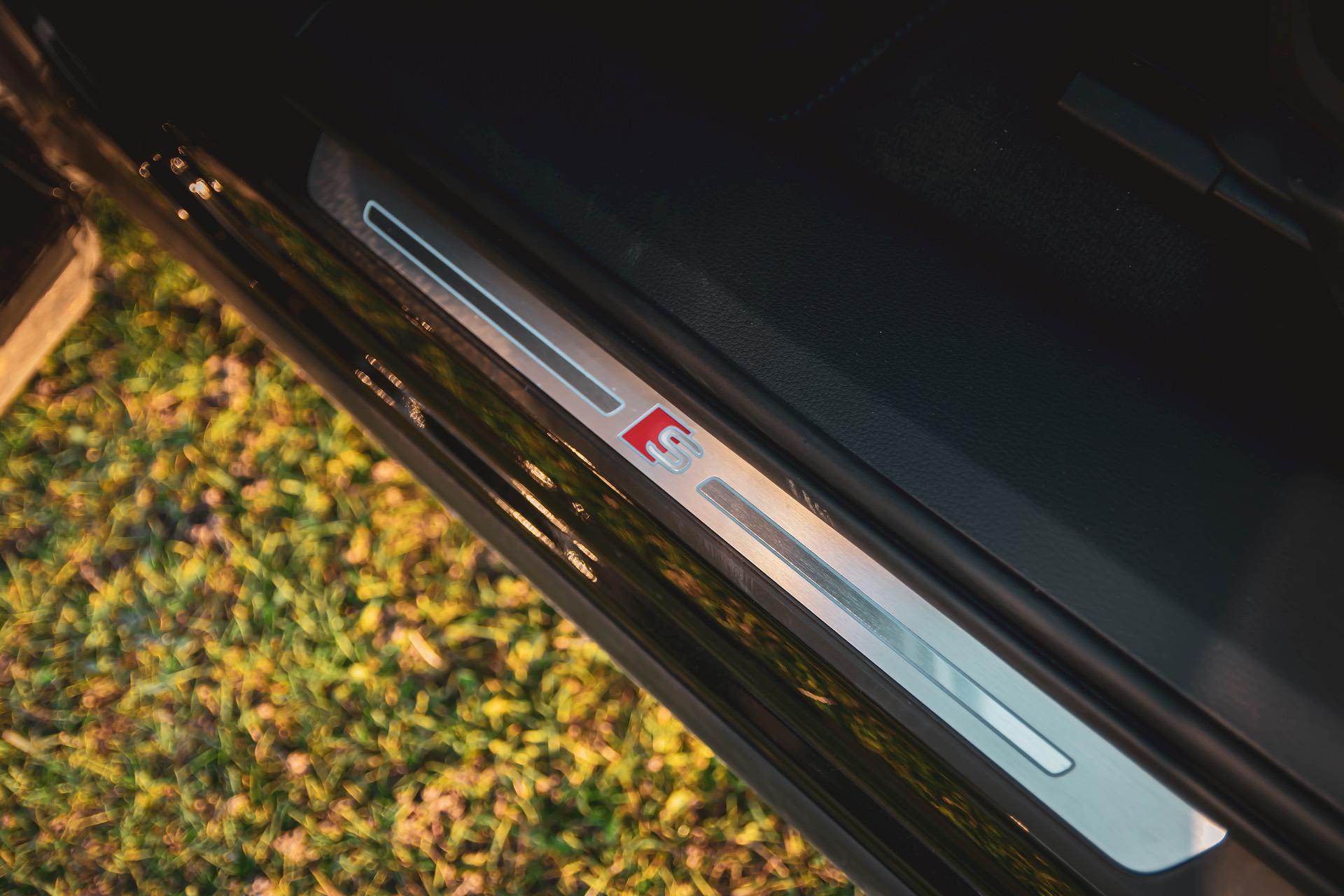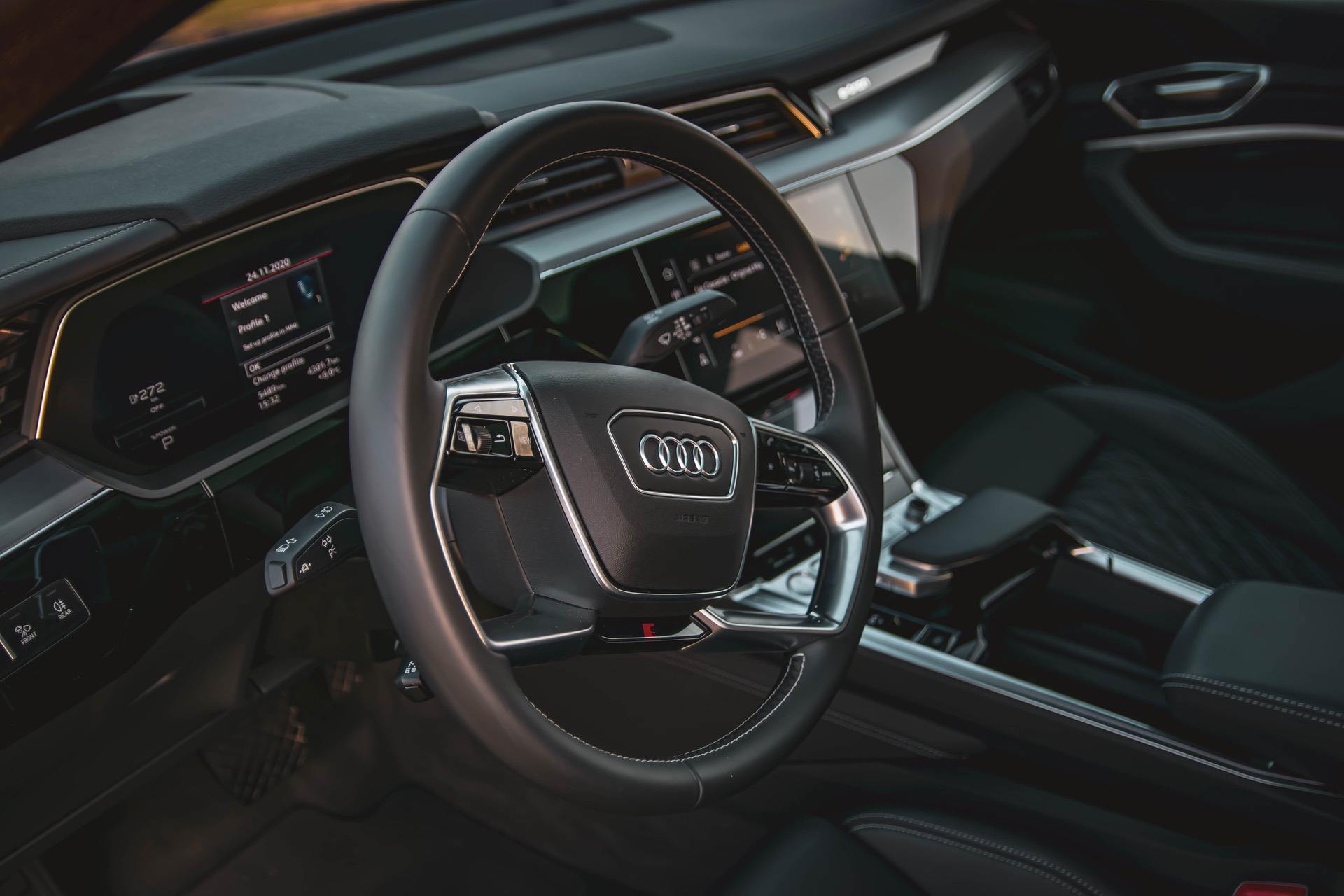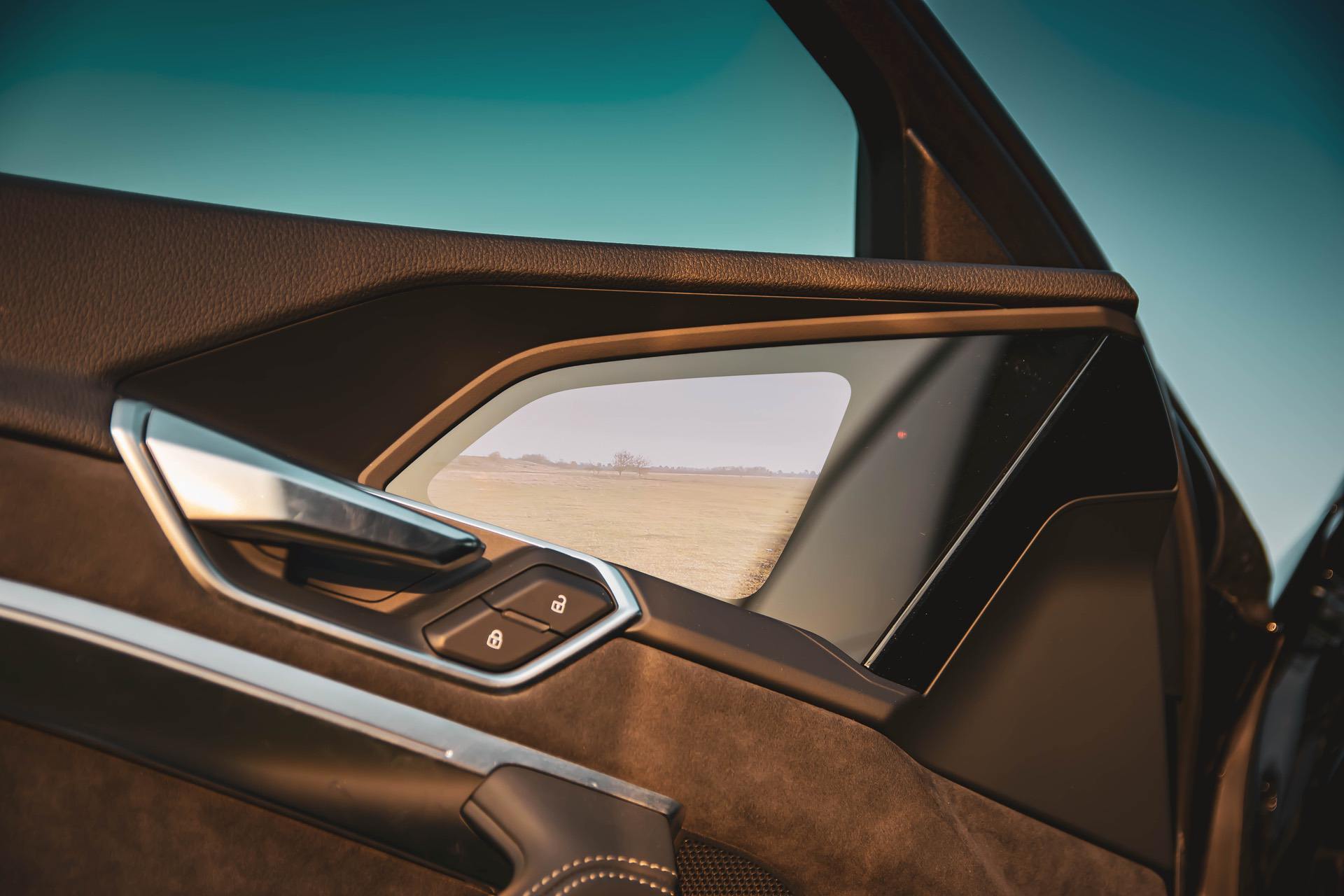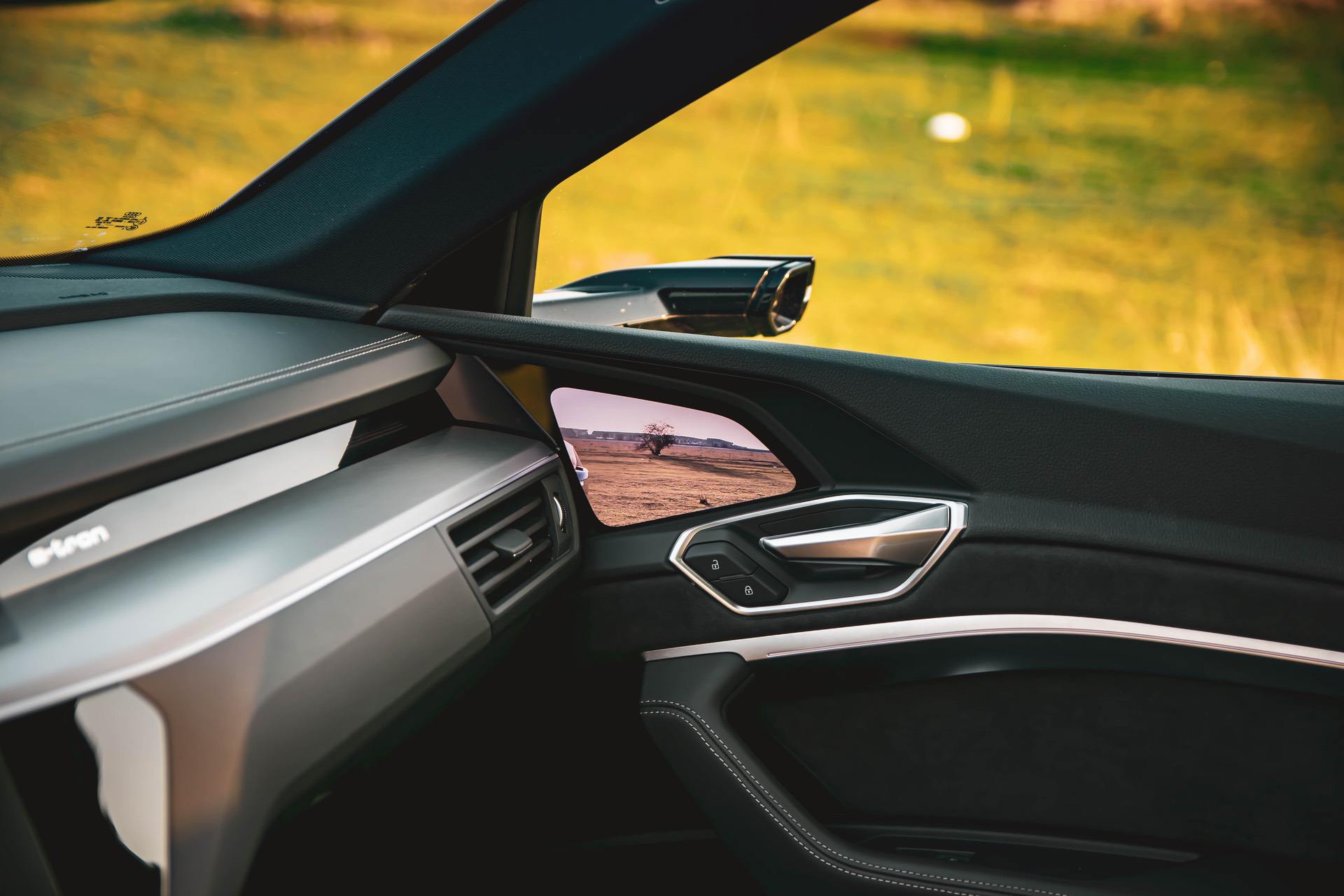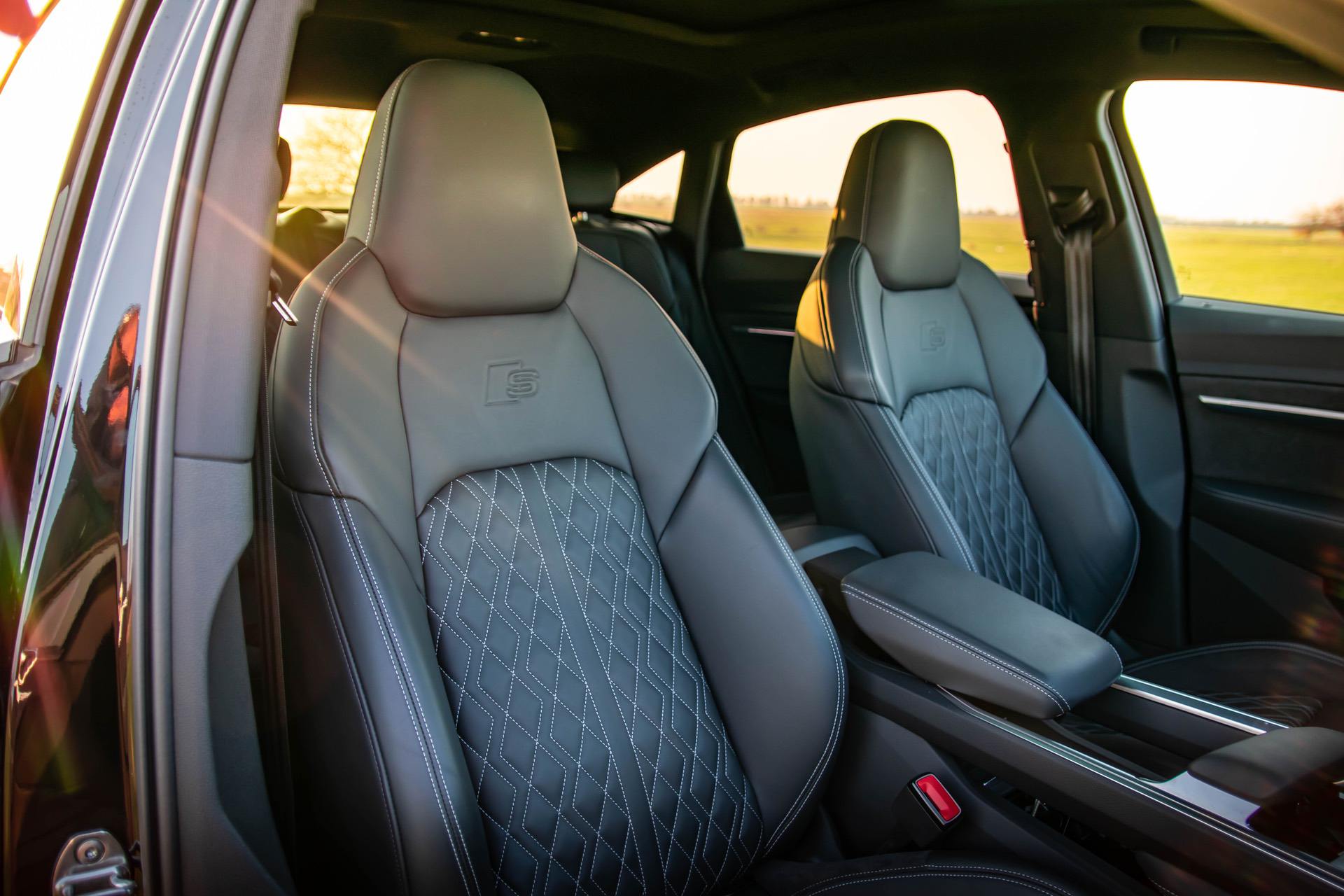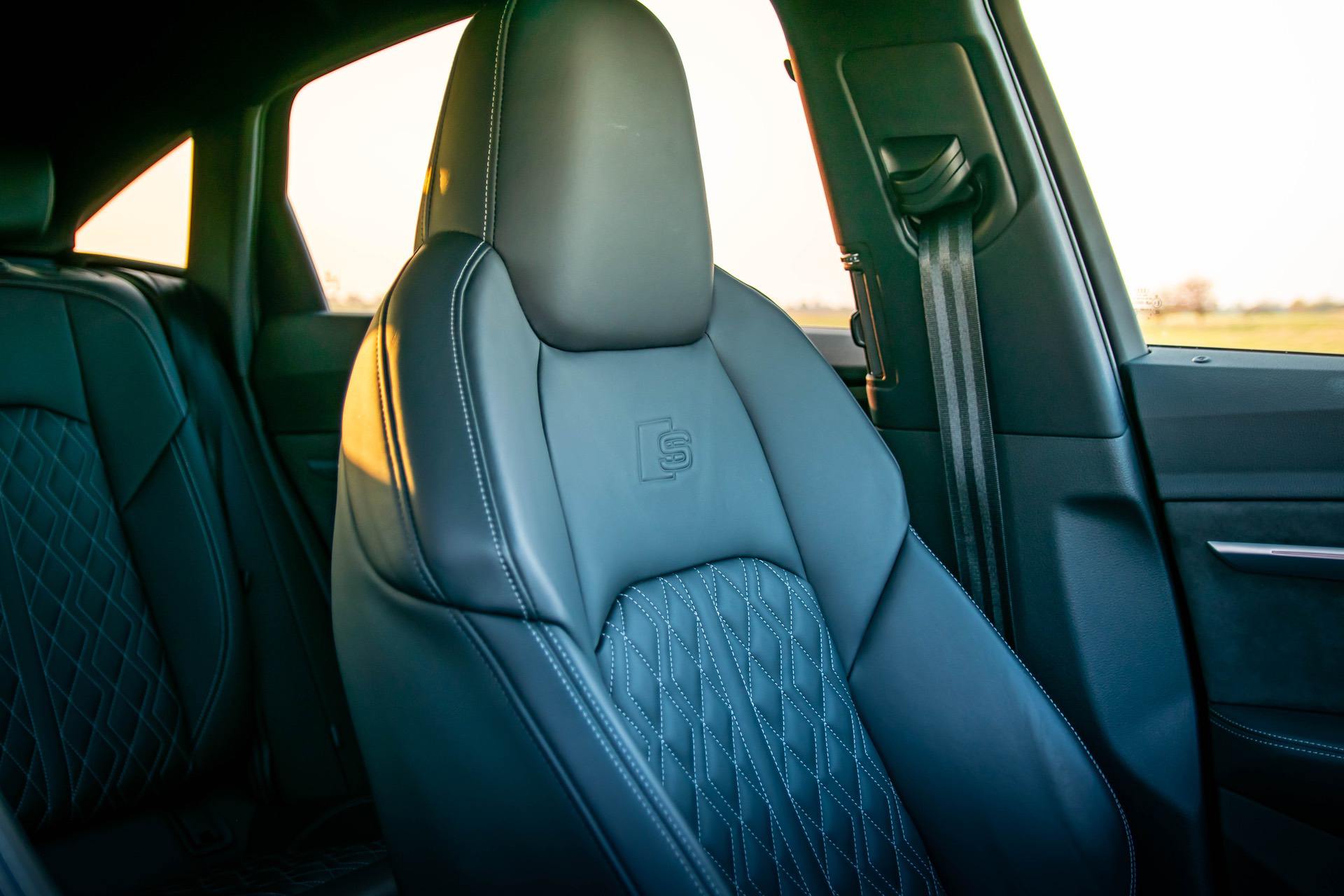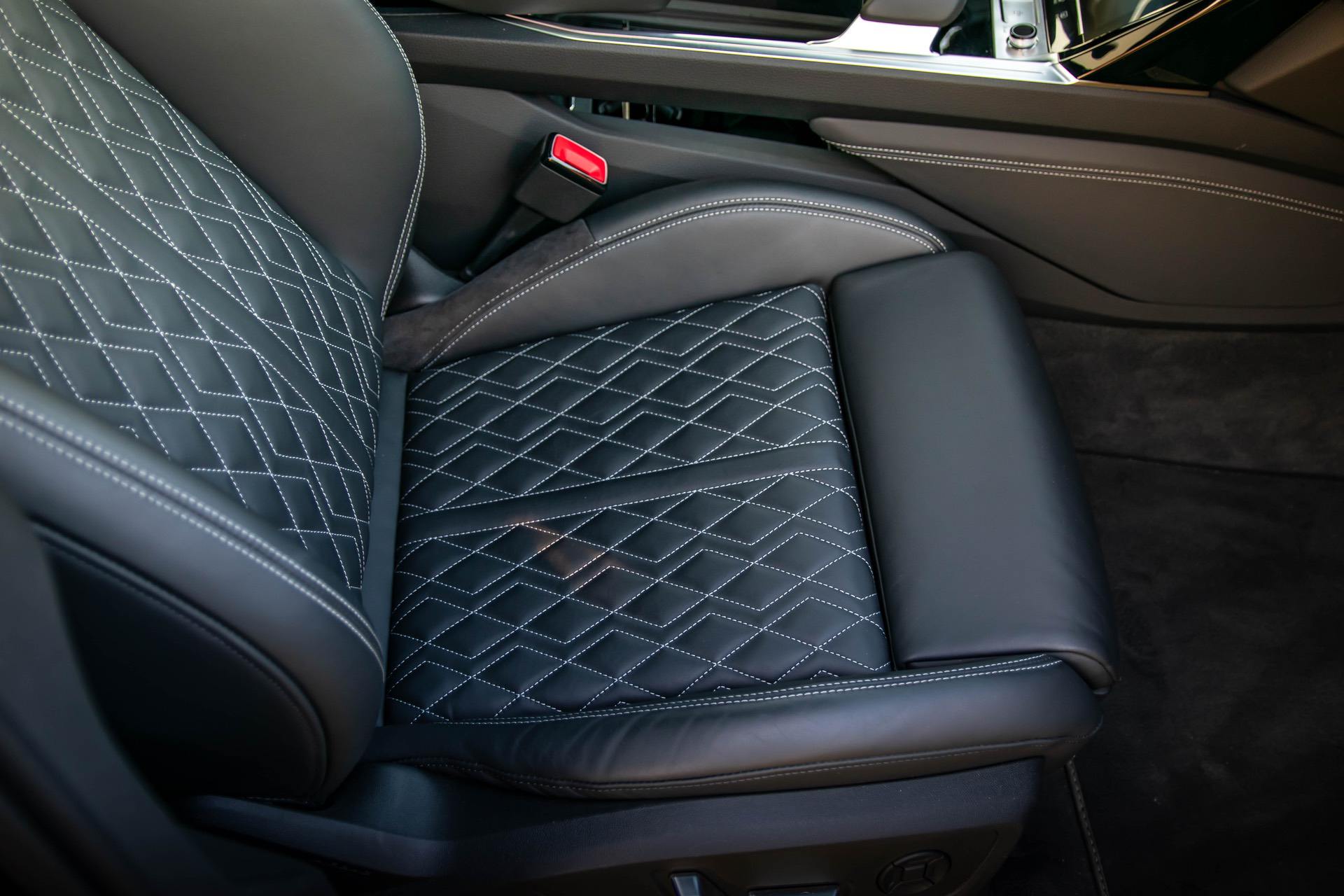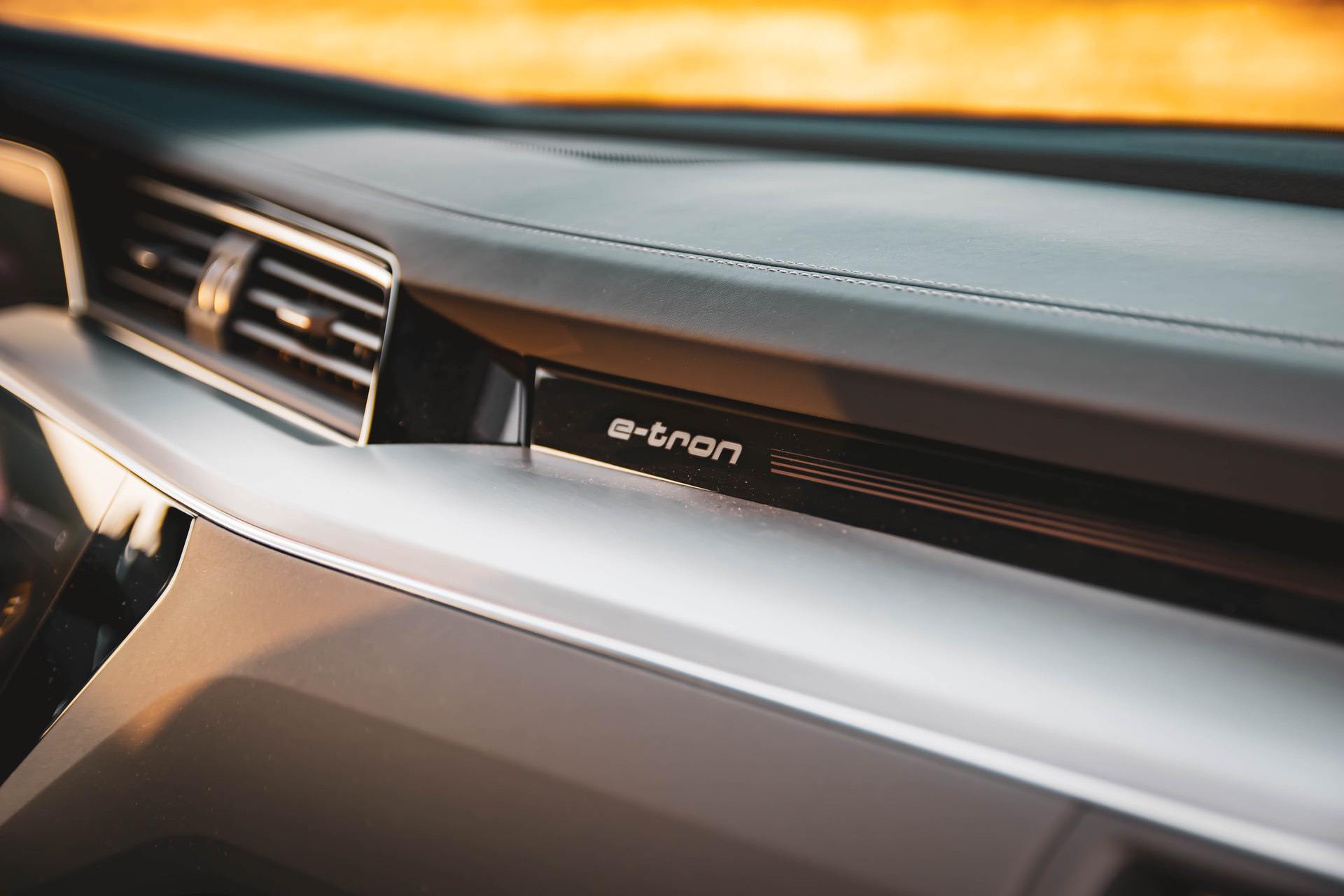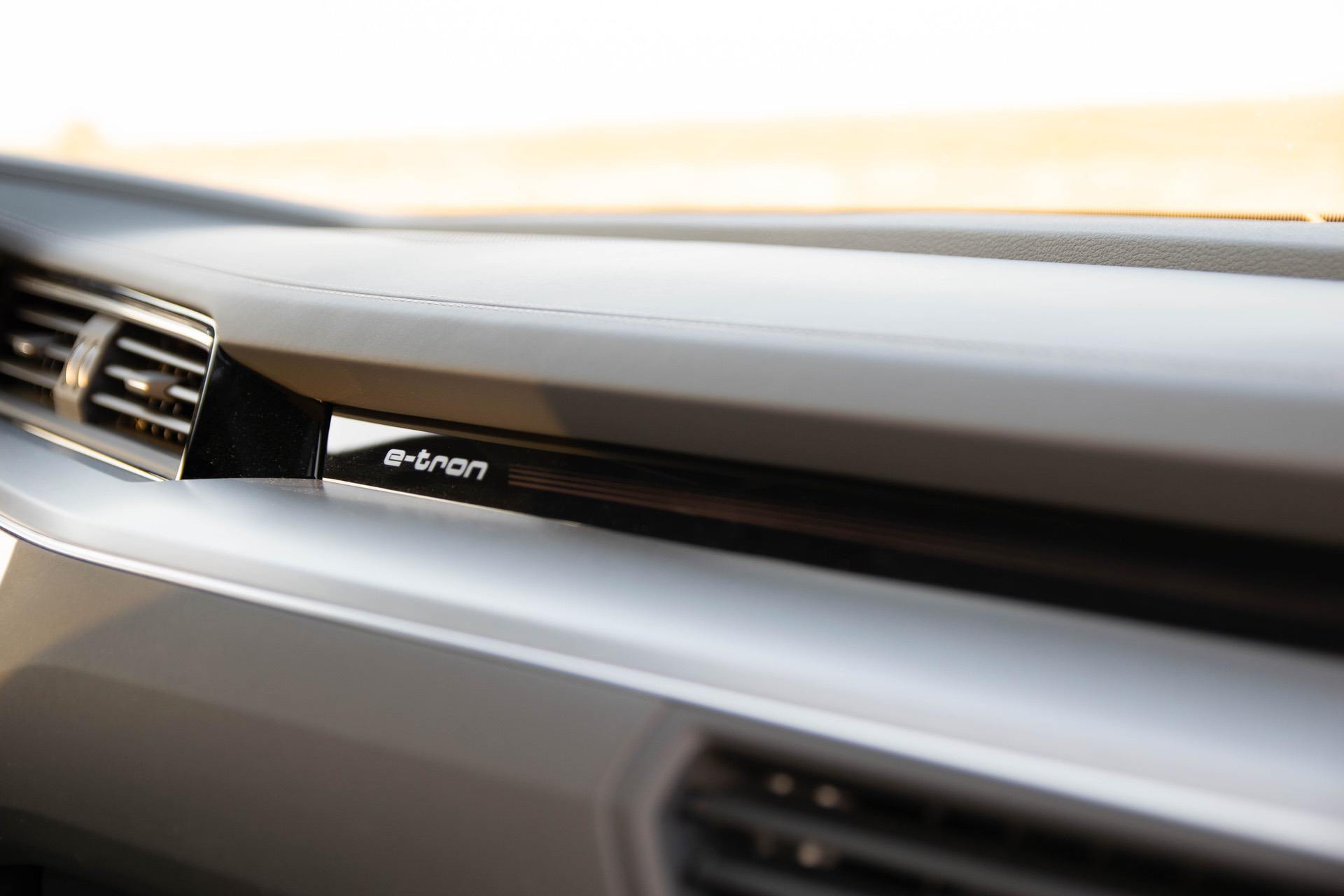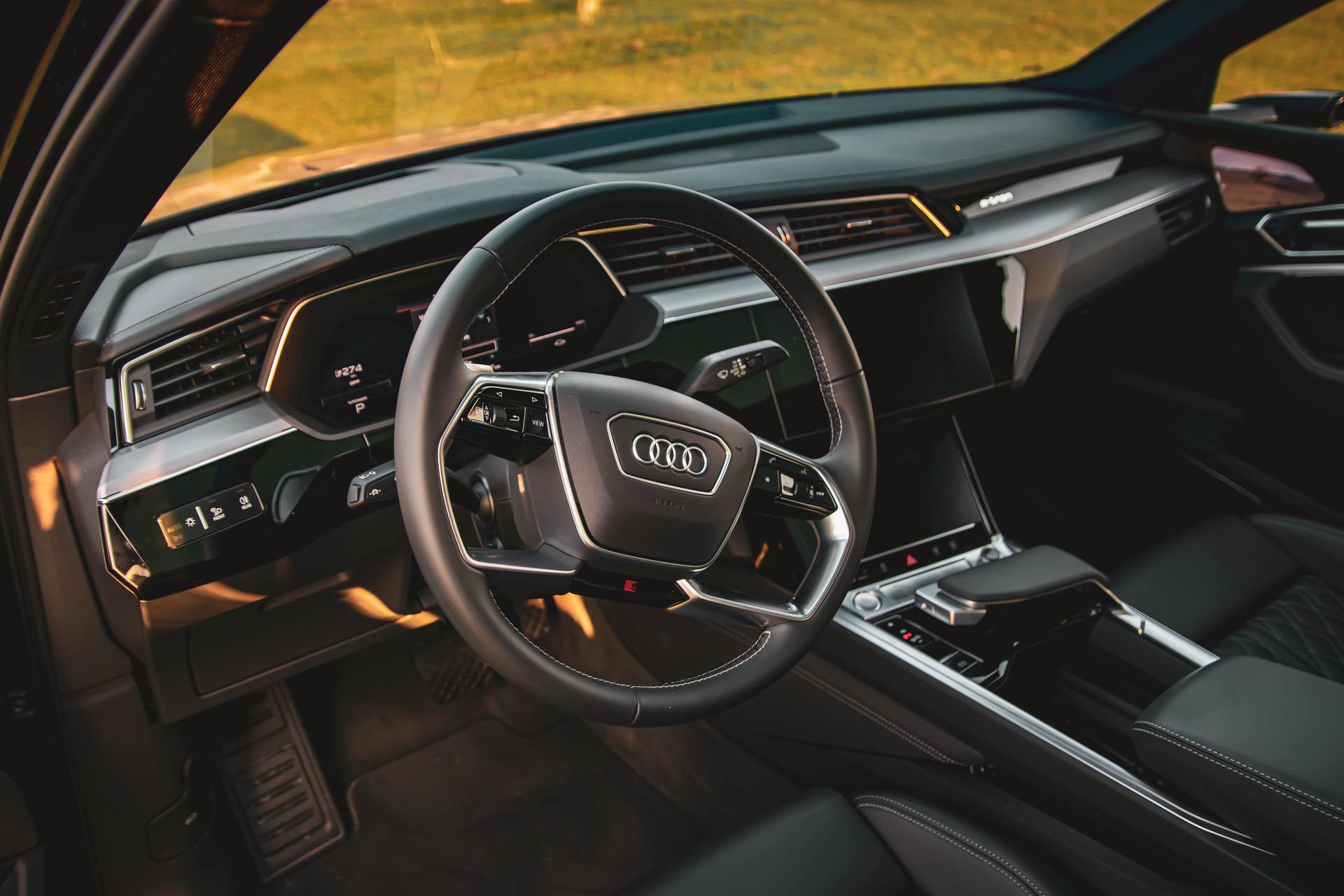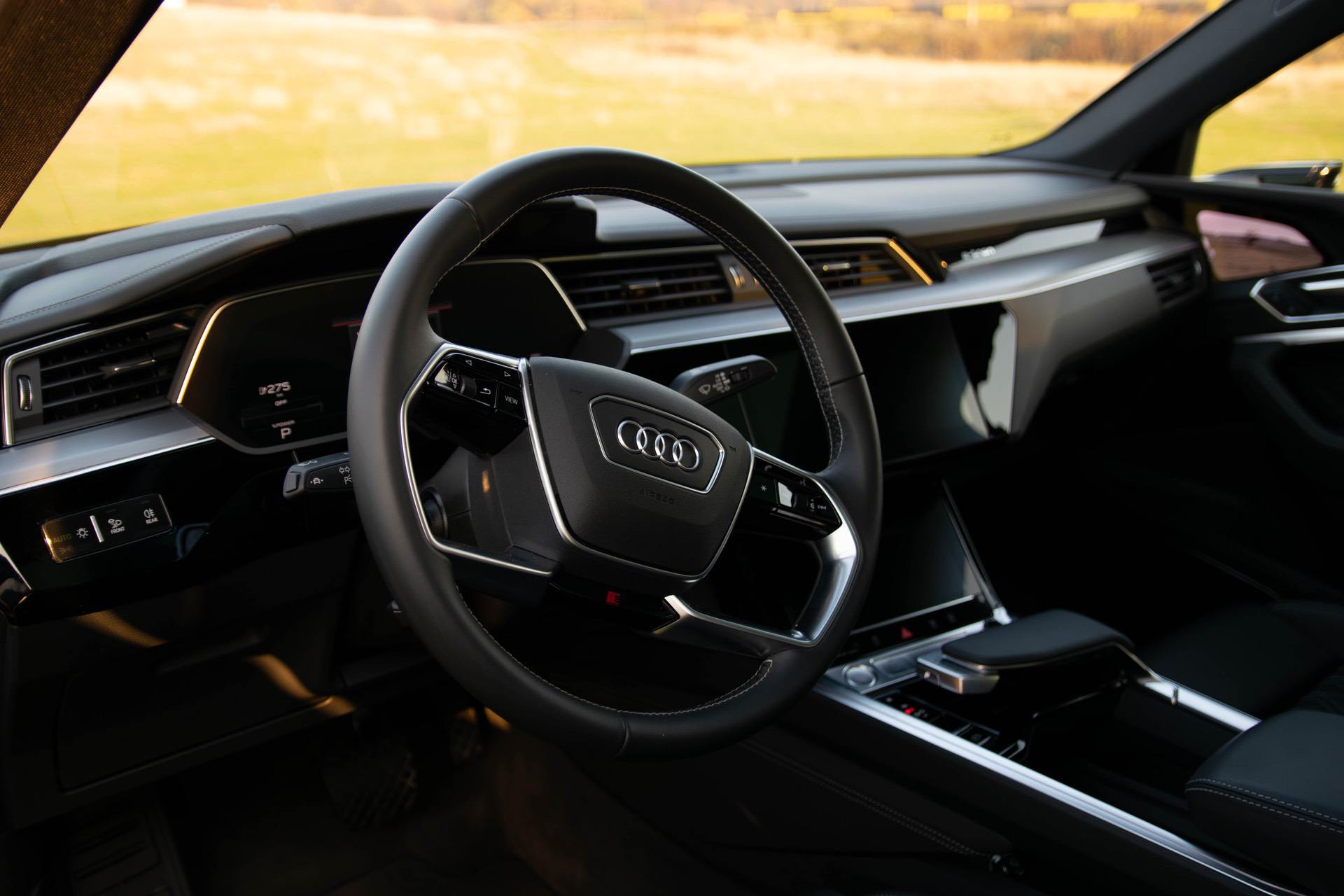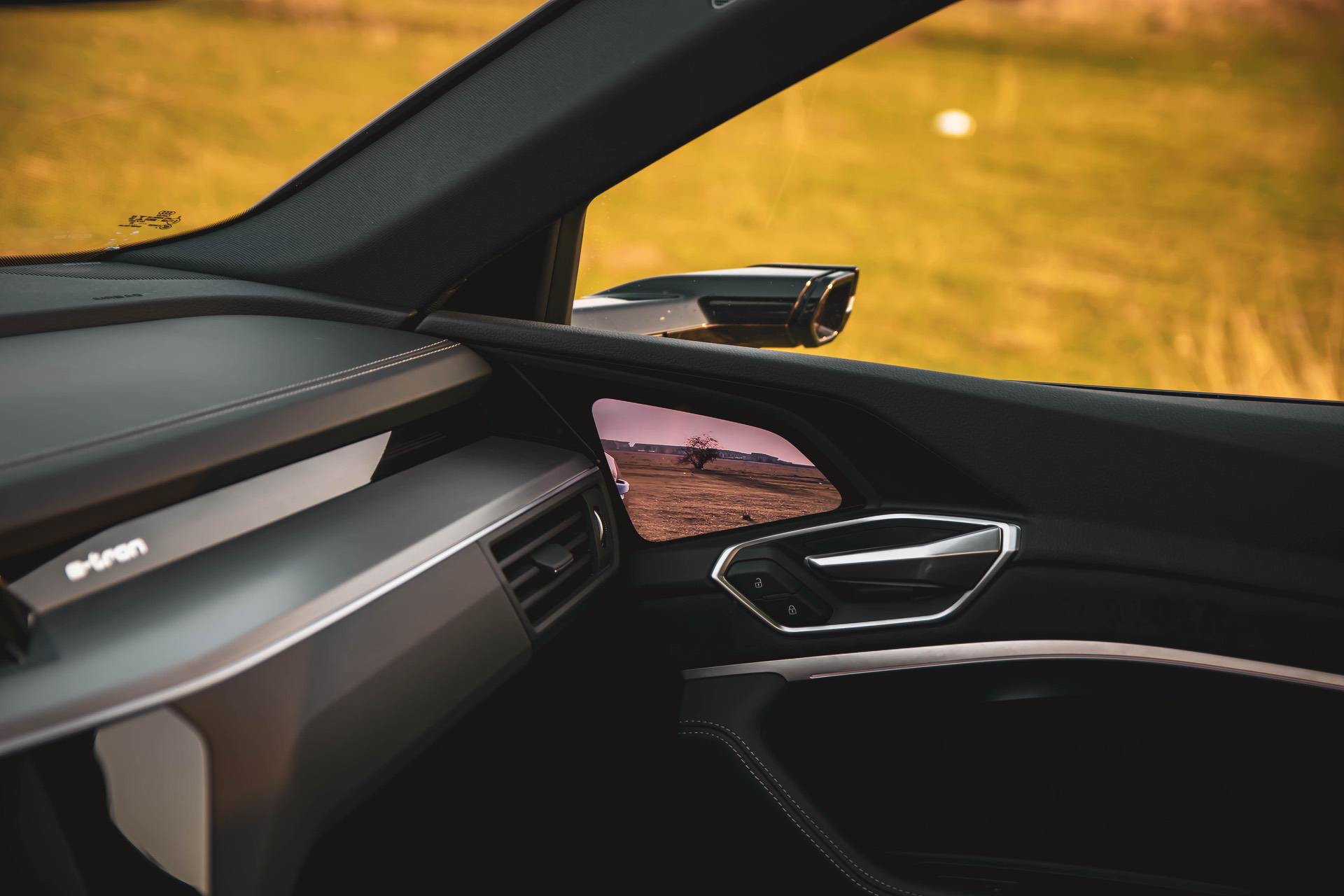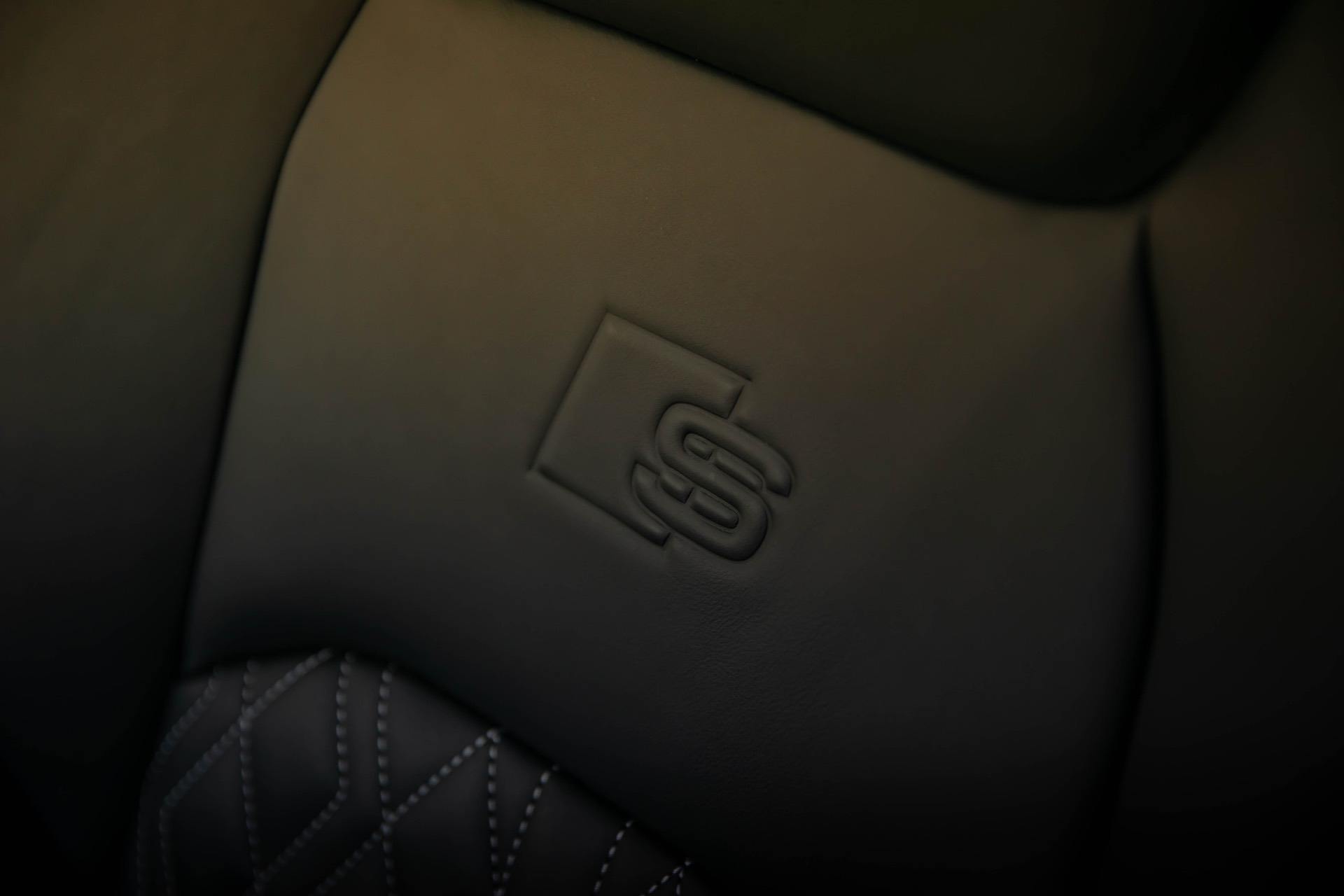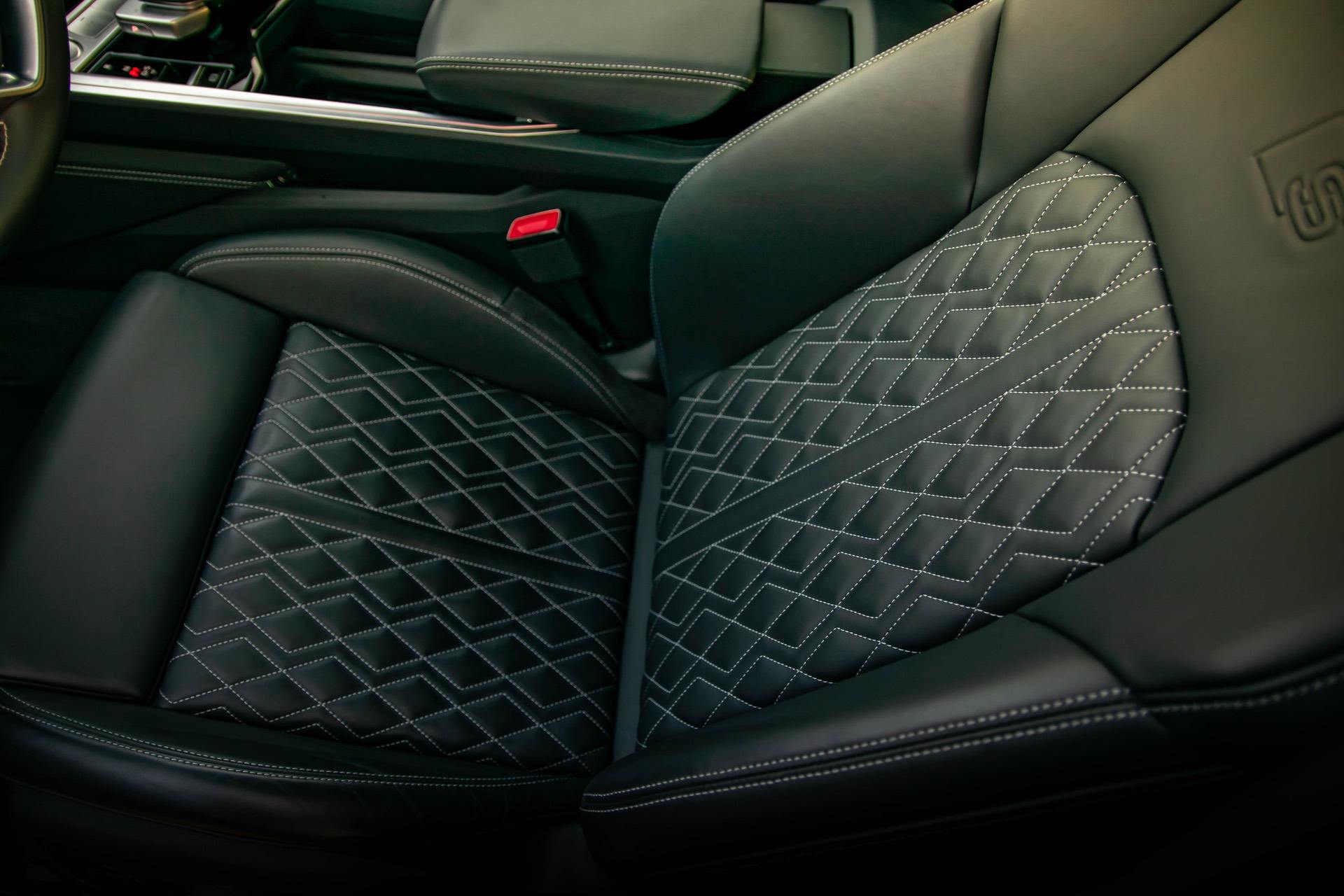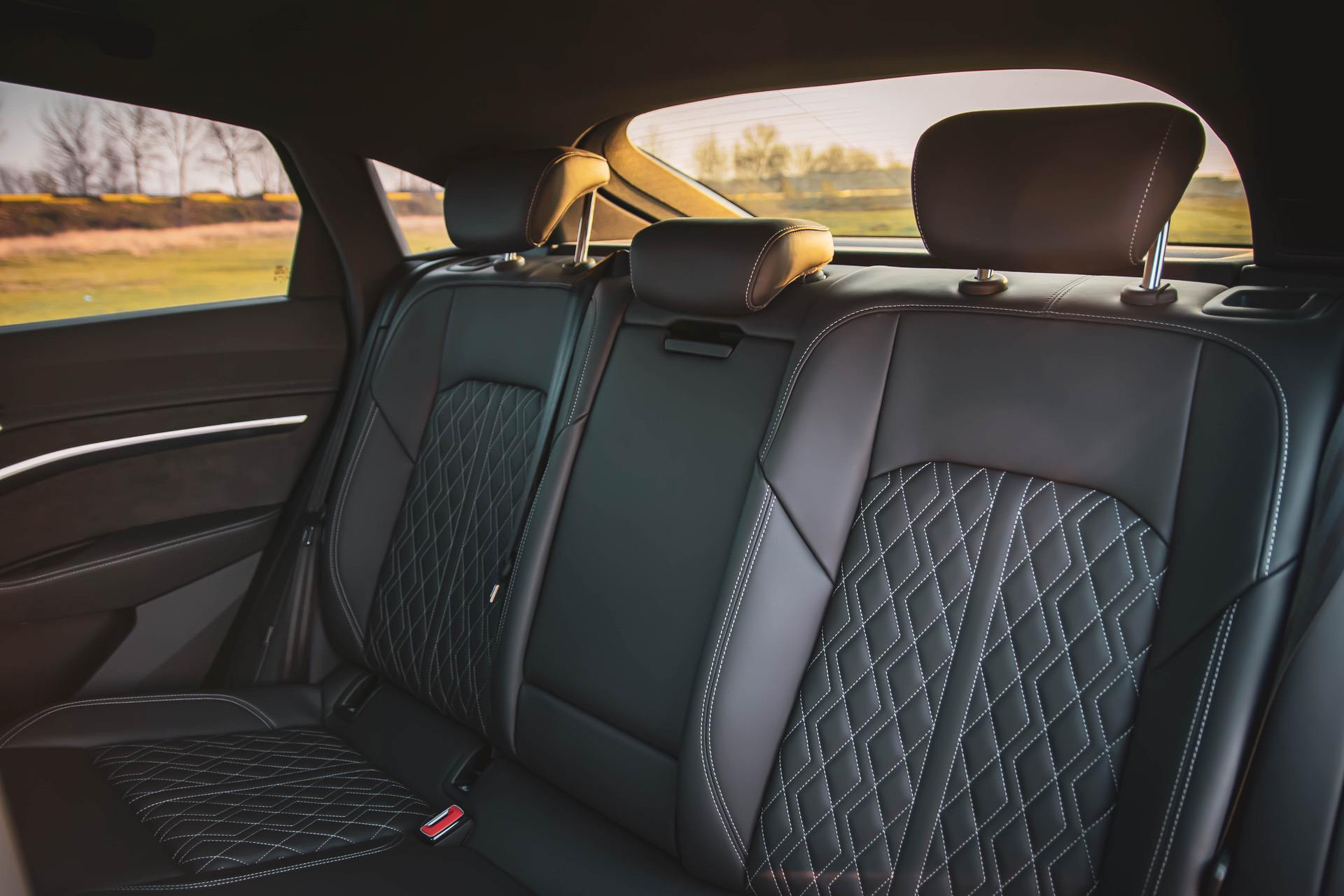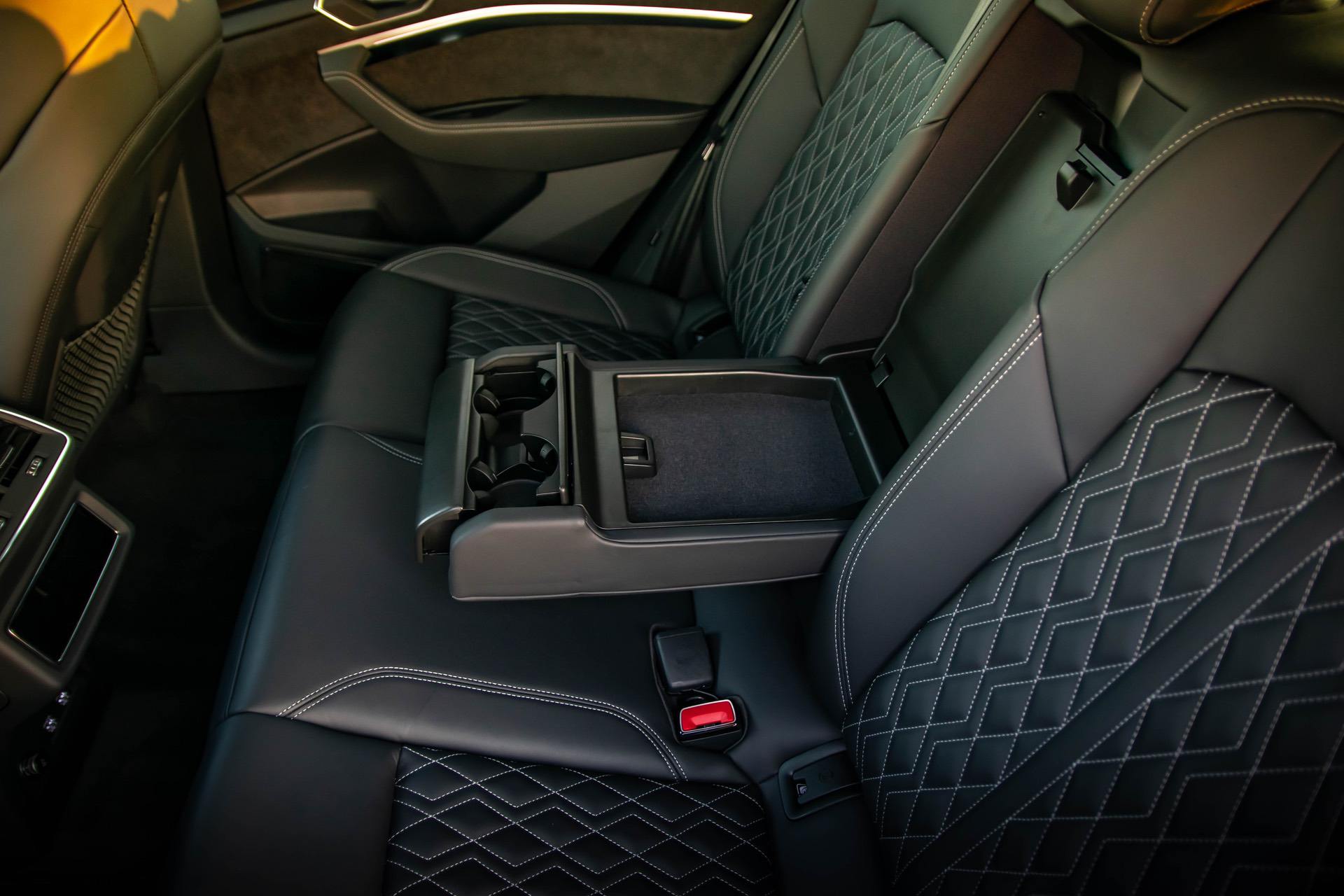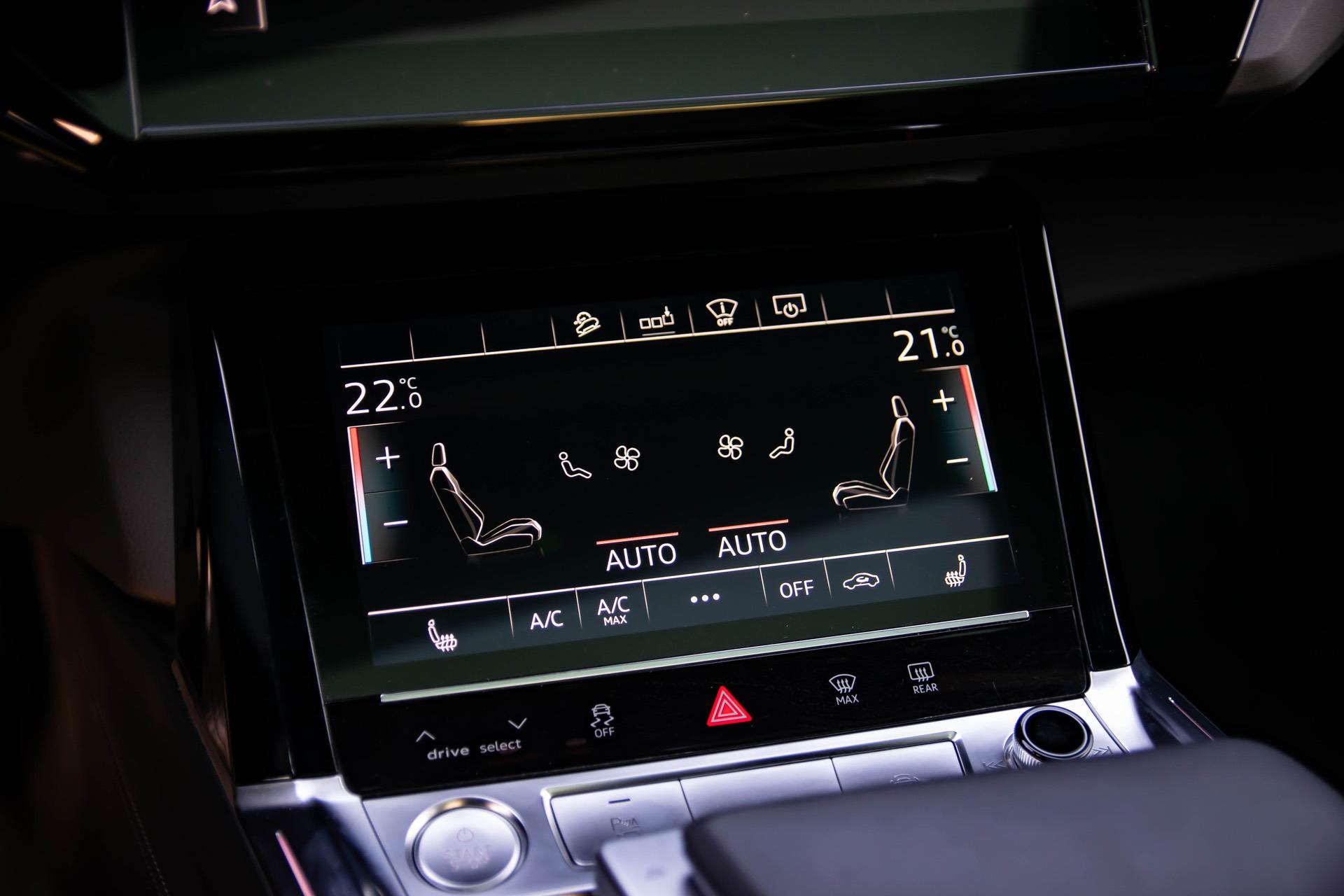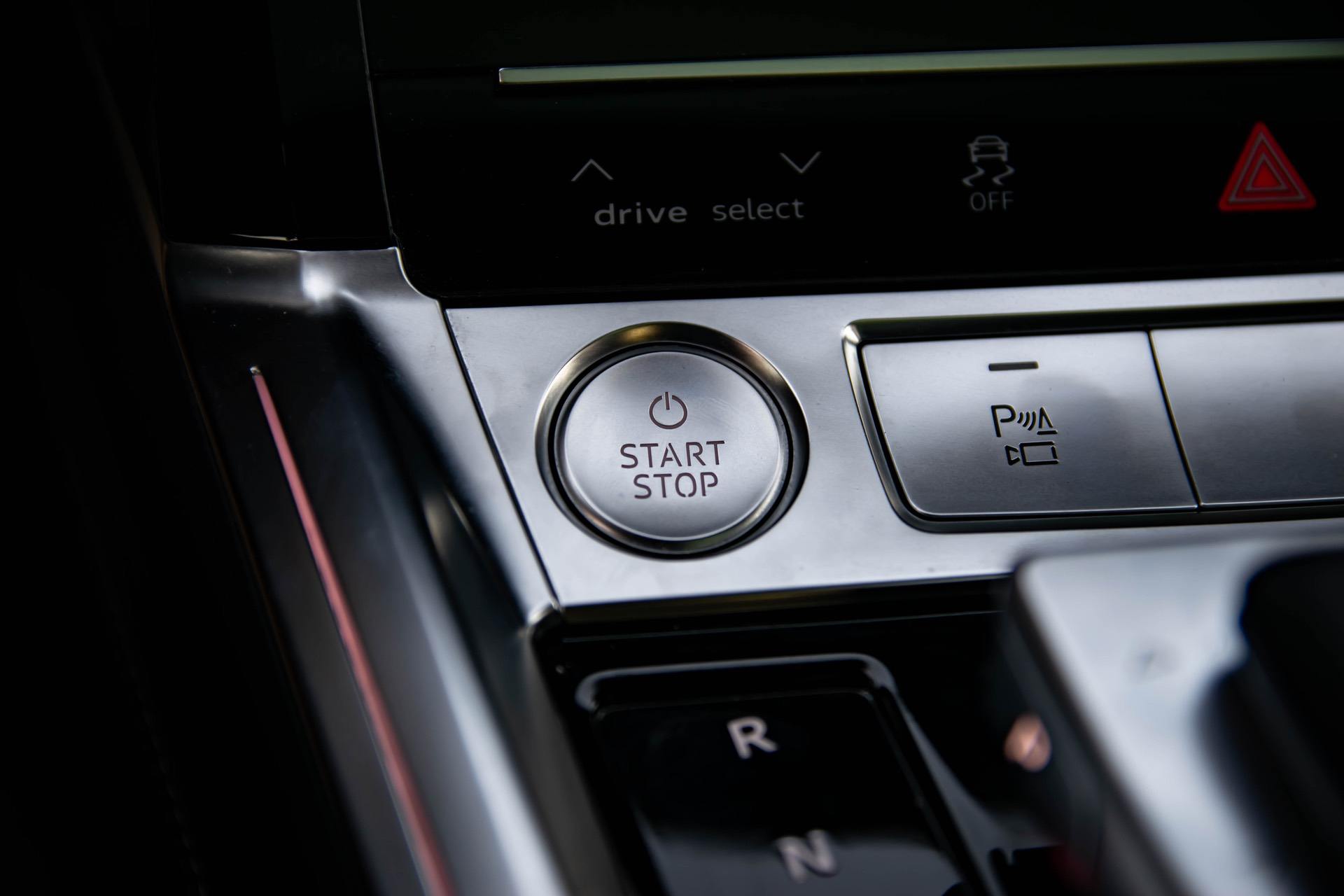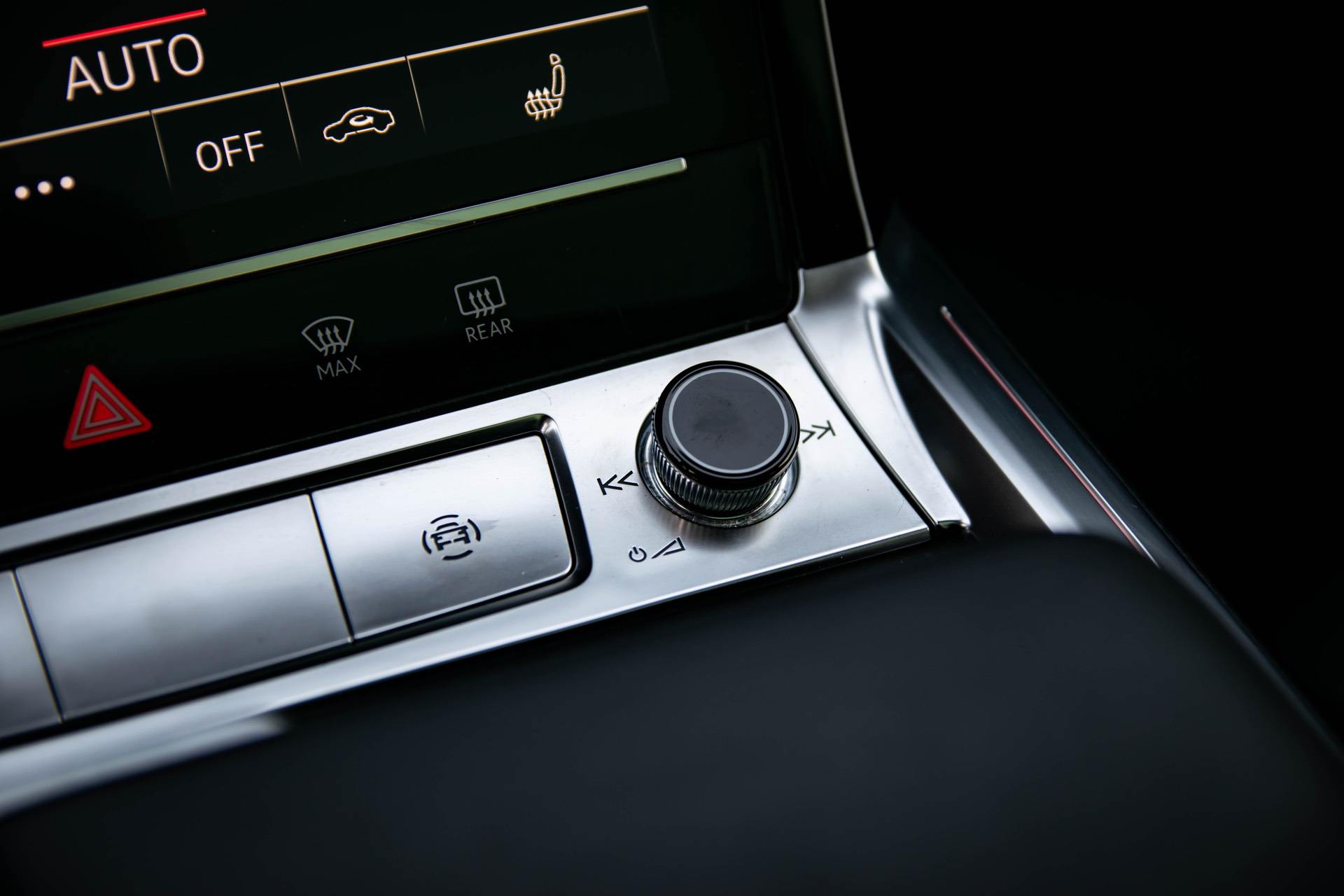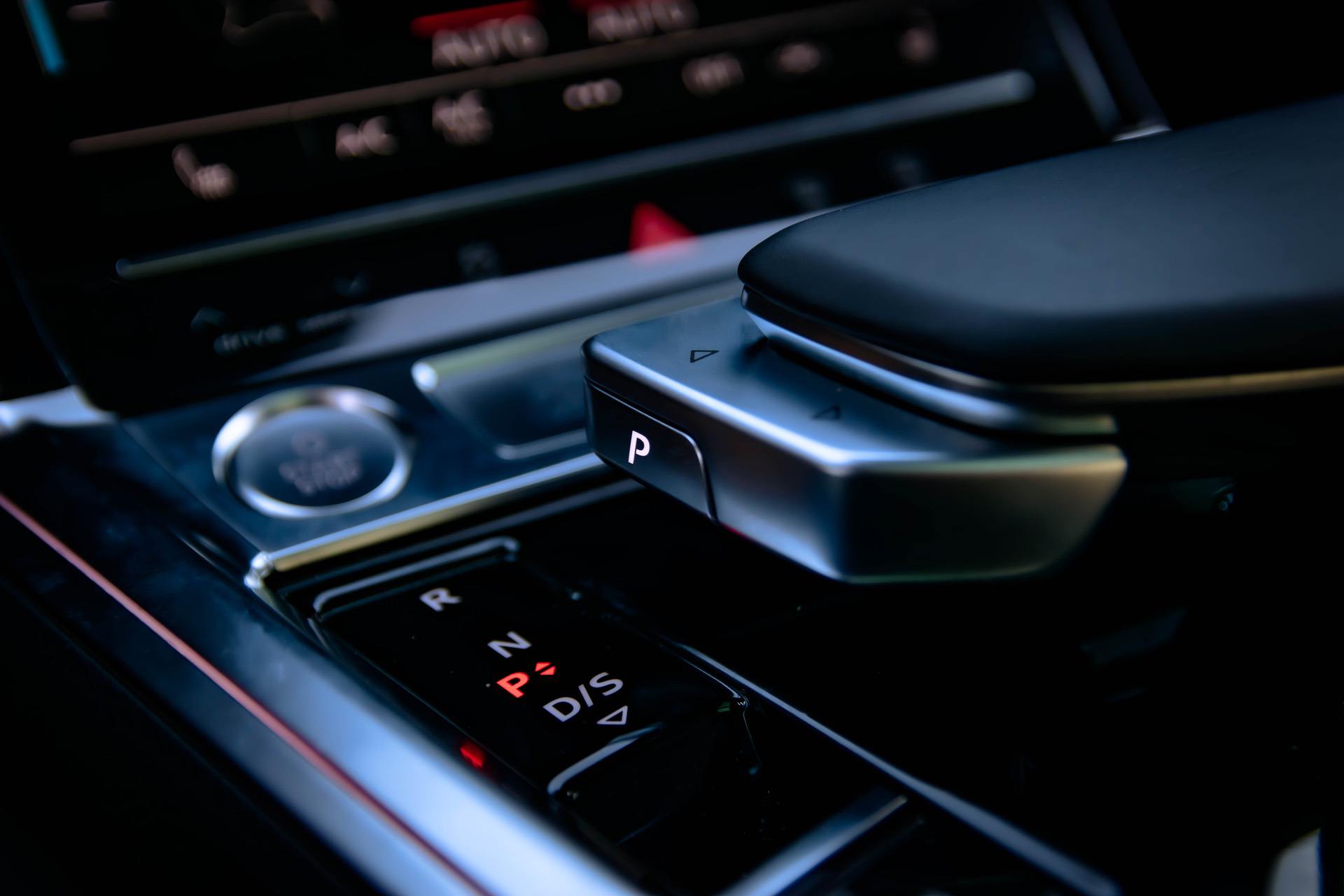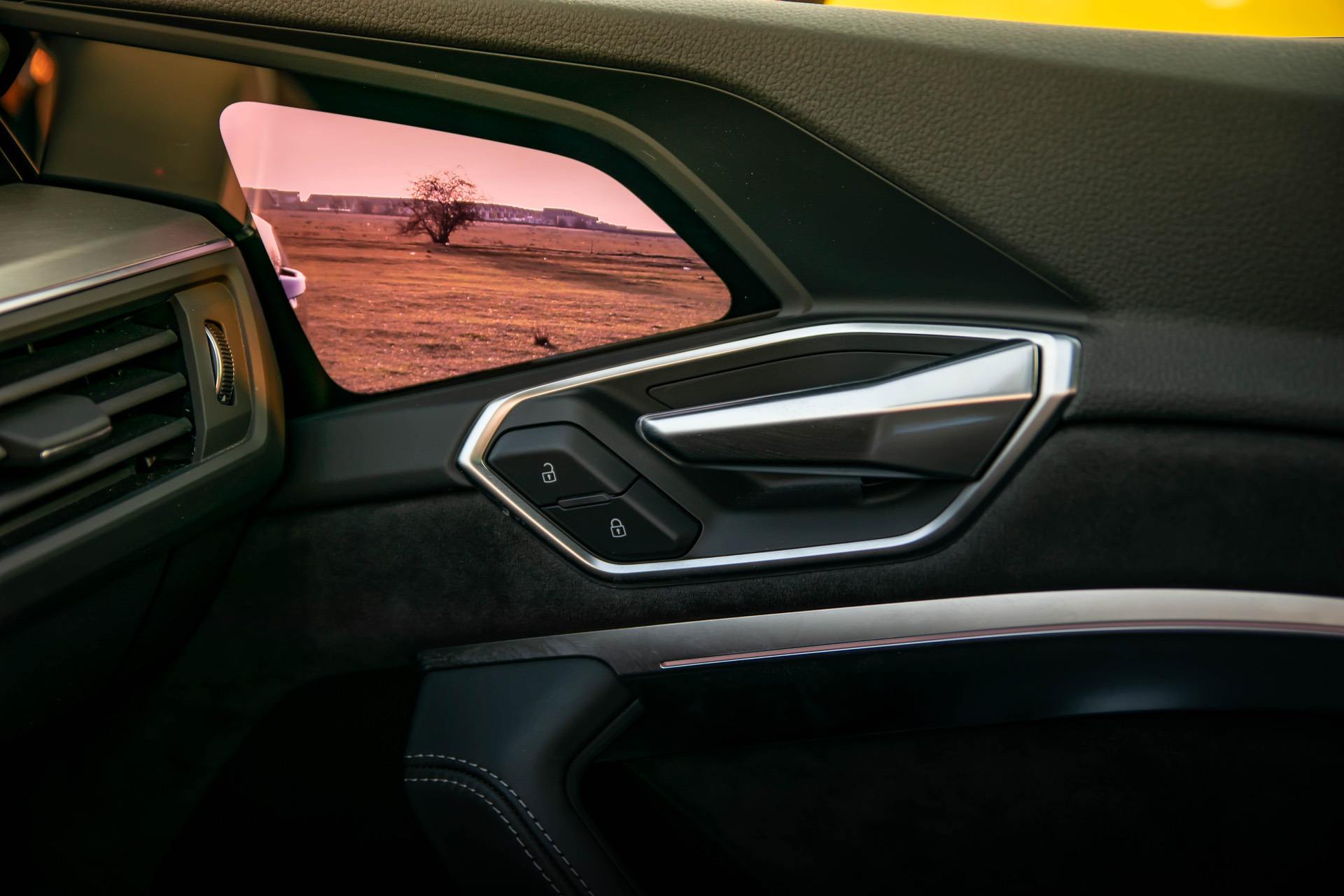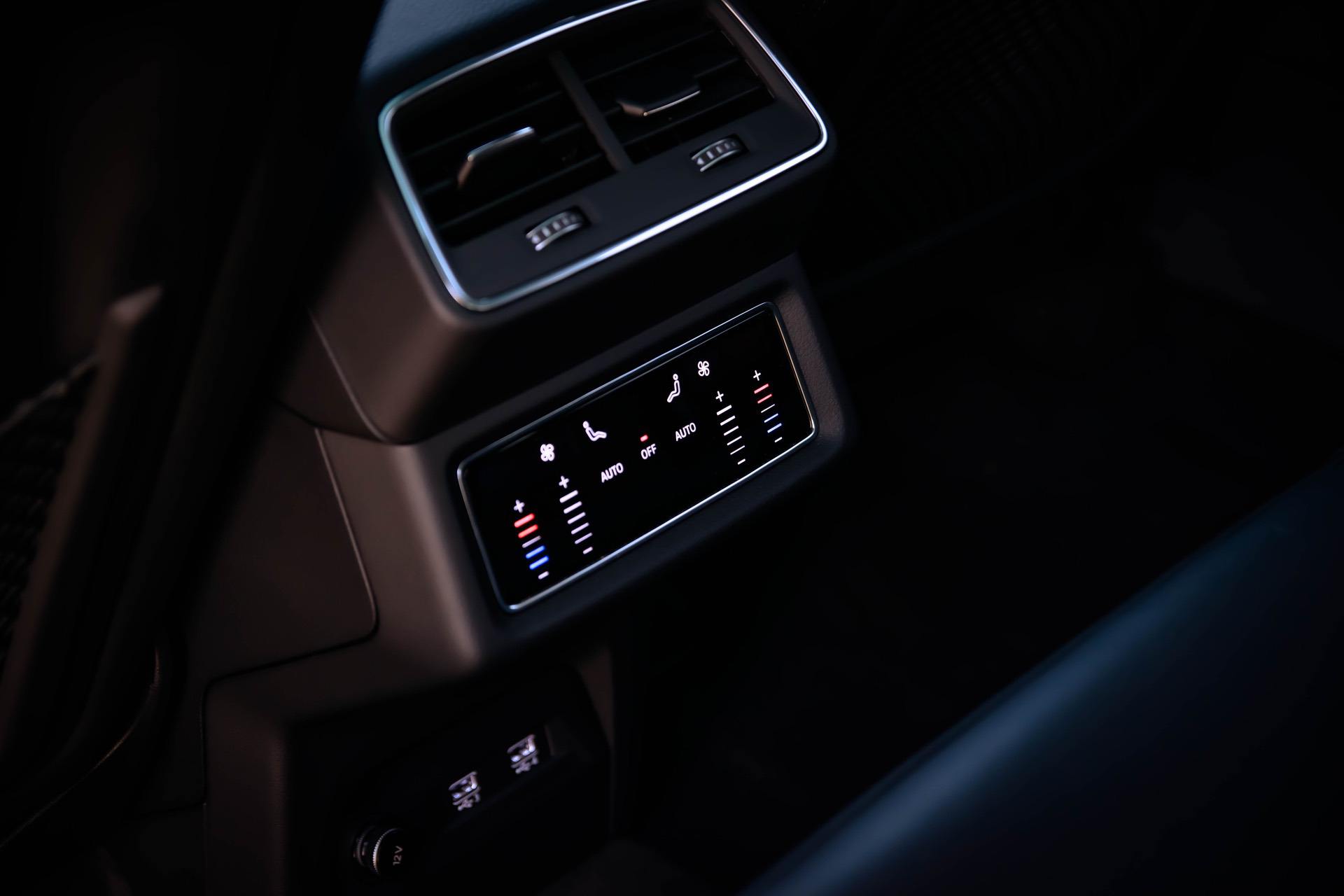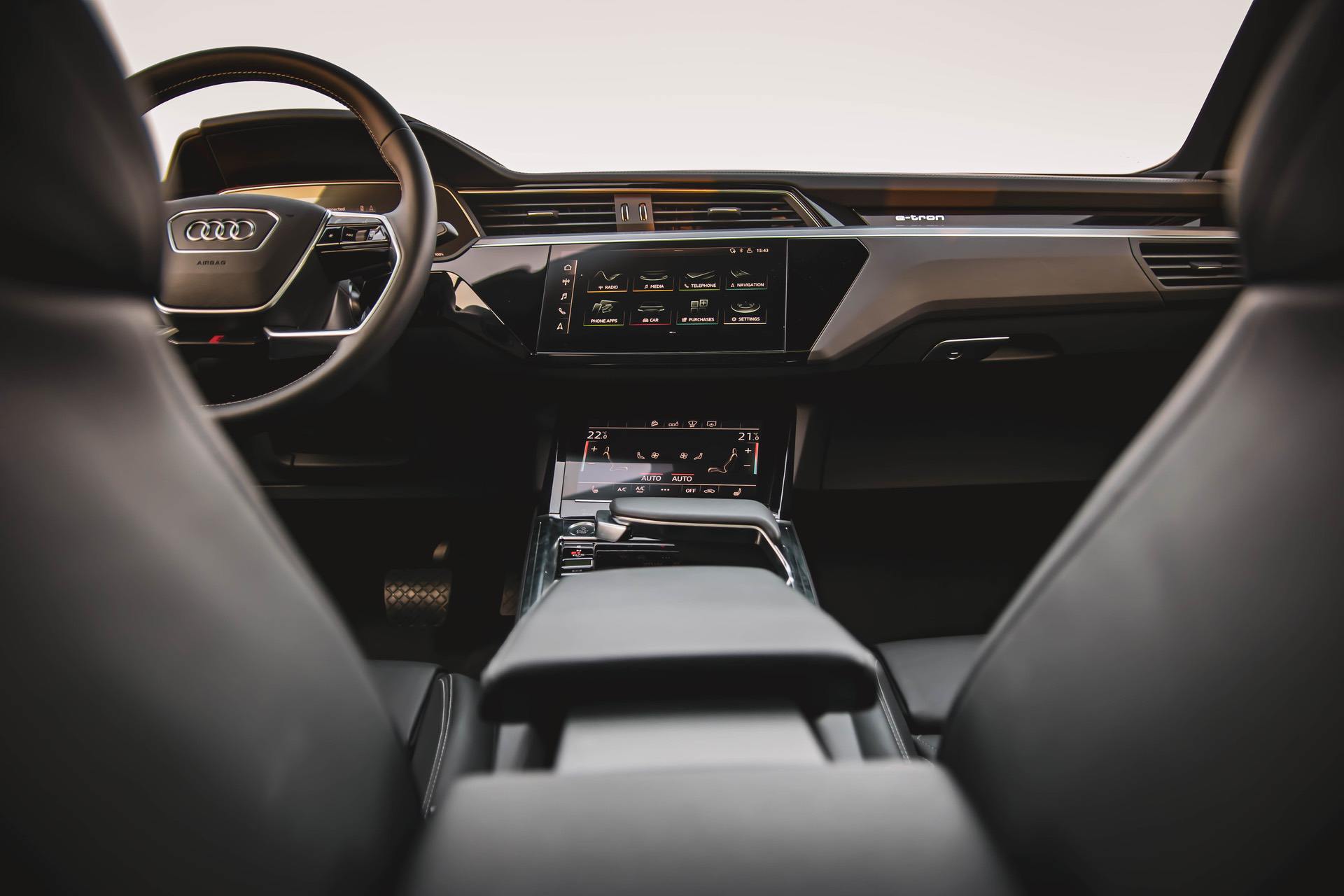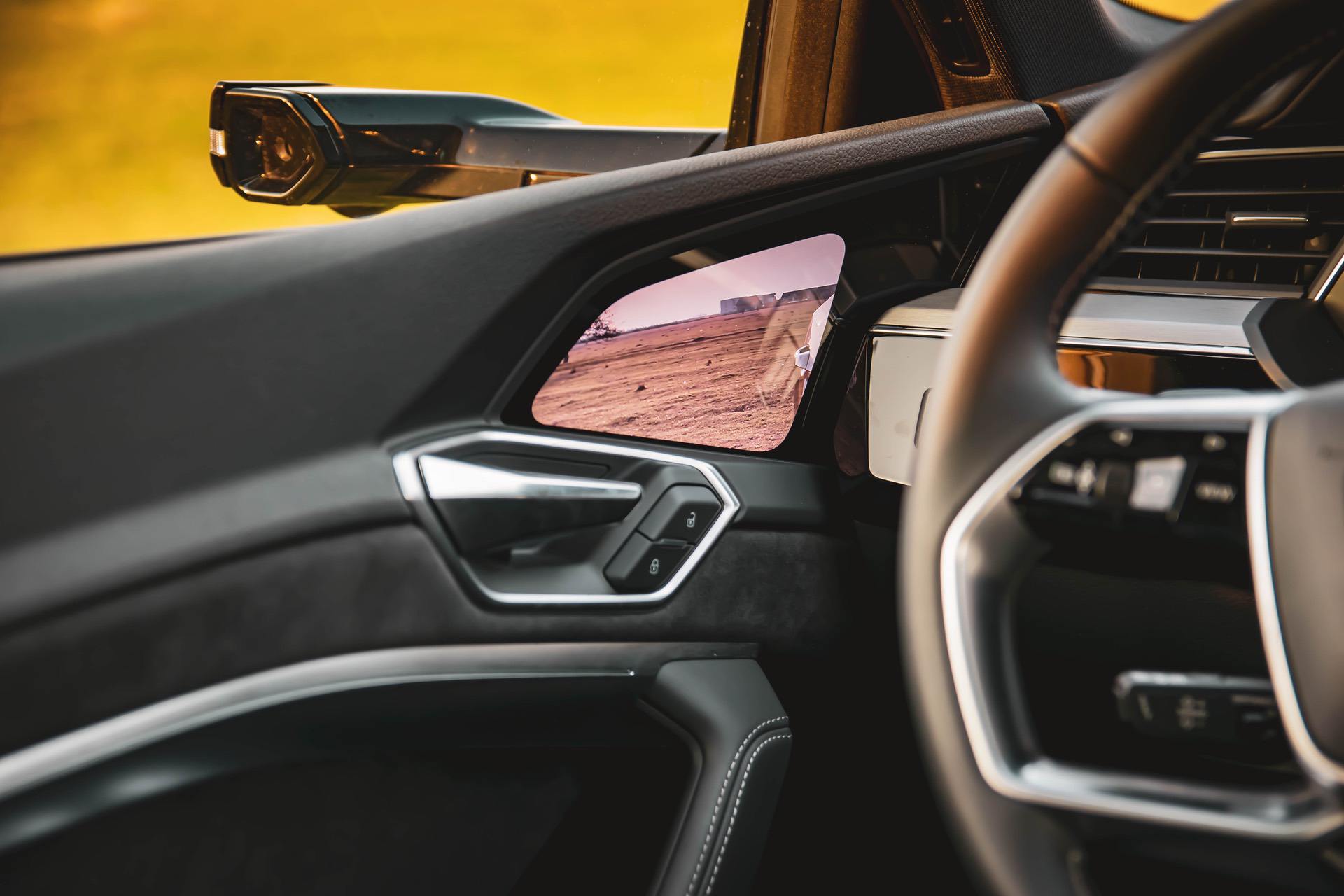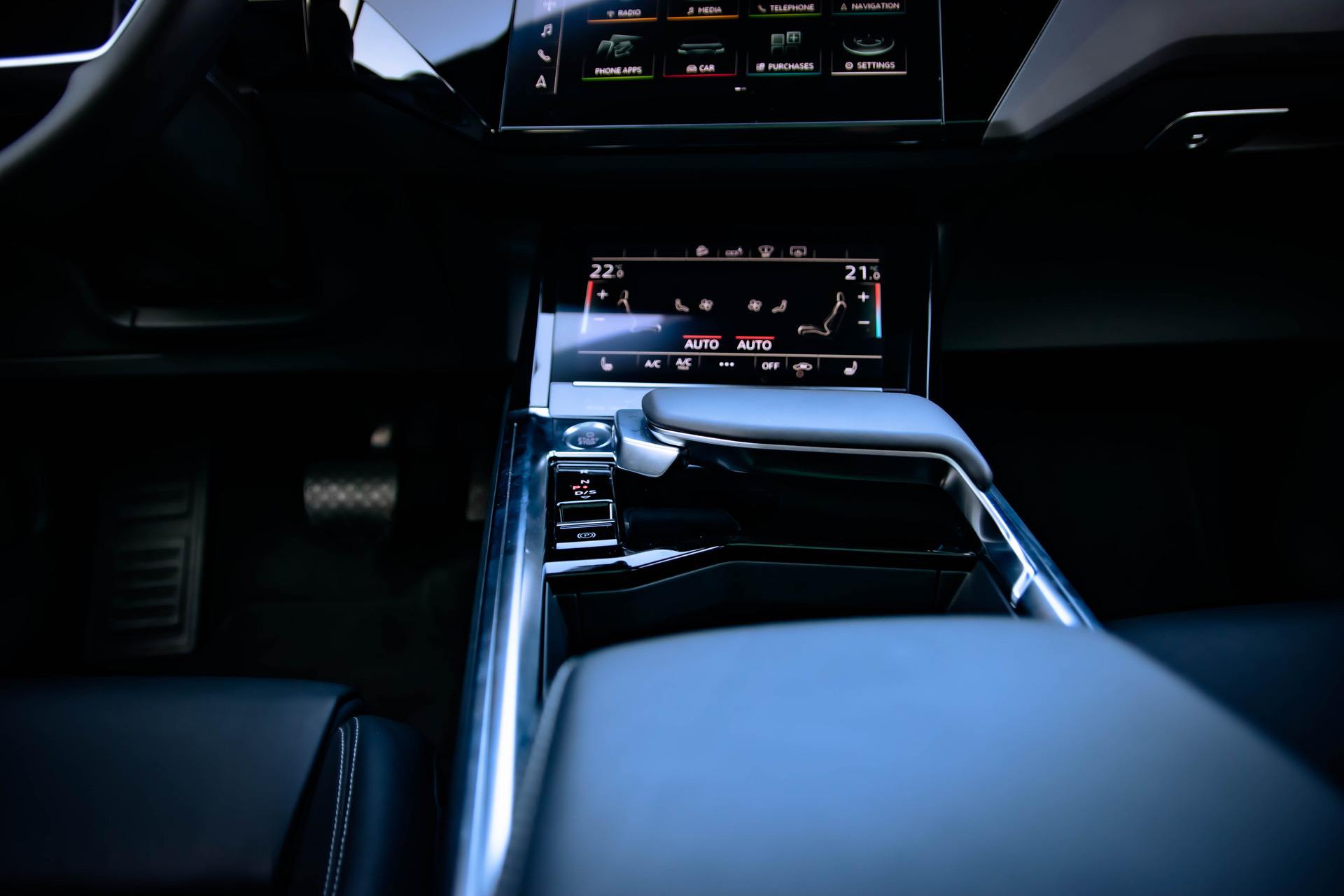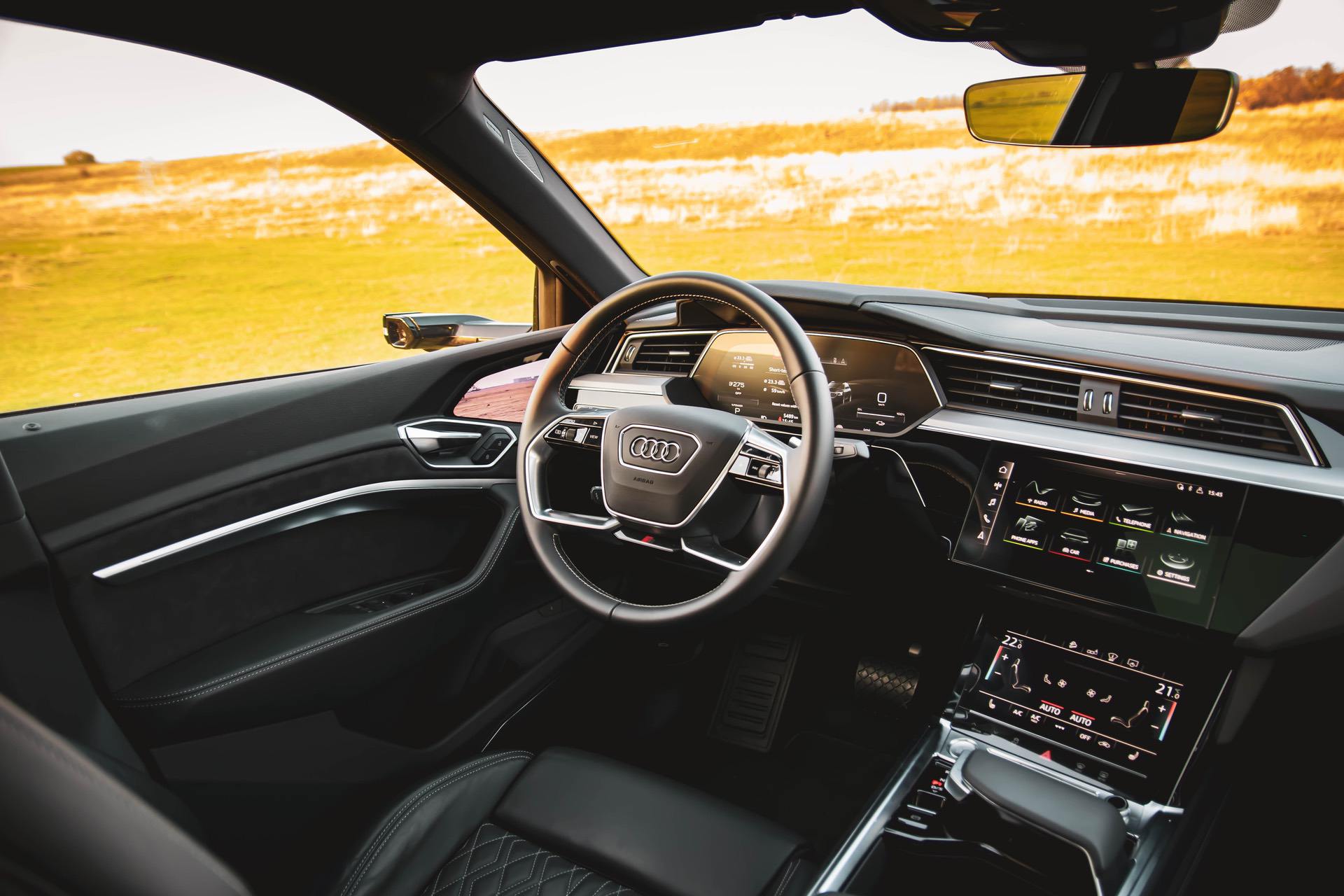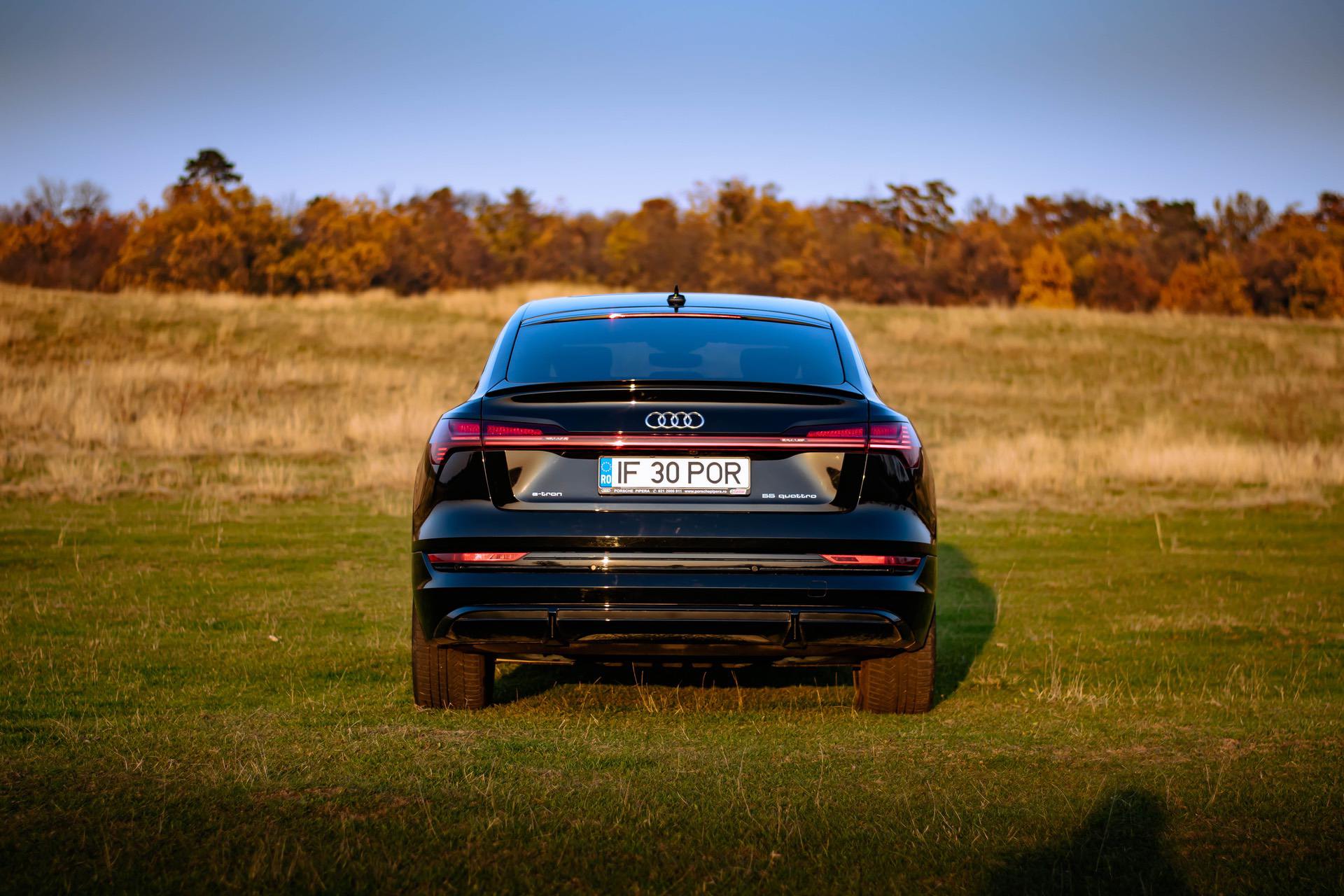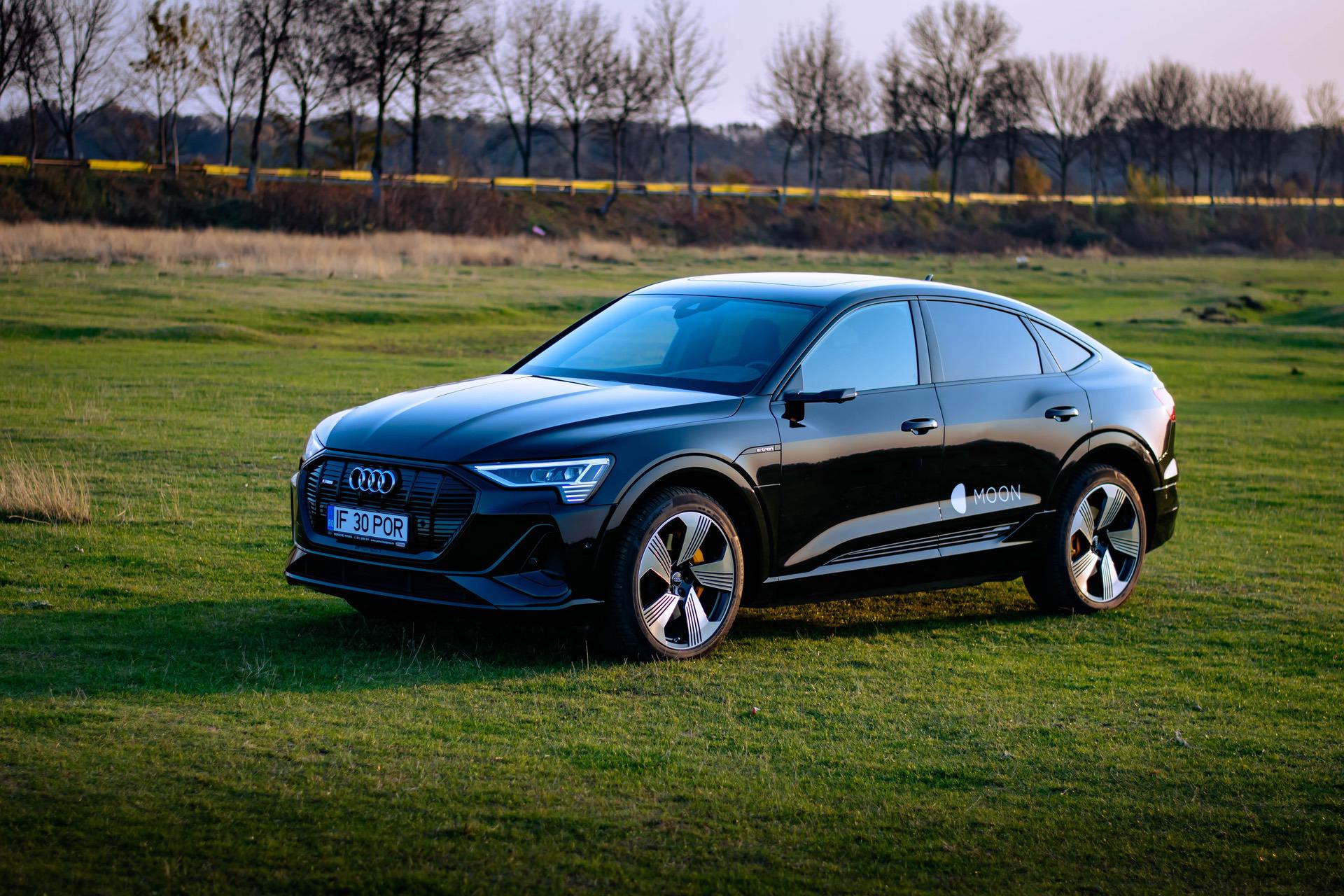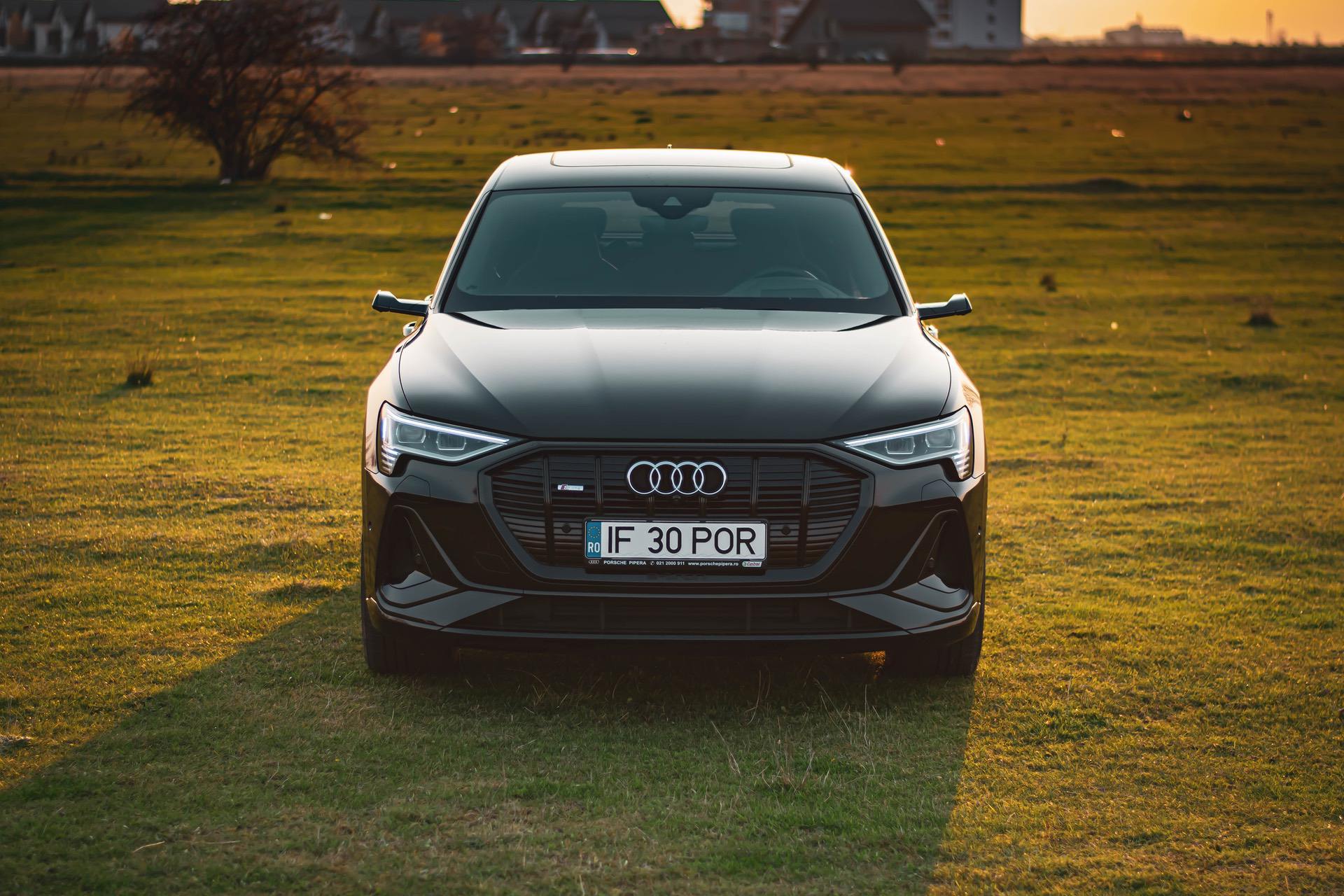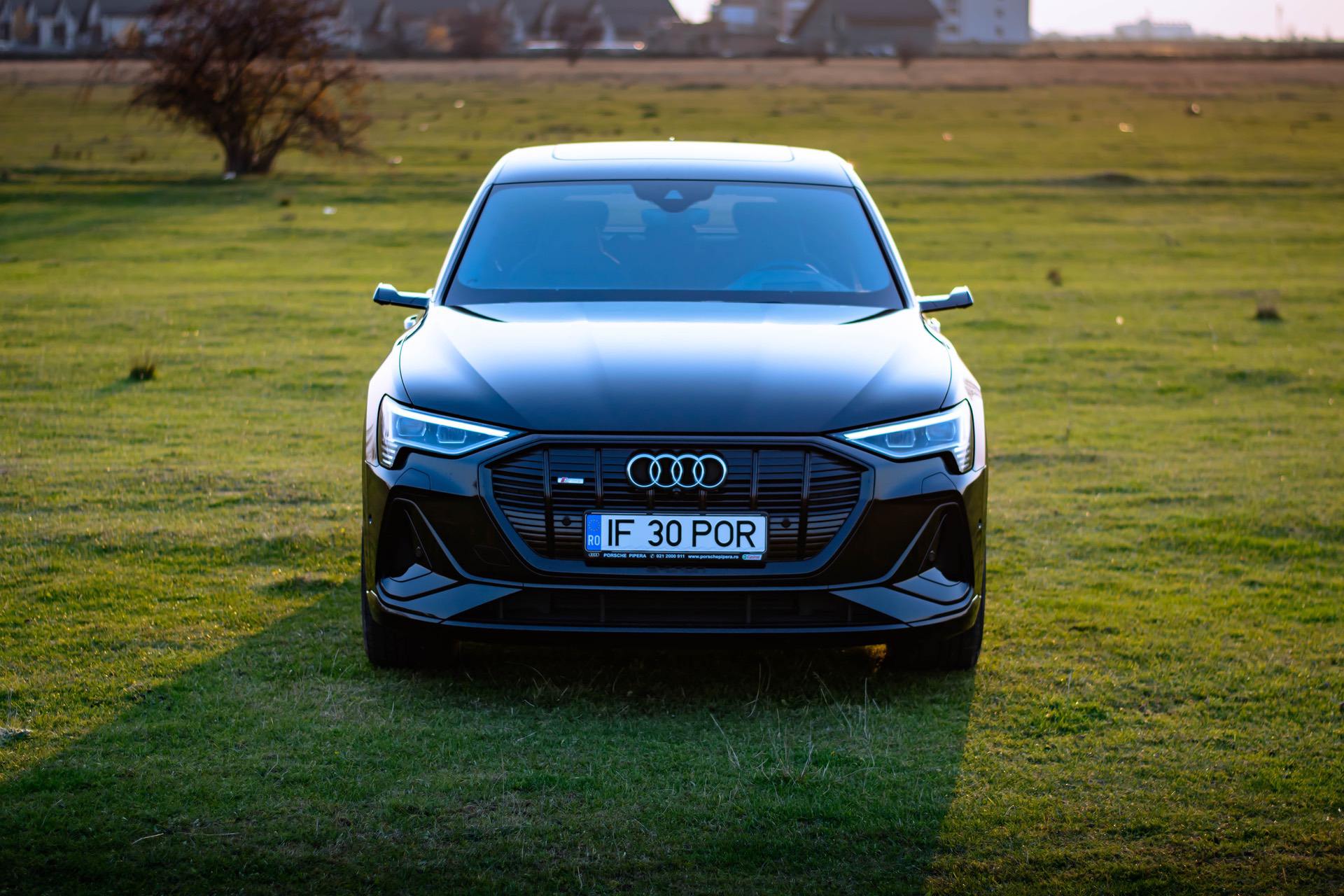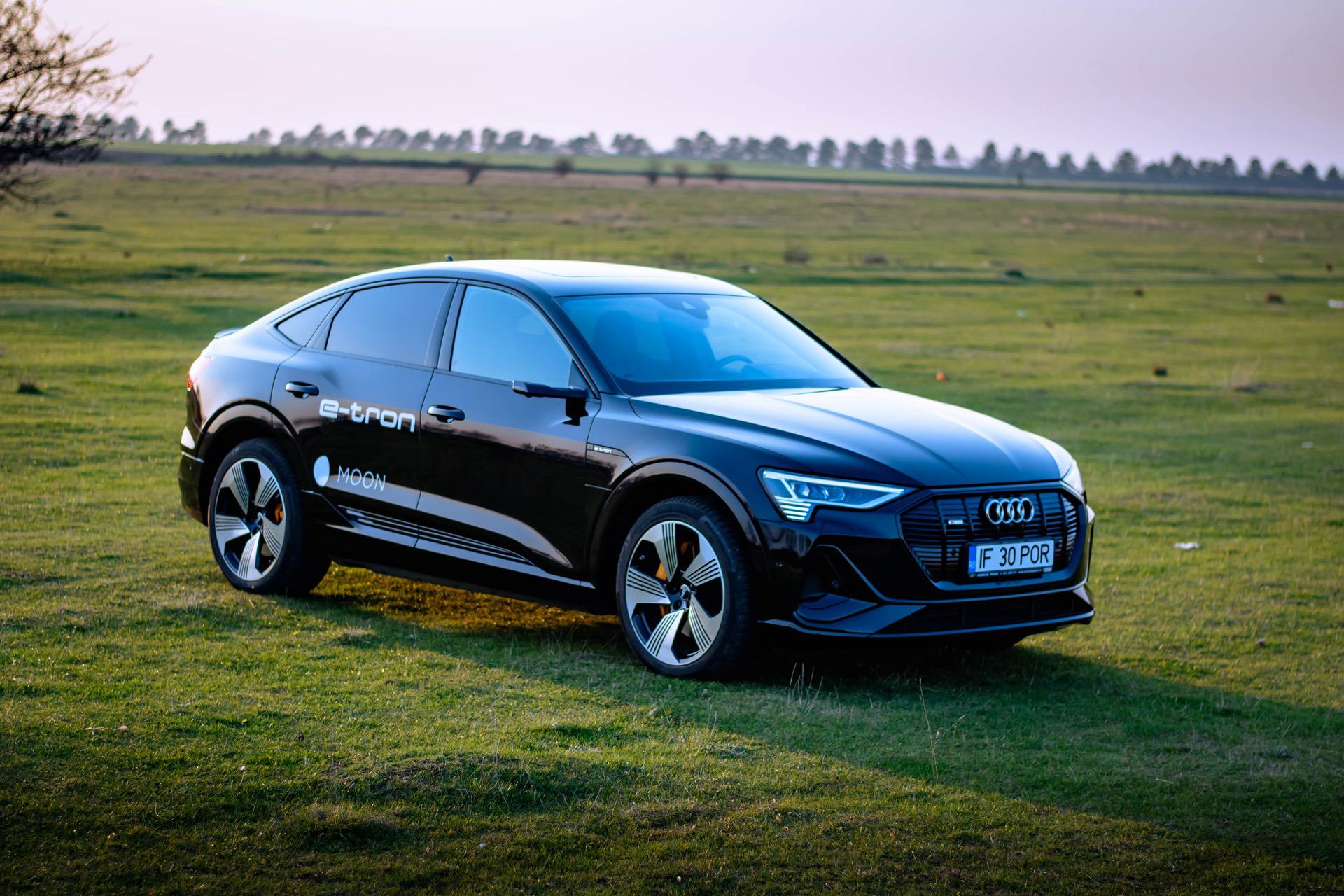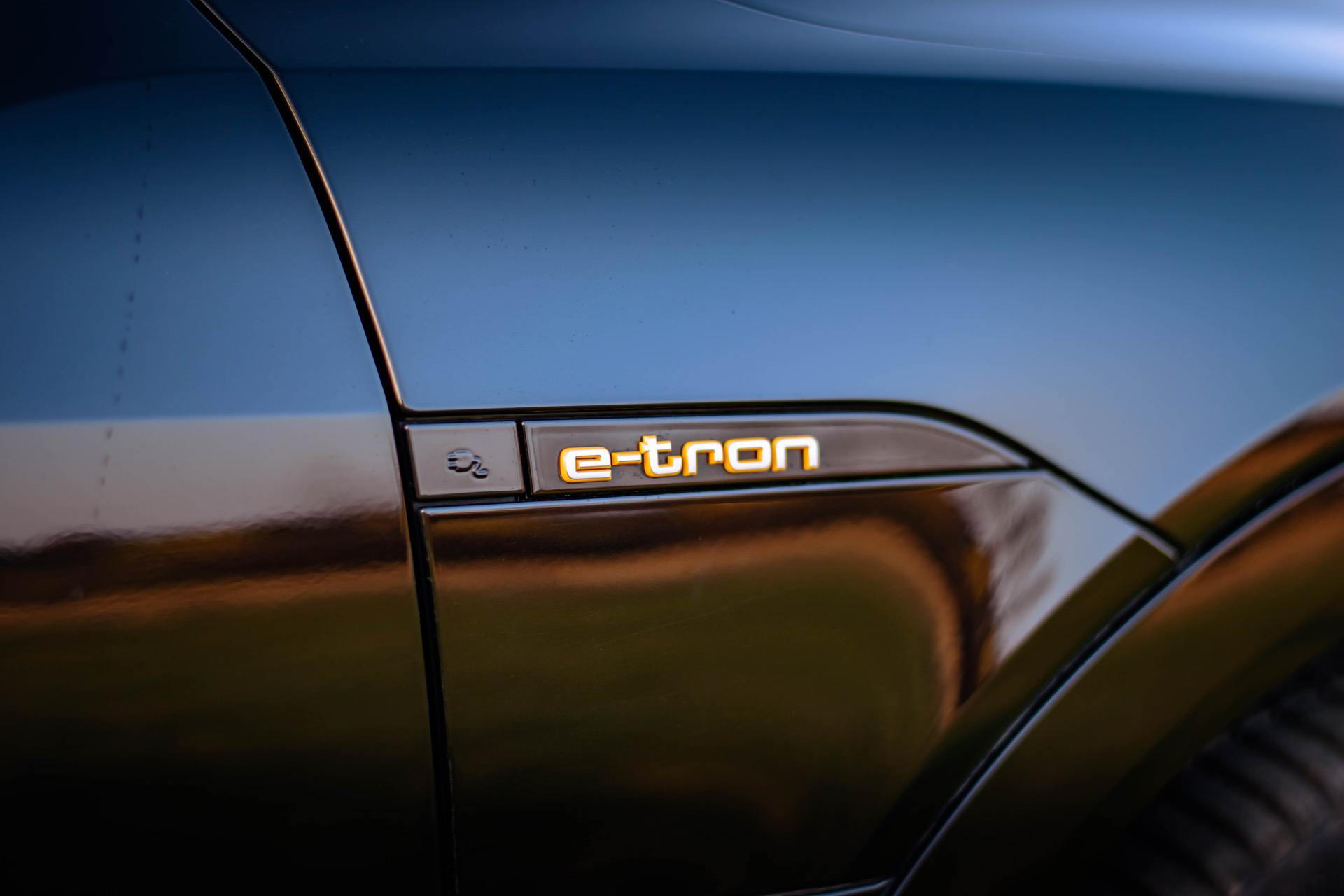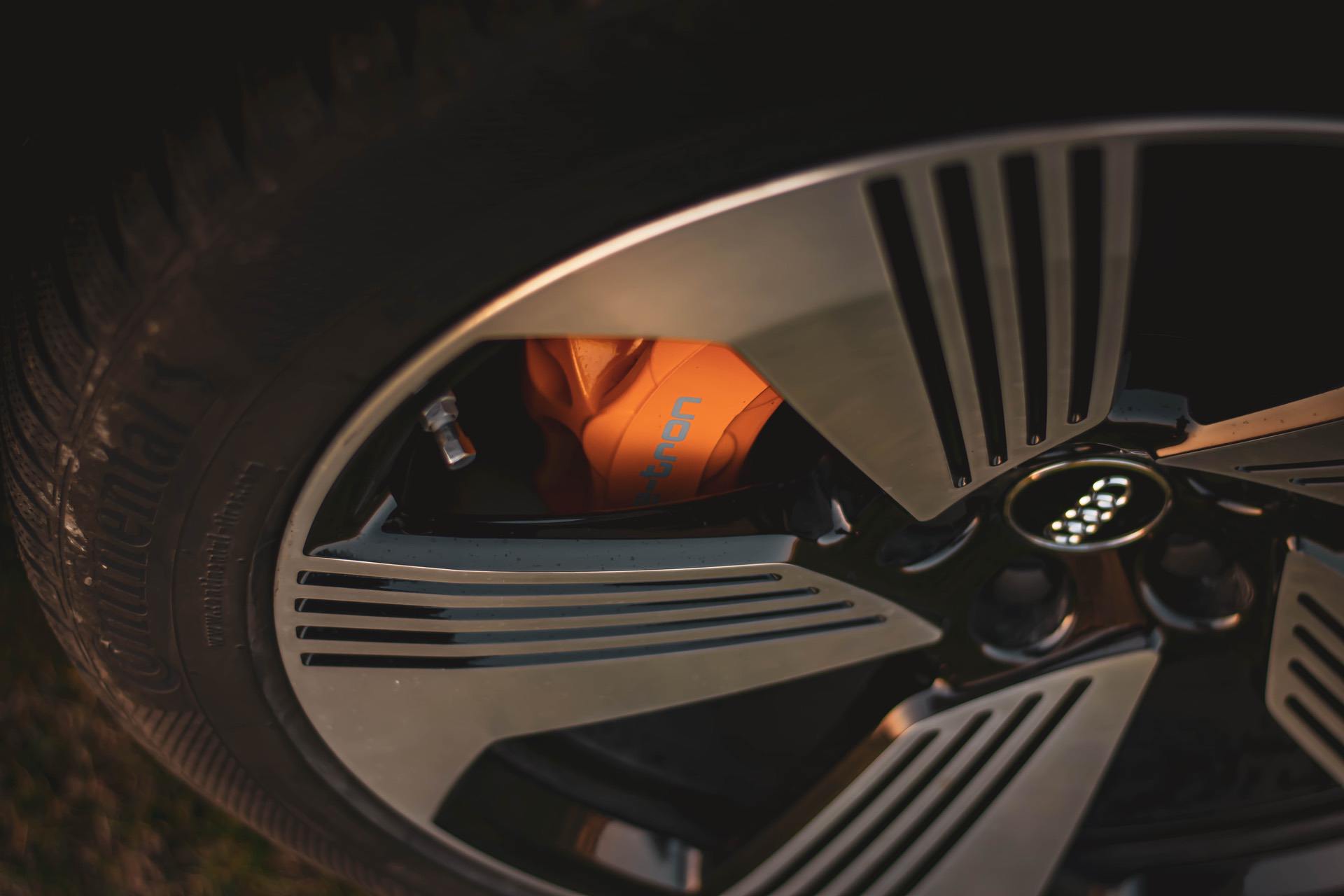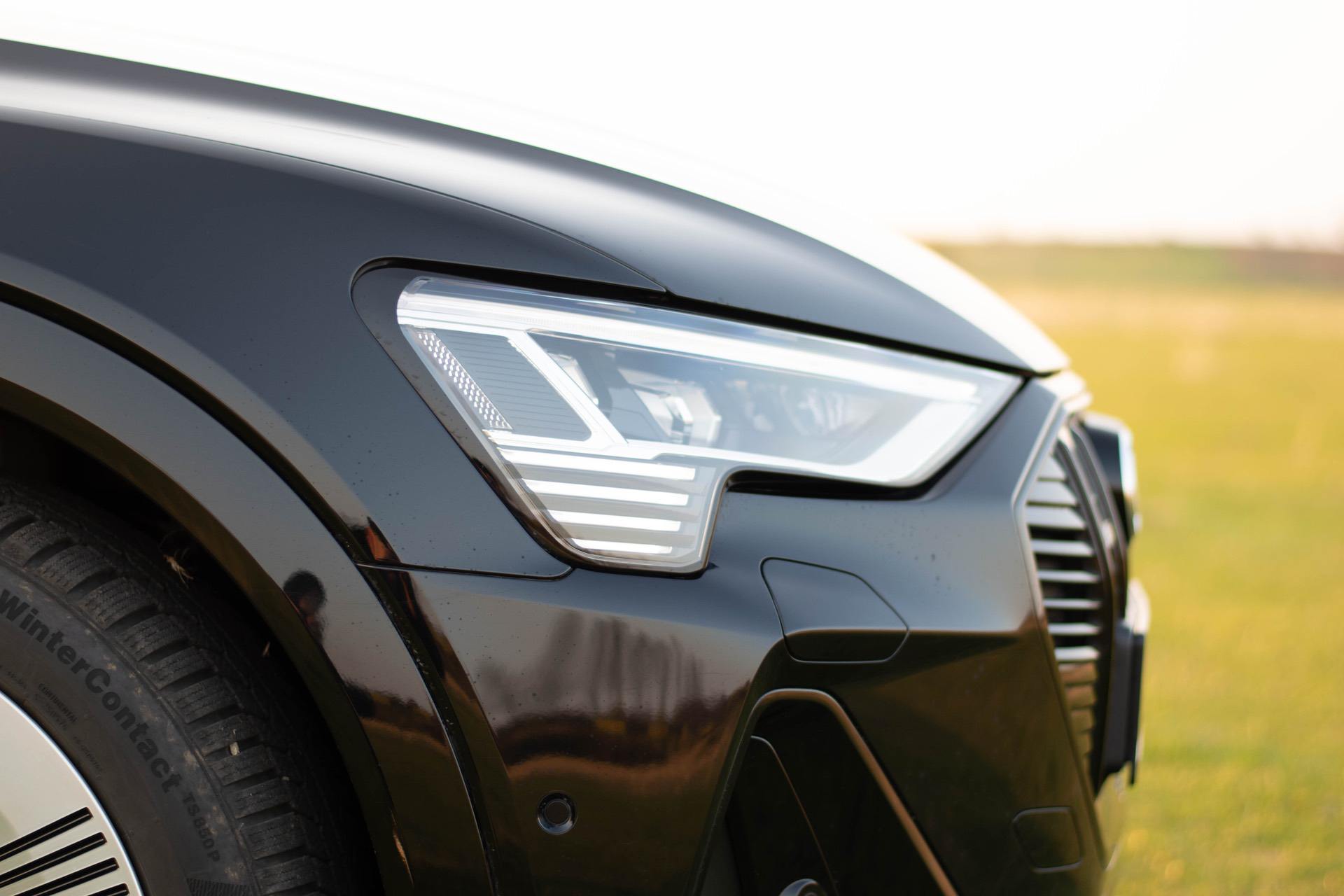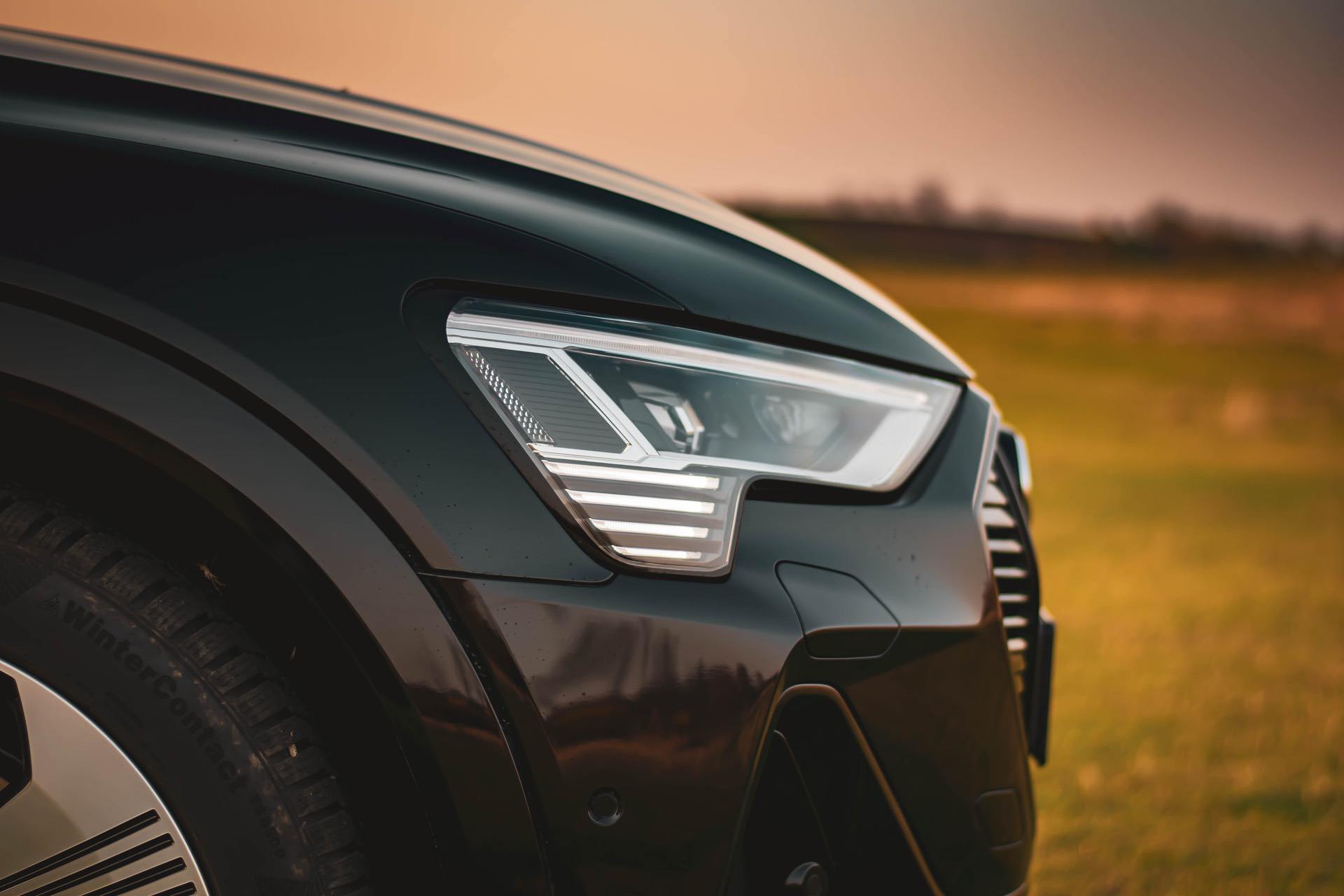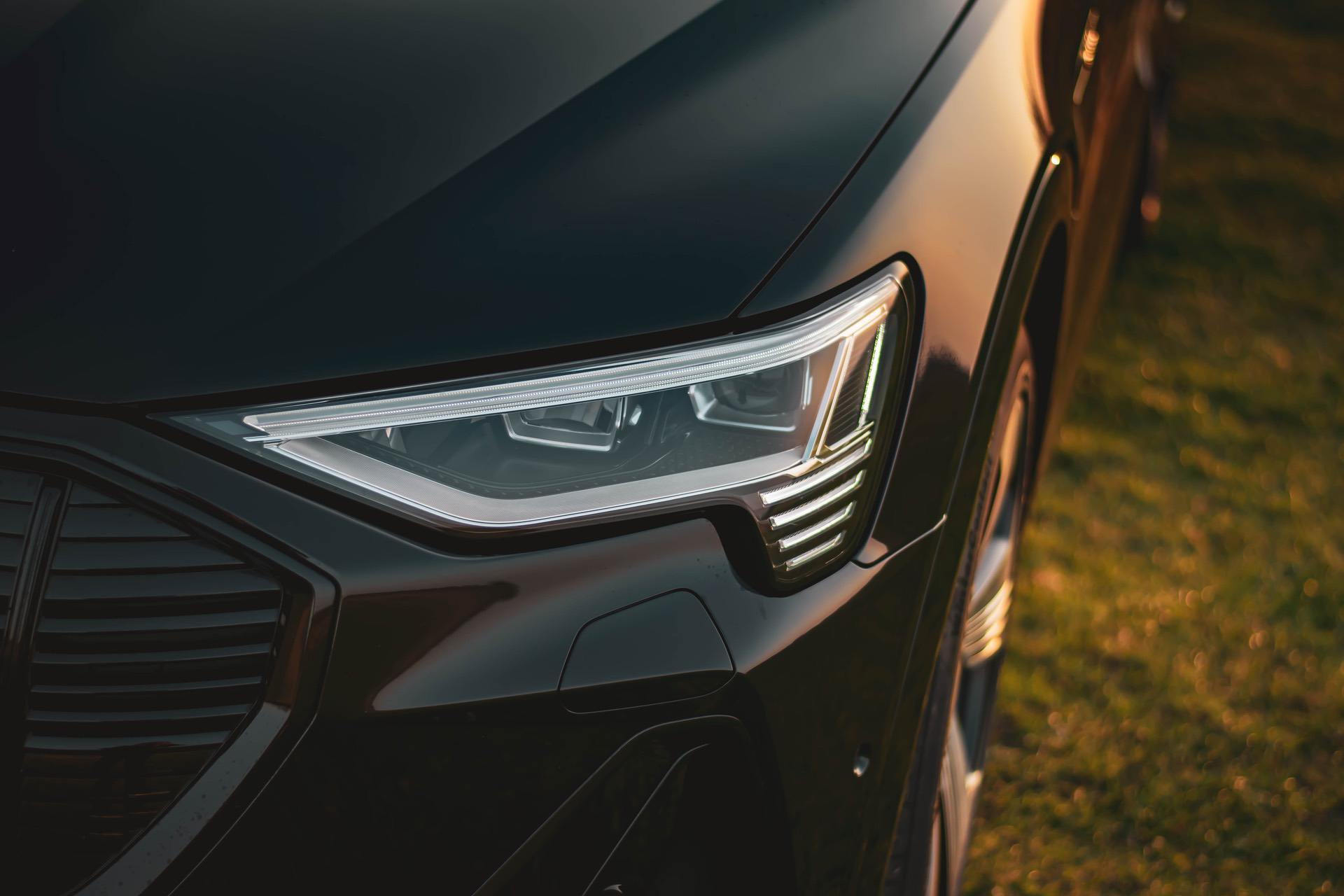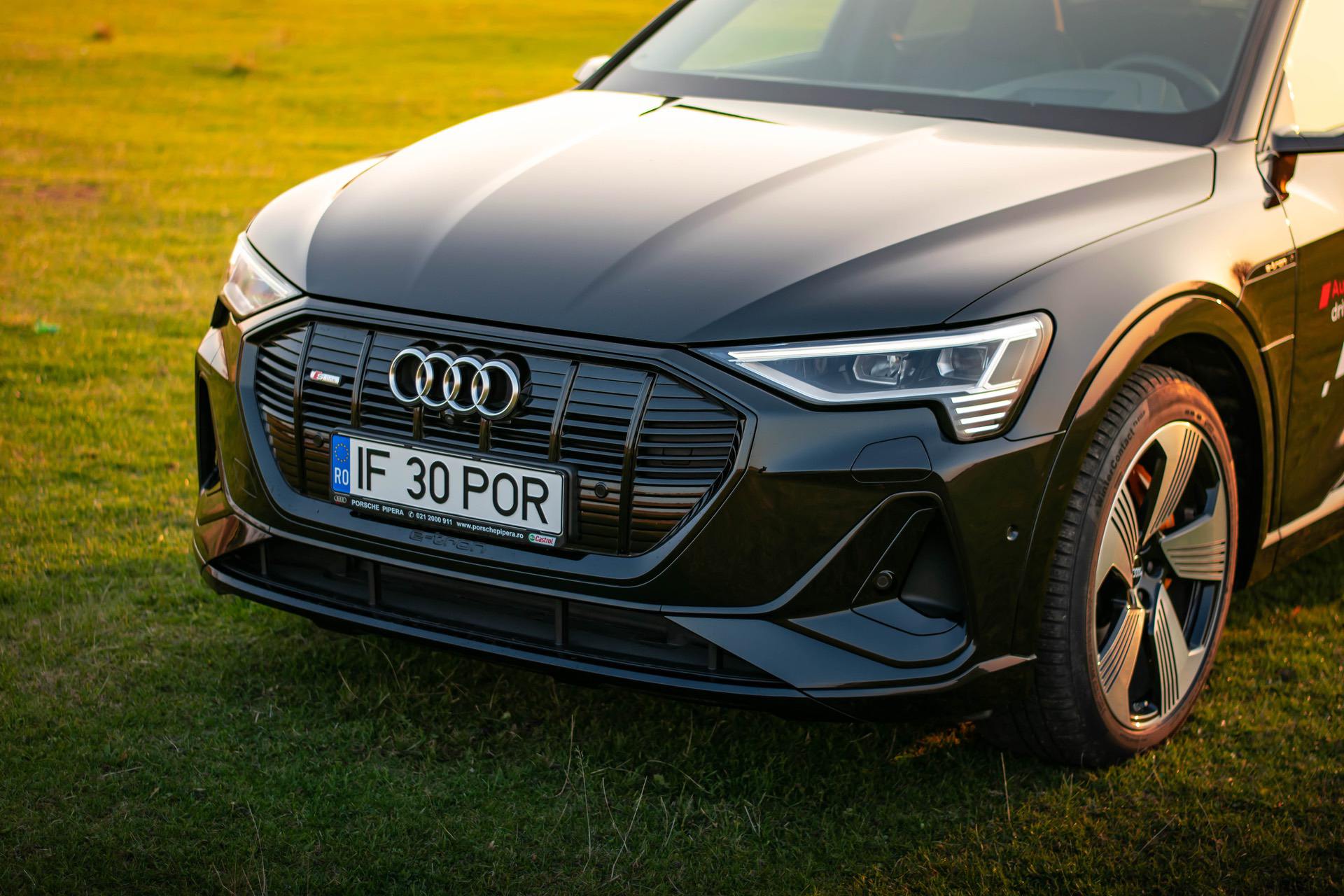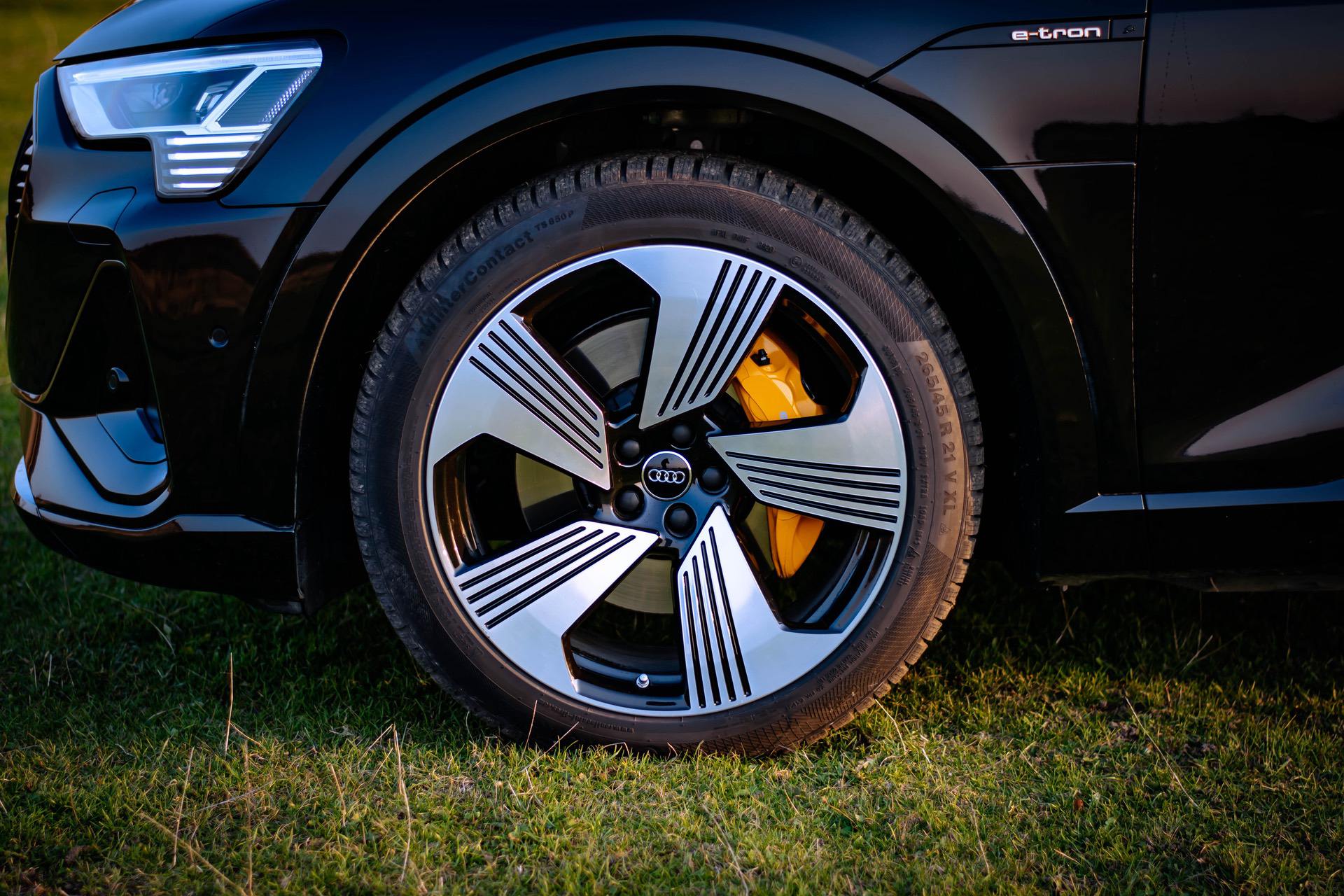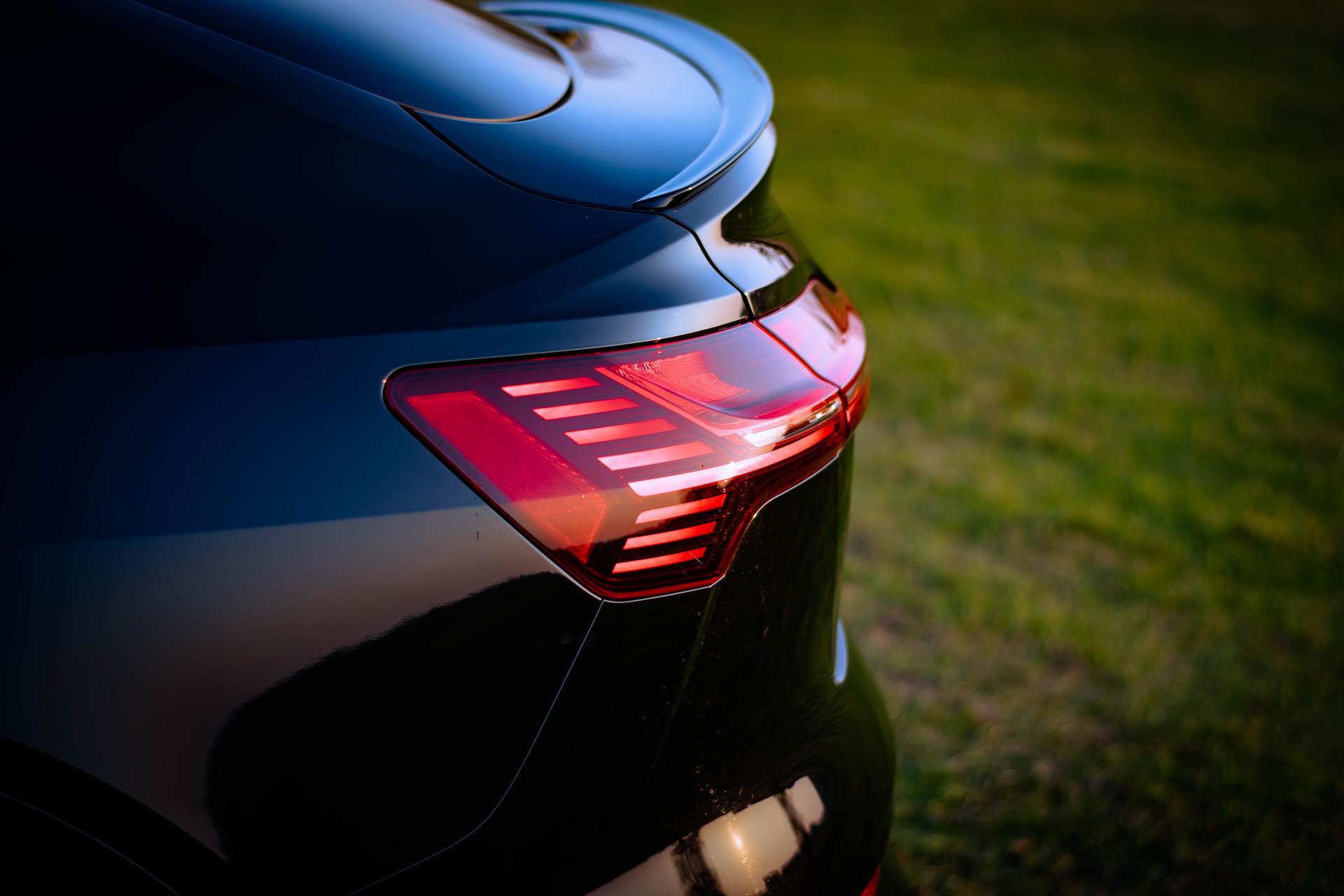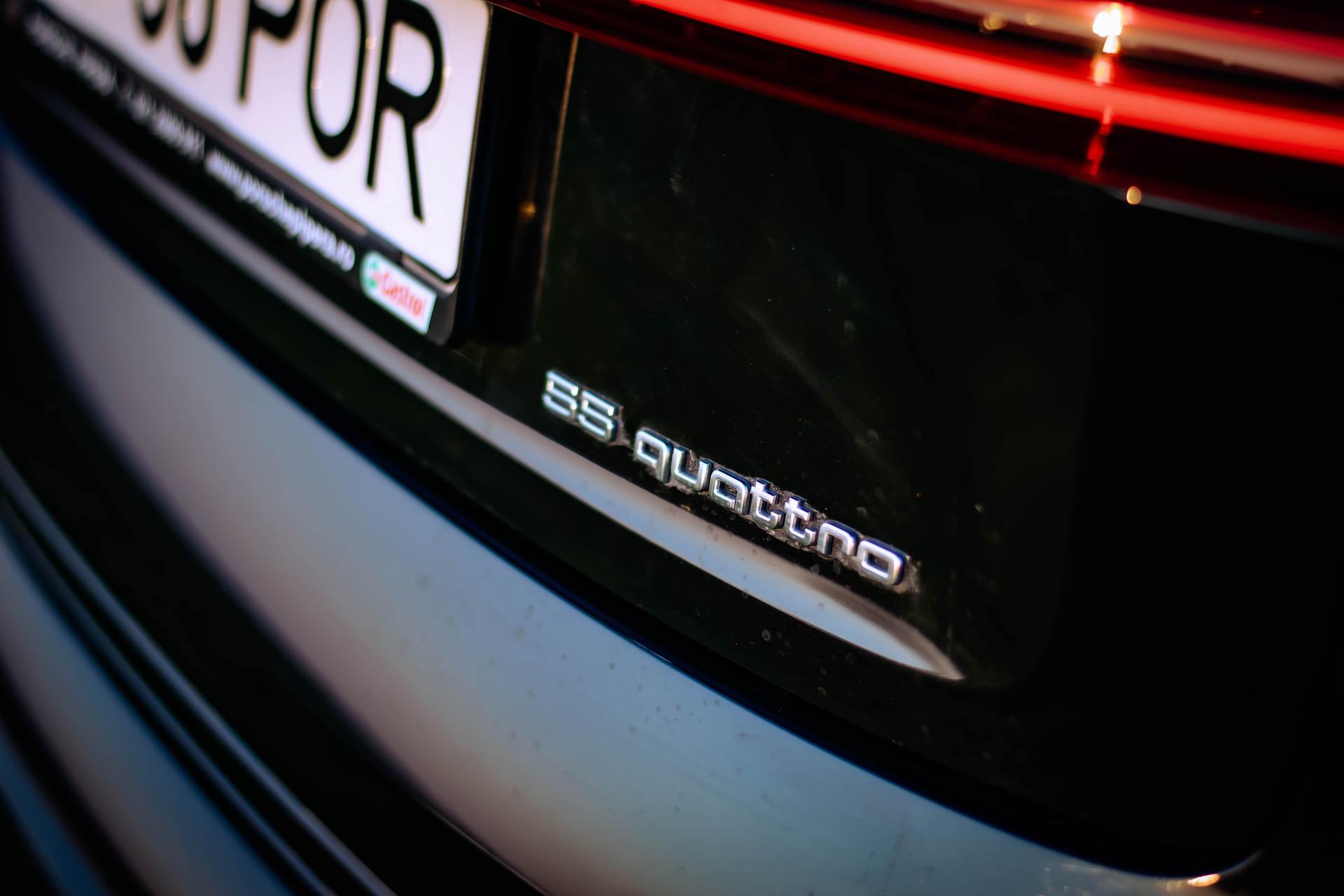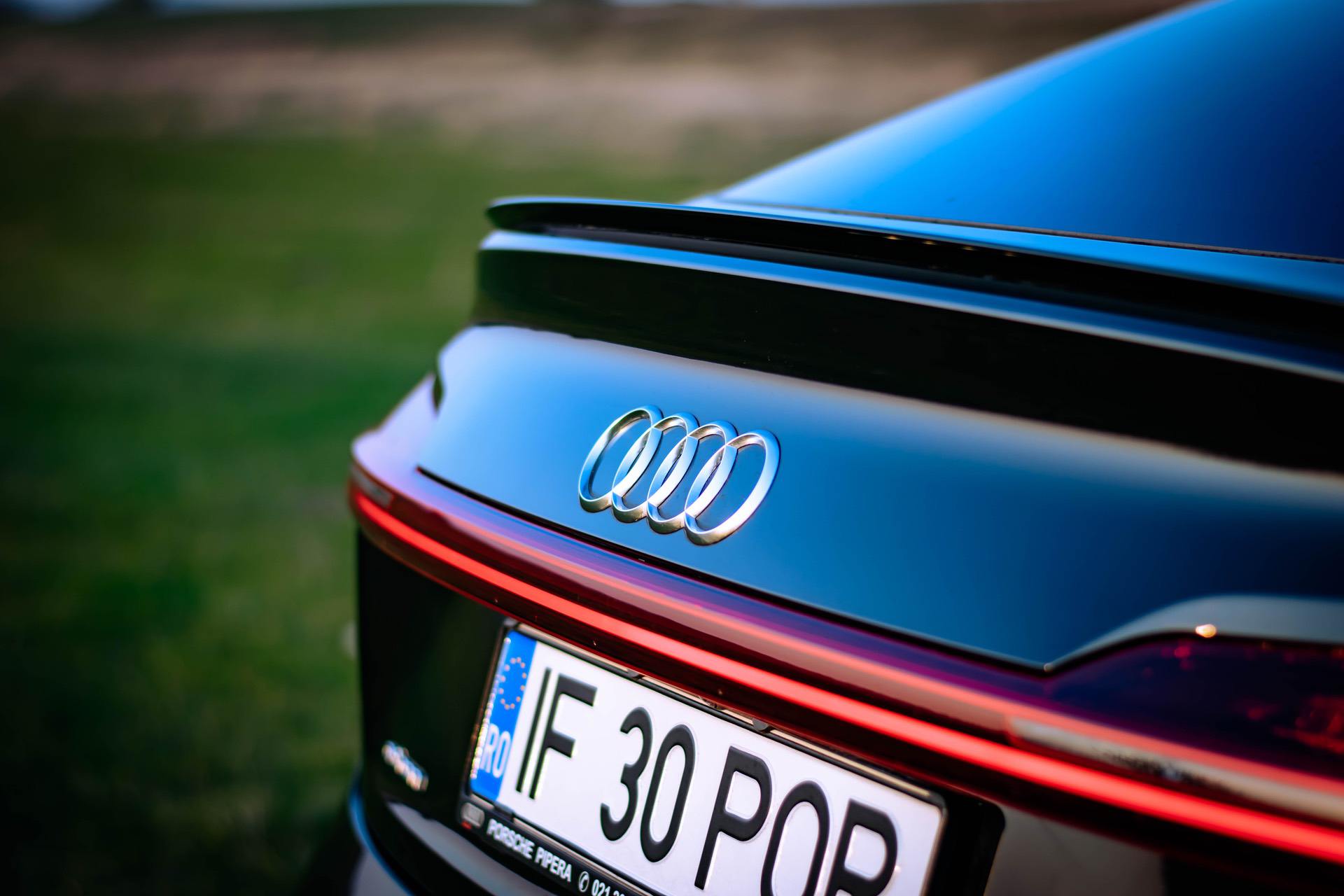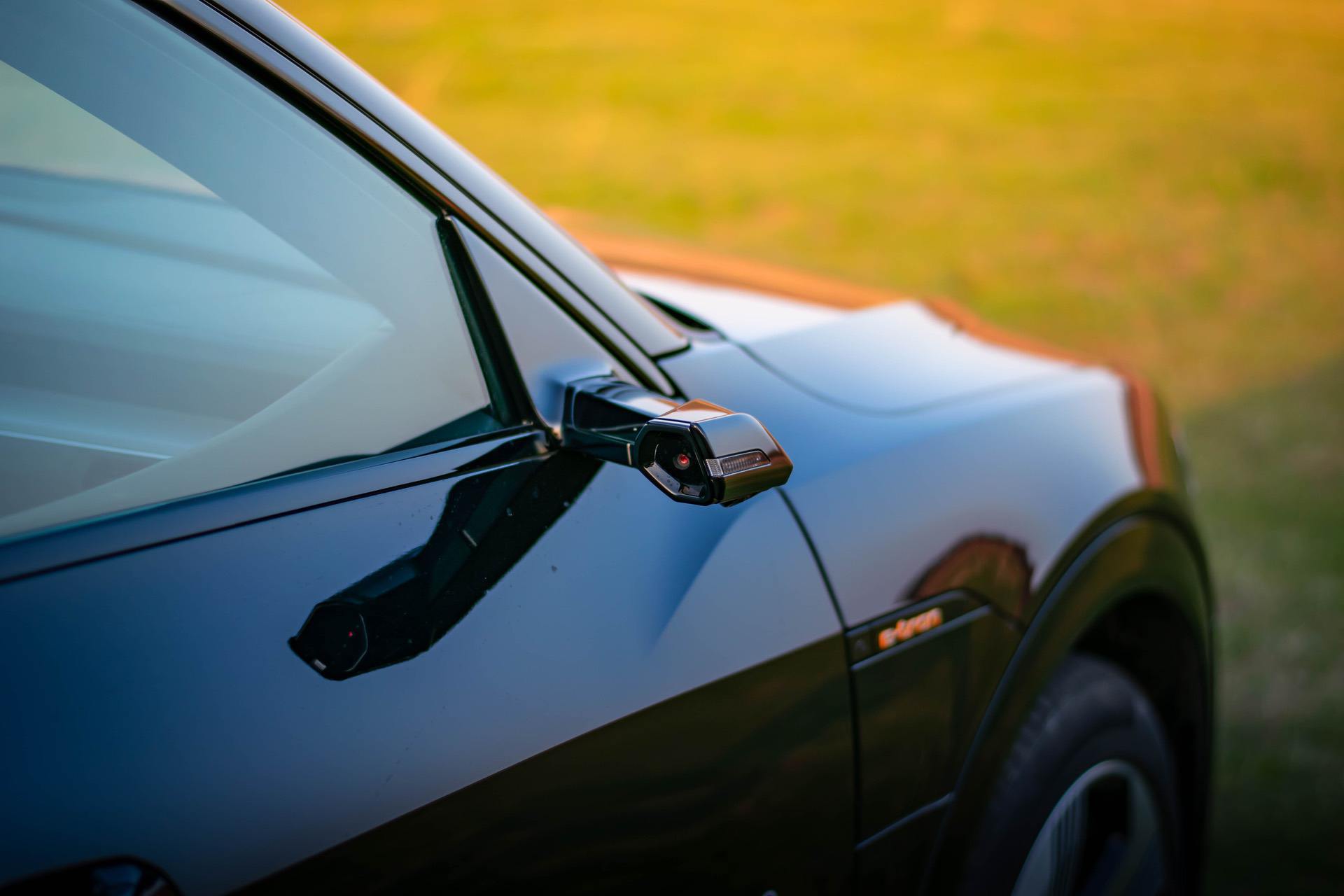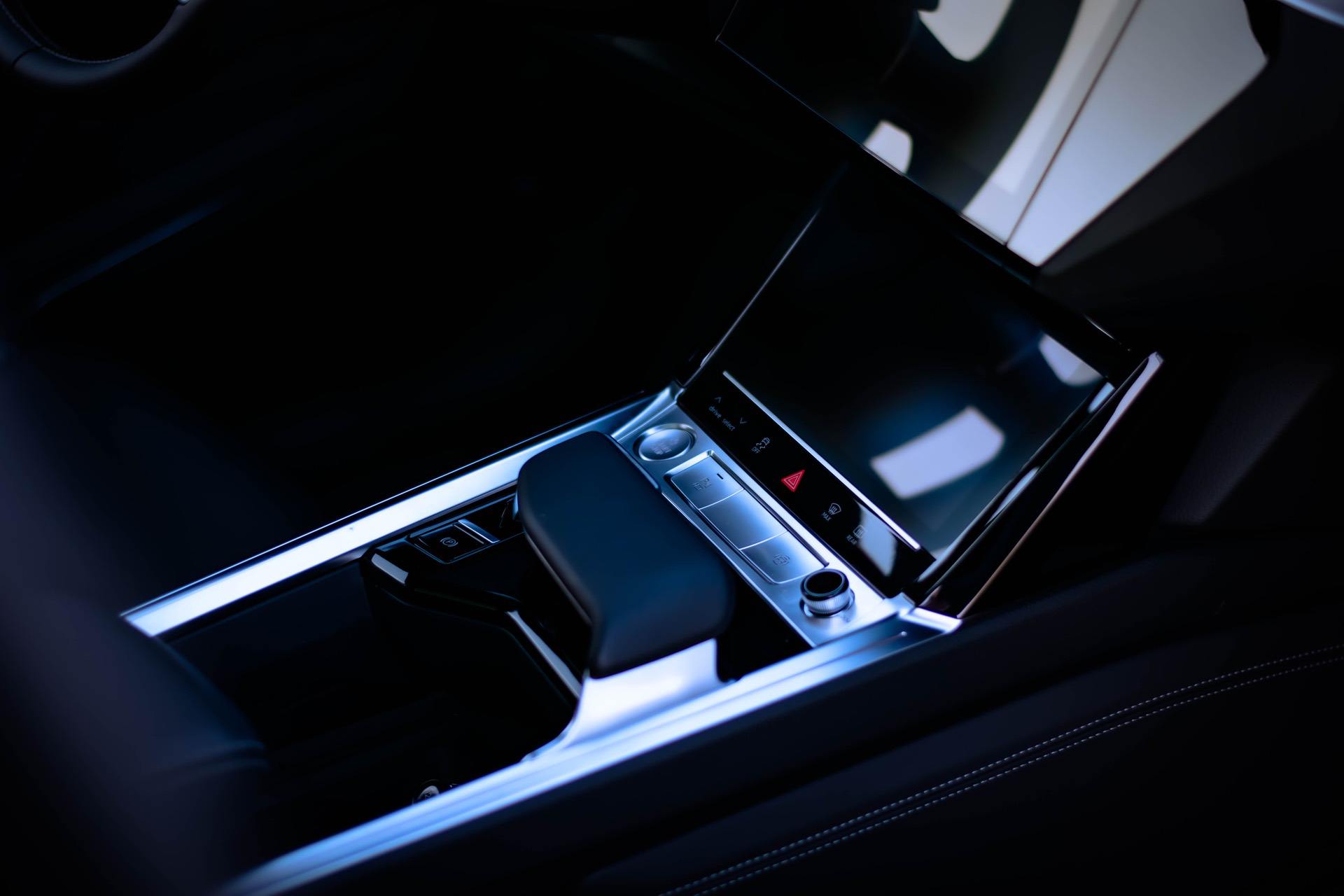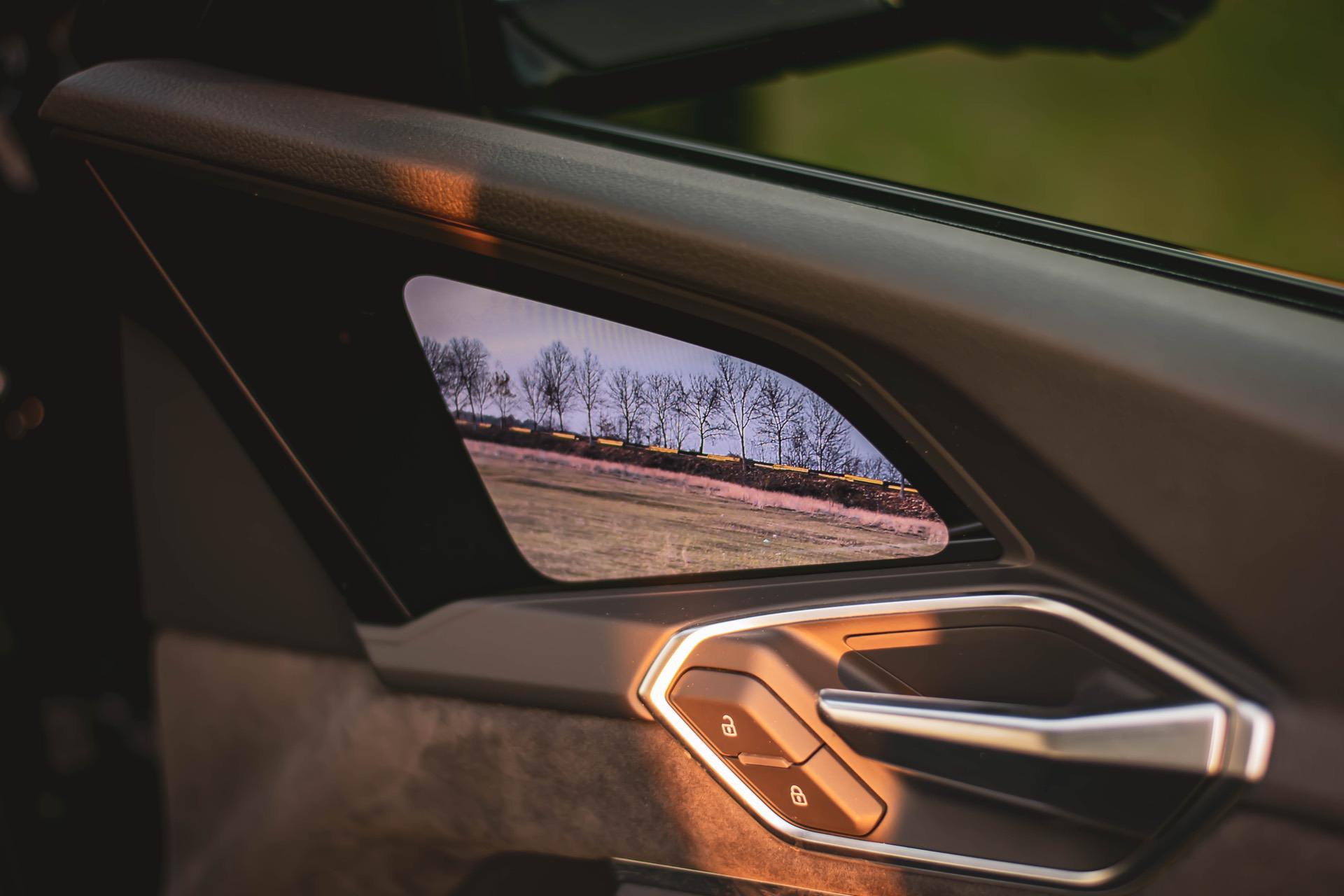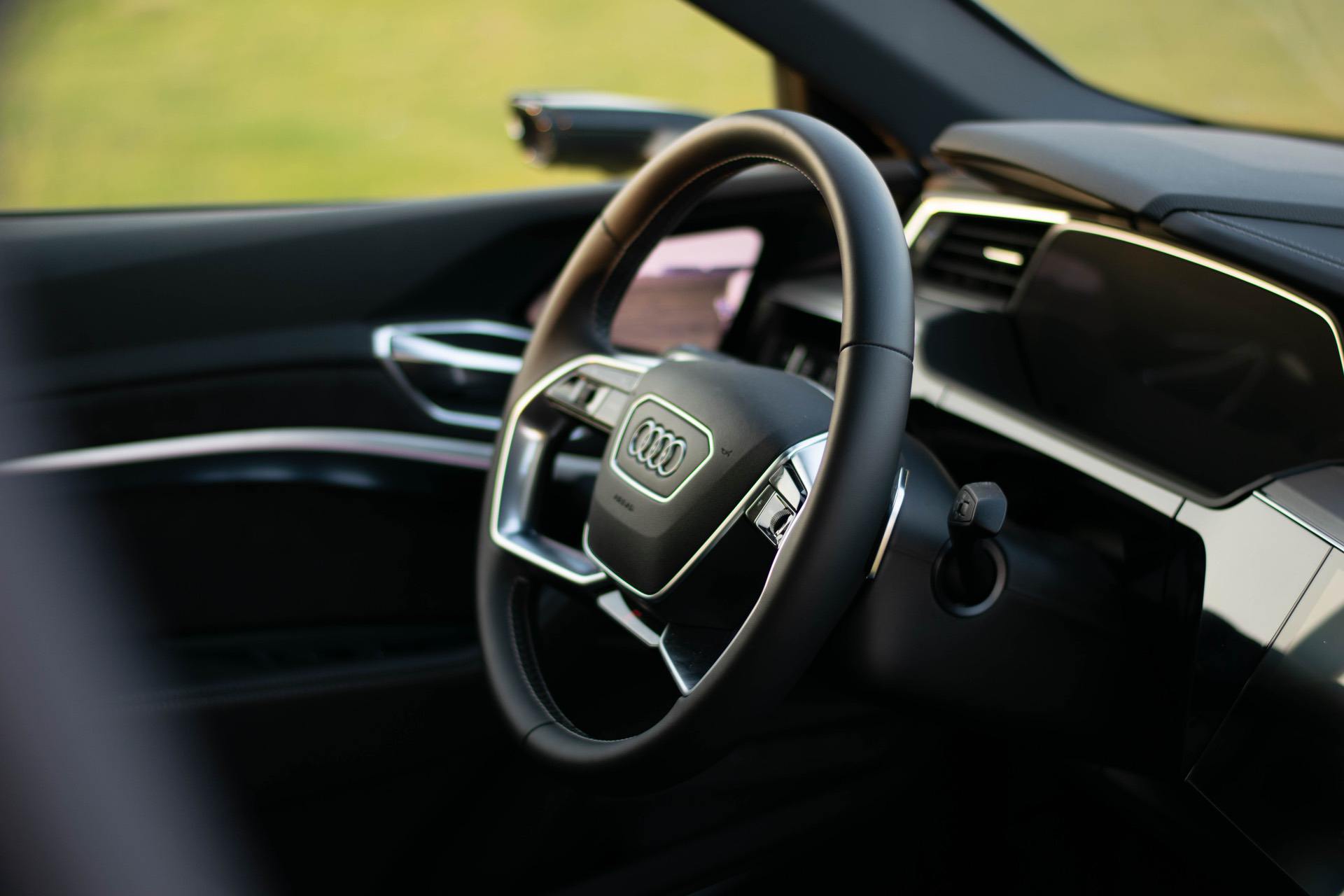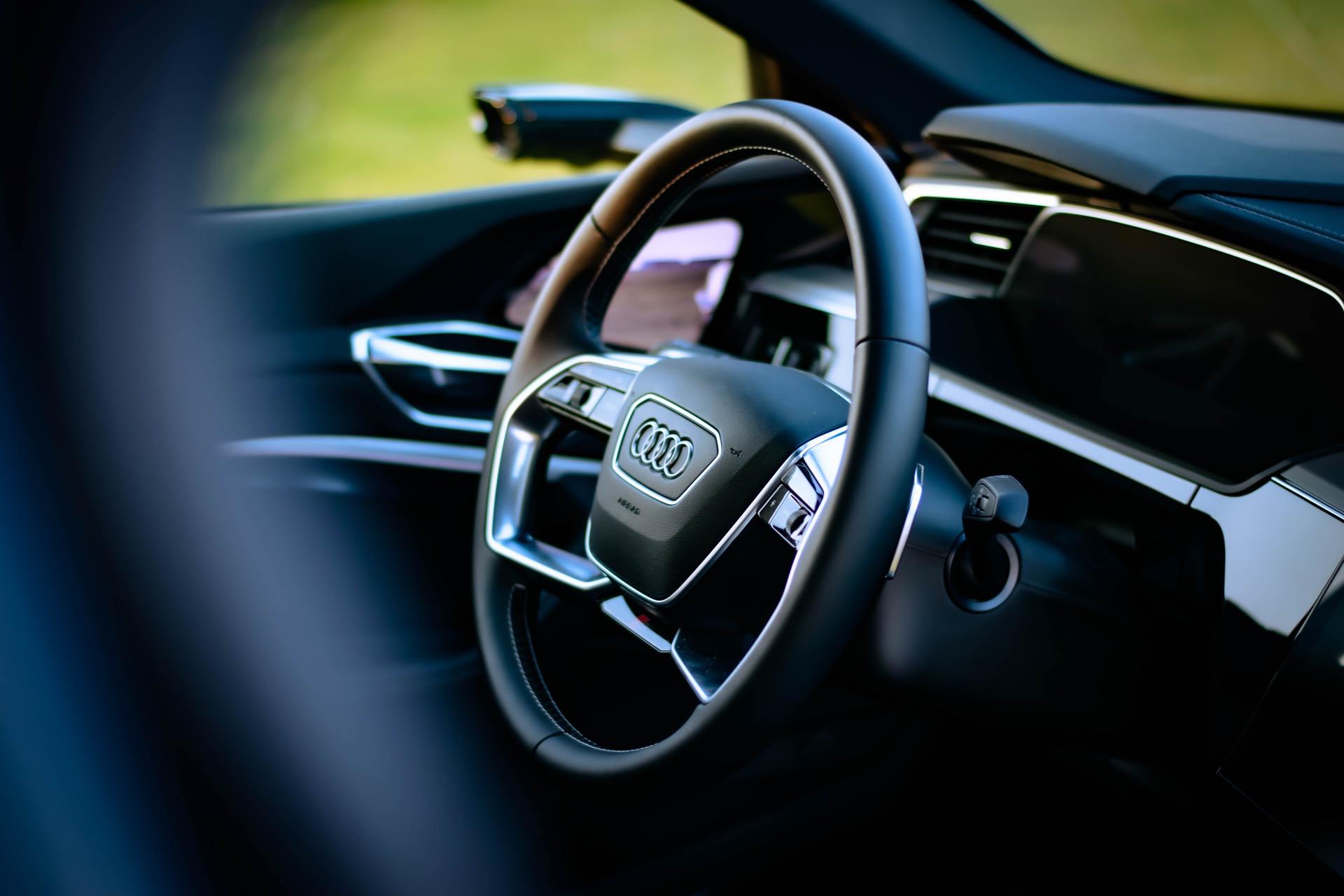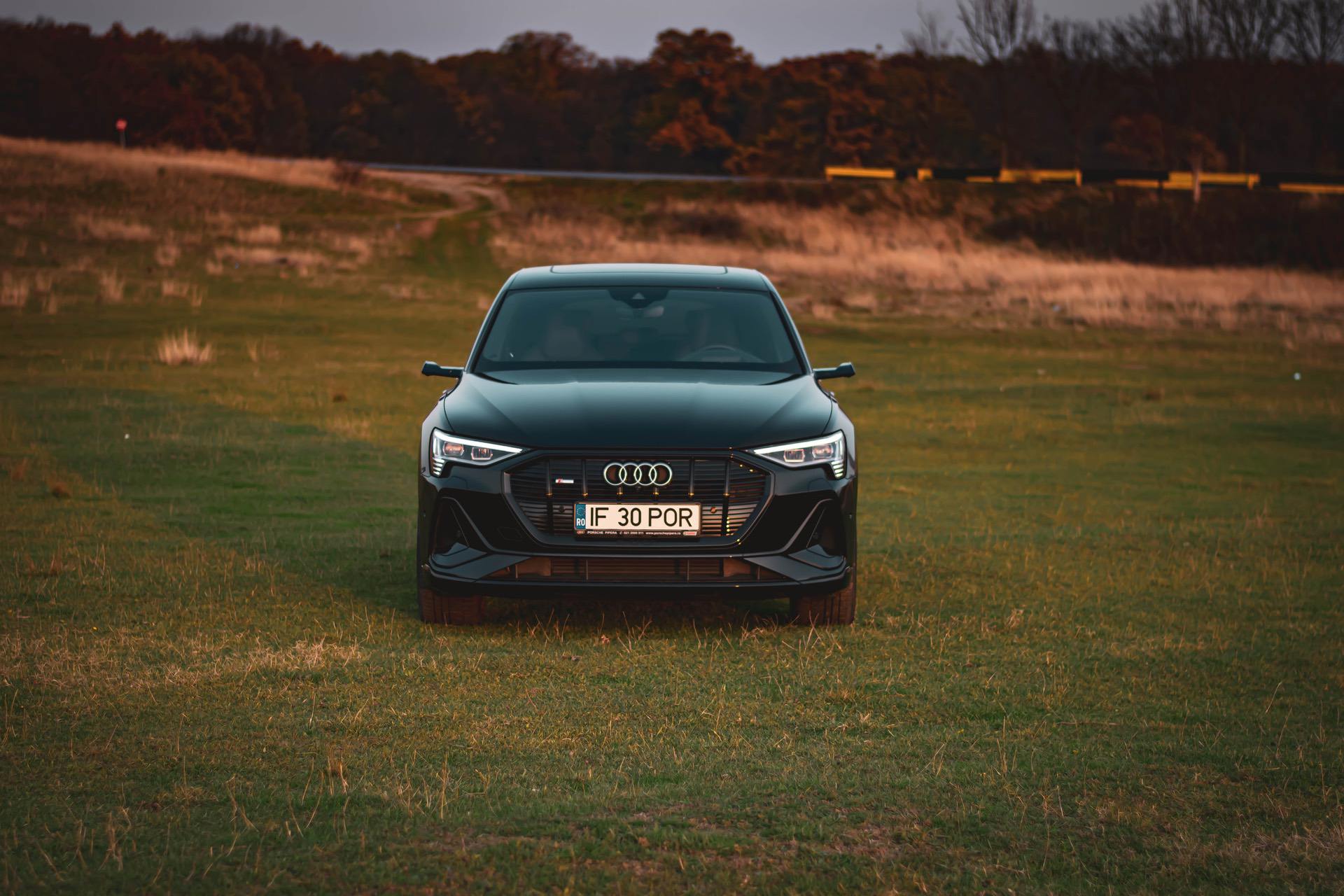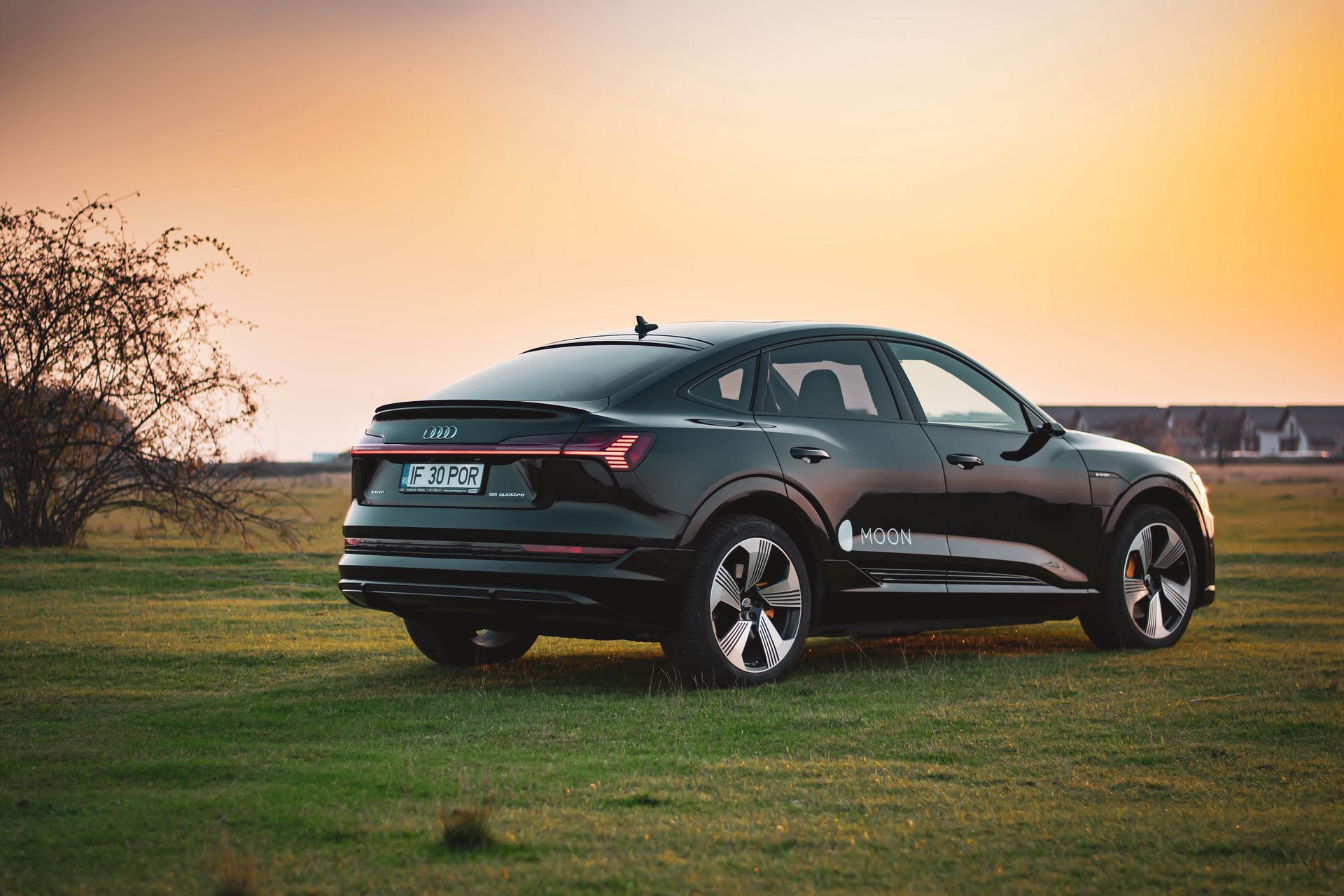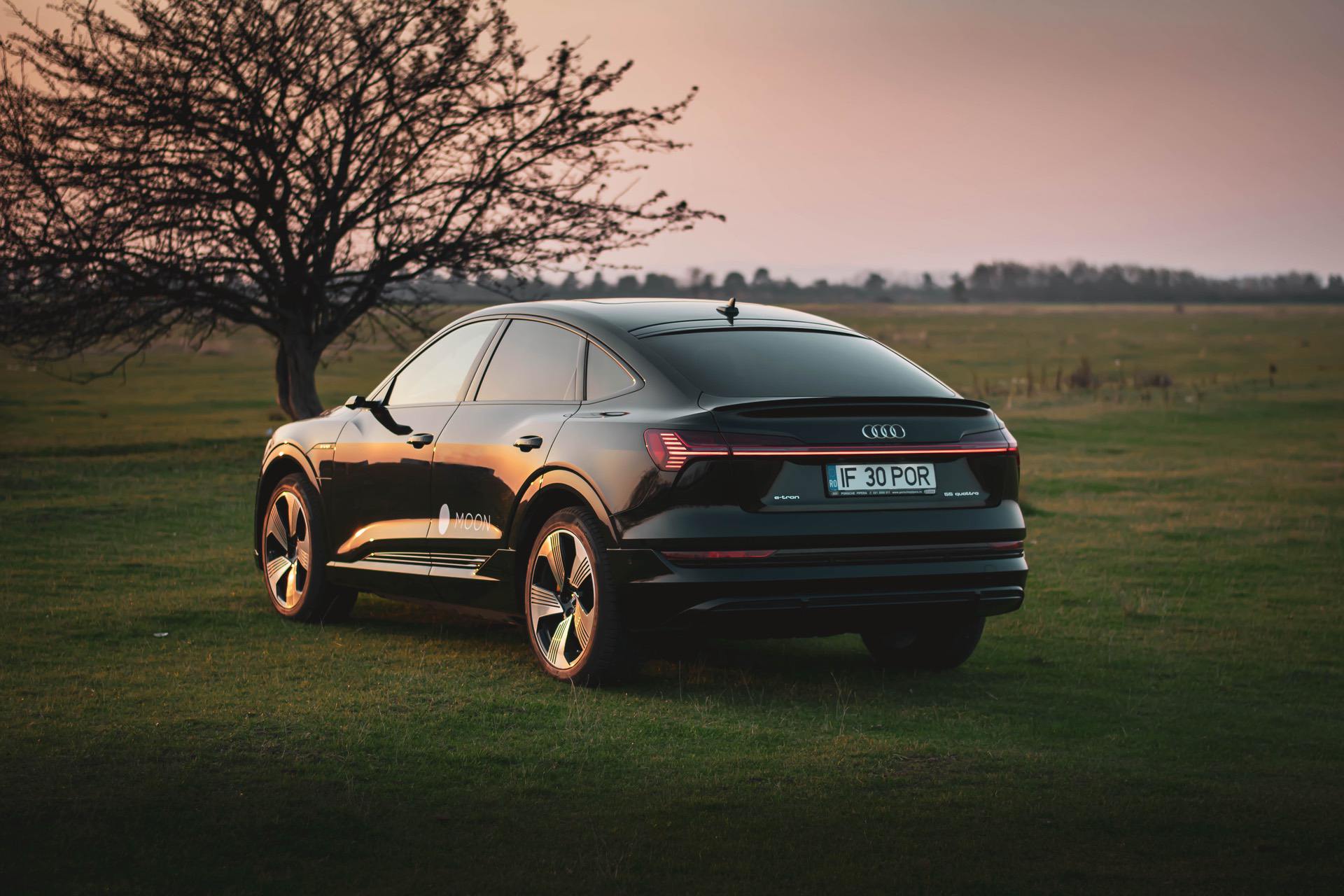The introduction of the Audi e-Tron back in 2018 signaled the moment the Ingolstadt-based manufacturer decided to enter the electric vehicles world. Unlike other car makers, Audi decided to go with the trend and created its first fully-electric car based on a tried and tested SUV platform. Built atop the MLB Evo architecture, from the outside you could mistake the e-Tron for its more traditional brother, the Q7, although some design cues are different. Size-wise though, they are pretty much the same. Seeing as the e-Tron was pleasantly received by customers (the car is now the bestselling electric premium SUV in Europe), the Ingolstadt engineers decided it was time to raise the bar a little more. This is where the e-Tron Sportback comes in.
An Elegant Electric Crossover
This is the more stylish approach to the electric SUV market, a car that has a sloping roofline, simulating a Coupe SUV. In Audi-speak, that’s called a sportback and I much prefer this designation to the Coupe alternative Mercedes-Benz and BMW use, because it describes the car more accurately. Fastback would’ve been even better, but I’ll take what I can get.
The e-Tron Sportback appeals to the same crowd as the X4 or the GLC Coupe if you will, but with a more stylish approach to an already successful model that’s both more practical, larger and roomier. Since the e-Tron eluded me so far, I was understandably curious about testing this platform, even in Sportback guise.
The car presents itself with a clear-cut design, one that’s both aggressive and elegant at the same time. The designers over in Ingolstadt managed to pull off quite a feat, creating an SUV that does have a sloping roofline but doesn’t mess it all up at the back. As a matter of fact, I think this is the best design in the class, a far cry from the overly dull X4 and the too polished GLC.
Up front, there are barely any noticeable differences compared to the regular e-Tron. The bumper is slightly more aggressive as are the headlights, but you’ll need a very keen eye to make those details out. What I will say, though, is that I love the LED daytime running lights on this car and their shape in particular. They make it seem like you might just cut yourself if you dare come too close. The cold light from those details in the headlamps combined with the black-on-black finish of our tester created quite a contrast from afar and up close.
From the sides you’ll instantly notice the sloping roofline, the massive wheels and the yellow brake calipers. On the front fenders you also get the ‘e-tron’ badge right where the charger ports are, highlighted in an orange finish. You might also notice the digital side mirrors, a feature that helped the e-Tron Sportback achieve a drag coefficient of just 0.25 Cd, becoming one of the most aerodynamically efficient series-production SUVs out there today.
Moving towards the back you’ll also notice the new LED taillights that accentuate the wide hips of the car and have a lightbar in between them for good measure, as we’ve seen on modern-day premium models. This finish is already a trend and Audi have been among the first to use it, on their A8. Altogether, the e-Tron Sportback looks mean, aggressive and stylish something that wasn’t done by accident.
High-Tech And Luxurious Cabin
Step inside and the same pattern welcomes you to a high-tech, well finished cabin. It looks a lot like the one you’ll find on the regular e-Tron or the Audi Q7, but there are some differences as well. You can get up to five screens, and, as I found on the A3, they have great graphics and good animations, a high resolution and respond to your inputs well. It takes a bit of time to get used to the haptic feedback on most of the tactile buttons, as you have to actually press on the screen to get them to work. Since we’re all used to our smartphones reacting to a simple touch, operating the MMI system does come with a slight learning curve.
The center console is multi-functional and looks as awesome as it can get. It has two cup holders hidden deep inside it, a cover that can close the entire space in the console and a design that’s bound to leave you wanting for more. The gear selector is also something else, reminding me of the throttle lever you see in an airplane cockpit. The whole center stack area is made up of good materials, mixing leather with steel and glass. Top notch all the way.
The instrument cluster is also very familiar if you’ve ever driven an Audi, with an easy-to-read layout and copious amounts of info displayed, including details about your powertrain and battery state of charge. As for the two extra screens that would get the tally up to five… well, they are located on the doors and replace the traditional rearview mirrors.
This was the first time I got to try out digital rearview mirrors and they weren’t exactly my cup of tea. The first thing you have to adjust to is the location. You’ve been trained to look over the door panel and through the window for your whole driving life and having to look on the door instead does require a bit of getting used to. That’s not even the main issue here though, as you do get a flashing green light on the screen to remind you where to look, whenever you activate the turn signal.
The video quality isn’t an issue either, as the cameras did a great job even at night. The biggest issue is that you’re very limited in how much you can adjust them and when it comes to perceiving depth. Parallel parking or backing up into a spot are truly tricky experiments and without a 360-degree camera system, they can be overwhelming. And to think that you actually have to pay for this system boggles the mind. I recommend sticking with the standard, classic mirrors and saving some money. You could, for the same price, get the Bang & Olufsen sound system (like the one we had) and get better use out of it.
The seats are pretty comfy though and could be considered a tad on the stiff side but our tester was wearing the S-Line ‘armchairs’ up front. The rear bench offers a surprising amount of room considering the roofline. Adults can fit back there, even if they are 6-ft tall such as myself. Audi says the e-Tron Sportback can accommodate three adults in the back with plenty of headroom and legroom. But in my experience, the the HVAC controls will leave a serious dent on the shins of anyone daring to occupy the middle seat.
Battery Capacity And Power
Setting off in the e-Tron Sportback you notice it’s just as refined as you’d expect a premium German SUV to be. The car is well sound-insulated and the suspension is set up perfectly to cope with the extra weight on all sorts of road surfaces.
That extra weight comes, to nobody’s surprise, from the huge battery pack located in between the axles. The LG Chem-supplied batteries can hold up to 95 kWh with a usable capacity of 86.5 kWh, one of the biggest I’ve ever tested. On the aforementioned axles, since this was a 55 quattro model, you get two asynchronous electric motors that can deliver up to 408 PS and 664 Nm of torque. It’s important to note that those figures are available only in Sport mode, the car using just 360 PS whenever you’re just cruising around and even less when only the rear motor is used. That’s all done in order to make the car a bit more efficient.
All that power is sent to both axles, meaning this car is an all-wheel drive model but without a transmission tunnel in the middle, which helps with the level floor in the back. Unlike the Taycan, which is made by brother company, Porsche, the e-Tron Sportback uses a single-speed gearbox that allows it to use a single axle at a time, to be even more efficient. In everyday driving, around town, for example, you’ll end up using the rear axle alone, which is a pretty neat trick.
But how does it drive?
In D mode, the acceleration off the line is strong, but hushed and you can actually feel how the car was tuned to deliver all of its available resources without breaking your neck. The delivery is smooth and you’re reaching eye watering speeds in a rapid manner. If you want your e-Tron to be more aggressive and brutal, switch into S mode and you’ll instantly feel a different throttle response along with a tightening of the suspension and steering.
The car becomes a lot stiffer and more composed through the bends, even though it does tip the scale at over 2.4 tons. Sure, it’s not exactly a Porsche Cayman in corners, but this car is still pretty fun to drive nonetheless. One gripe I did have with it was the steering that while precise and fast, could use a bit more feel. I know I’m asking a lot here, as it’s an EPS, but it’s a shame not to have a bit more feel available considering how fun the whole package is.
The 55 quattro model has a claimed 0-100 km/h (62 mph) sprint time of 5.7 seconds but the seam of my pants was telling me those were conservative figures. It’s also pretty impressive how hard the car will accelerate to its limited 124-mph top speed, without hesitation.
If you’re not looking for this car’s limits all the time, you might also get to enjoy the serene atmosphere inside. We’ve all heard of how quiet EVs are but the e-Tron takes things to a whole new level, even at higher, highway speeds.
Inside city centers, the car is easy enough to drive if you skip on the digital side mirrors. Using them is a bit tricky, as I already mentioned, since you don’t have an exact idea of depth and guessing how far the cars behind you are is an exhausting exercise.
The car is also set up to coast a lot, while regenerative braking has three different modes, one more aggressive than the other. Overall, around town, I saw an average energy consumption of 26.8 kWh per 100 km covered which would translate into a range of 322 kilometers (200 miles). What I need to mention here is that the outside temperature was pretty low (around 0 degrees Celsius) and I never used Eco mode or anything like that. I wanted to see just how this car would do in normal conditions, driving it like a model fitted with an internal combustion engine.
Outside the city limits the average was 28.4 kWh/100 km covered at an average speed of 130 km/h (81 mph) which is the speed limit in Europe, adding up to an estimated range of around 260 km (161 miles). If you drop that speed average to 50 mph (80 km/h) the numbers get drastically better at 20 kWh/100 km covered. That’s a range of 430 kilometers (267 miles).
As far as charging goes, the time it takes to replenish your car’s resources varies on the type of charger you’re using. If you’re using a Type 2 port, you can get up to 11 kW from an AC charger and that means it will take you about 9 hours to fill up. Luckily, the car supports charging up to 155 kW on a DC fast charger which means you can get up to 80 percent SOC in under half an hour. Provided you have access to such a charger, of course.
Conclusion
Overall, the Audi e-Tron Sportback definitely feels like a promise fulfilled by the Germans. When they introduced the original e-Tron, they said the goal was to offer a car that was as close as possible to the one we already knew (the Q7) but just with a different type of powertrain. That’s exactly what the e-Tron Sportback delivers. Living with it is as easy as it is with any other Audi, if not better.
It has a premium fit and finish, distinguished ride, can be fun when pushed around and looks like a million bucks. It could use a bit more range and a bit of a diet but for now, considering how the EV market is evolving, this is as close as you can get to having your ‘electric cake’ and eating it too, with the Audi badge on the boot.


